Topics
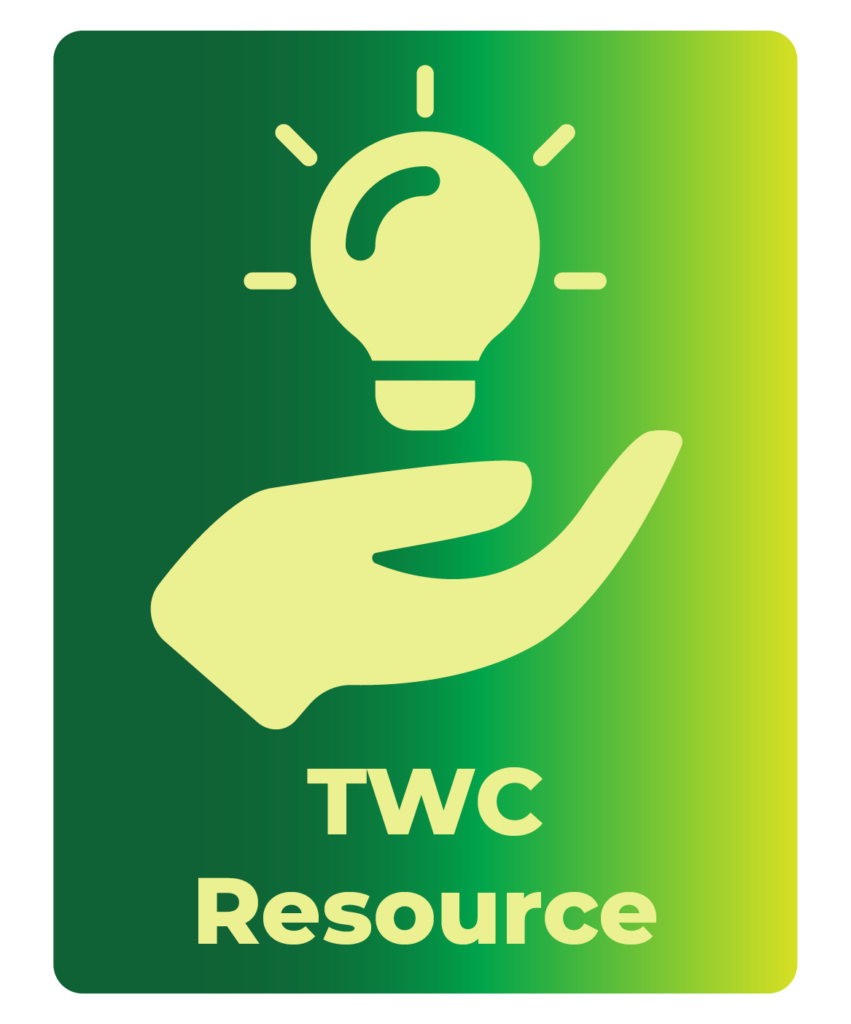
Understanding the Prevalence of Mental Health and Behavioral Distress in Transit Assaults
Mineta Transportation Institute
February 2025
TOPICS: Policy and Planning , Retention , Safety and Health
Understanding the Prevalence of Mental Health and Behavioral Distress in Transit Assaults and Presenting Targeted Response and Mitigation Methods to Reduce Victimization Trends
This research aims to better understand the prevalence of mental health and behavioral distress in transit assaults and present corresponding targeted response and mitigation methods to reduce victimization trends. It includes a literature review, a data presentation and overview of reported public transit assault-related events, an examination of the contributing factors to those events, and documentation of 10 transit agency case studies. It discusses various approaches and strategies that transit agencies have used to prepare transit vehicle operators and other frontline workers to better recognize mental health presentations and engage appropriately. It also highlights evidence-based practices that transit agencies can use to better prepare their systems and provide tools employees can use to better communicate with individuals who may be having mental health-related episodes. The research team gathered additional data from case study sites, including the methods used to address assault-related challenges and the successful community engagement and partnerships. The report provides findings and policy and practice recommendations.

Technical Assistance Coordination Library (TACL)
National Rural Transit Assistance Program
TOPICS: Apprenticeship , Career Pathways , Community Engagement , Hiring and Recruitment , Labor-Management Partnerships , Low-No , Mentorship , Policy and Planning , Procurement , Program Evaluation and ROI , Retention , Safety and Health , Trainer and Mentor Development , Training , Workforce Shortage
Transportation Technical Assistance Coordination Library (TACL)
The Transportation Technical Assistance Coordination Library (TACL) provides a viable methodology and platform for access and findability of rural and tribal transit coordination resources across a broad range of transportation technical assistance centers and the Federal Transit Administration (FTA).
The FTA-funded Technical Assistance (TA) Centers participating in this ongoing work are:
- National Aging and Disability Transportation Center (NADTC)
- National Center for Applied Transit Technology (N-CATT)
- National Center for Mobility Management (NCMM)
- National Rural Transit Assistance Program (National RTAP)
- Shared Use Mobility Center (SUMC)
- Transit Workforce Center (TWC)
The TACL Task Force uses a systematic review process for resources included in the database. New resources will be added on a quarterly basis. Let us know if you would like to serve as a peer reviewer for our resources.
Why was TACL created?
The United States Government Accountability Office (GAO) published Public Transportation: Enhanced Federal Information Sharing on Coordination Could Improve Rural Transit Services in January 2020. GAO recommended that FTA “develop a communication plan that will effectively share information with state and local stakeholders on coordination opportunities in an accessible and informative way.” This effort was created to improve interagency resource coordination between FTA and its five TA Centers.
How can TACL be used?
TACL resources can be used to identify high quality technical assistance on transportation coordination. The resources can be used for research, training, practice, operations, planning, and other purposes. We encourage authors to cite TACL resources.
Ready to get started?
Visit http://transportation-tacl.org. Click on the Training tab at the top for instructions.
If you have a question about TACL, or if you would like to be considered to become a TACL peer reviewer, please contact info@nationalrtap.org

FTA-Sponsored Technical Assistance Centers
Federal Transit Administration
TOPICS: Apprenticeship , Career Pathways , Community Engagement , Hiring and Recruitment , Labor-Management Partnerships , Low-No , Mentorship , Policy and Planning , Procurement , Program Evaluation and ROI , Retention , Safety and Health , Trainer and Mentor Development , Training , Workforce Shortage
FTA’s Technical Assistance and Workforce Development Program (49 U.S.C. § 5314) and the Public Transportation Innovation Program (49 U.S.C. § 5312) fund technical assistance centers through national nonprofit organizations across a number of areas to improve public transportation. These nonprofit partners and the work they do play a critical role in supporting public transit agencies. Their services help to:
- Improve transportation for older adults and people with disabilities
- Drive the adoption of mobility management and related promising practices
- Accelerate innovative mobility practices and strategies
- Support rural communities
- Leverage new transit technologies
- Train the public transit workforce
- Provide workforce development technical assistance
- Support research projects selected by the transit industry that address day to day issues
- Support the transit industry meet safety regulations
National Center for Applied Transit Technology (N-CATT)
The National Center for Applied Transit Technology (N-CATT) delivers expert, focused technical assistance to transit agencies and organizations in rural areas and small cities to use or develop transit technologies and innovations that make services more cost-effective and efficient. N-CATT’s work supports FTA’s mission and focus on innovation by developing and supporting transit programs and services in rural and small-city America.
National Aging and Disability Transportation Center (NADTC)
The National Aging and Disability Transportation Center (NADTC) is a national technical assistance center funded by FTA with guidance from the U.S. Department of Health and Human Services’ Administration for Community Living to promote the availability of transportation options that serve the needs of people with disabilities, seniors and caregivers with a focus on the Section 5310 program and other transit investments. NADTC supports the delivery of more effective, efficient, high-quality and coordinated specialized transportation services that maximize federal investments. NADTC provides technical assistance, information and referral; develops field training; implements interactive communication and outreach strategies; and supports communities in assessing their needs and developing innovative transportation solutions.
National Rural Transit Assistance Program (National RTAP)
The National Rural Transportation Assistance Program (RTAP) was established by FTA in 1987 to provide a wide range of professional services and products. National RTAP addresses the training and technical assistance needs of rural and tribal transit programs across the nation and supports state RTAP programs. National RTAP provides comprehensive free technical assistance programs and resources including training materials, webinars, newsletters and technical briefs, peer resources, research, and innovative technology initiatives. The National RTAP also manages the Transportation Technical Assistance Coordination Library (TACL), which provides a sustainable methodology and platform to access resources across a diverse range of transportation technical assistance centers and FTA.
Shared-Use Mobility Center (SUMC)
The Shared-Use Mobility Center is a public-interest organization dedicated to achieving equitable, affordable, and environmentally sound mobility across the US through the efficient sharing of transportation assets. By connecting the public and private sectors, piloting programs, conducting new research, and providing policy and technical expertise to cities and regions, SUMC seeks to extend the benefits of shared mobility for all. The Shared Mobility 2030 Action agenda includes improving access to public transit, on-demand shuttles or buses, ride-on-demand services, carpooling and vanpooling, and carsharing, bikesharing and scooter-sharing.
National Center for Mobility Management (NCMM)
The National Center for Mobility Management (NCMM) supports FTA’s Coordinating Council on Access and Mobility activities and is funded through a cooperative agreement with FTA. The Center works to help communities adopt transportation strategies and mobility options that empower people to live independently, and advance health, economic vitality and self-sufficiency. NCMM provides capacity-building technical assistance and training; catalogs and disseminates best practice information on innovative mobility management programs around the country; and works to improve and enhance the coordination of federal resources for human service transportation, especially for people with disabilities, older adults and people with lower incomes.

Responses to General Directive 24-1: Required Actions Regarding Assaults on Transit Workers
FTA published Responses to General Directive 24-1: Required Actions Regarding Assaults on Transit Workers. FTA’s initial analysis of agency responses shows more than two-thirds of transit agencies determined that safety risk mitigations are necessary to reduce the risk of assaults on transit workers, and these agencies are working to roll out a variety of mitigation measures.
Federal Transit Administration
January 2025
TOPICS: Policy and Planning , Safety and Health

Rail Transit Roadway Worker Protection
The Rail Transit Roadway Worker Protection (RWP) regulation establishes minimum standards to ensure the safe operation of public transportation systems and prevent injuries and fatalities for transit workers. Rail transit agencies nationwide are required to create programs and processes that focus on safety for workers who work on or near the rails in an area known as the track roadway. This page explains the regulation, answers frequently answered questions, and provides additional resources.
Federal Transit Administration
January 2025
TOPICS: Policy and Planning , Safety and Health , Training
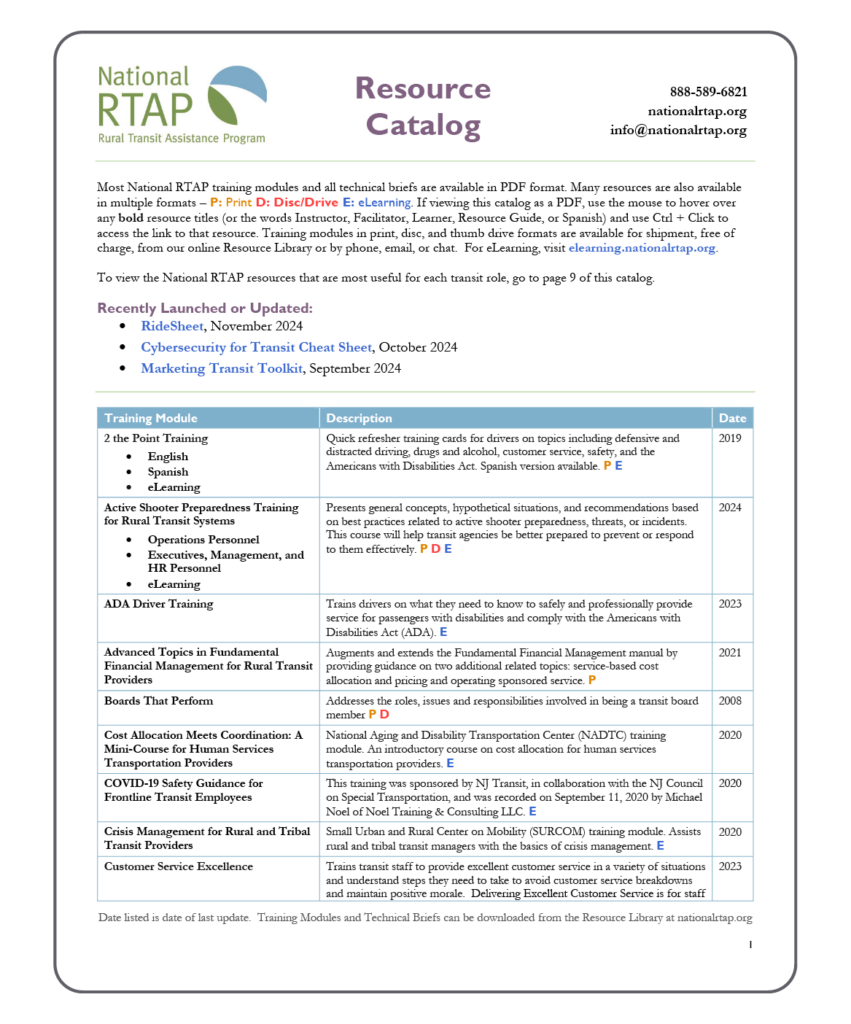
National RTAP Resource Catalogue
The National Rural Transit Assistance Program (National RTAP) aims to address the training and technical assistance needs of rural and tribal transit operators across the nation. They provide free technical assistance programs and resources including training materials, webinars, newsletters and technical briefs, peer resources, research, and innovative technology initiatives. This Resource Catalogue details all products available for ordering or online use.
National RTAP
TOPICS: Policy and Planning , Safety and Health , Training
Check out some trainings that may be most useful for transit frontline workers:
- Safety
- Active Shooter Preparedness Training for Rural Transit Systems
- COVID-19 Safety Guidelines for Frontline Transit Employees
- Emergency Procedures for Rural Transit Drivers
- Problem Passengers: Managing Difficult Passengers & Situations
- START (Safety Training & Rural Transit) Training
- Substance Abuse Awareness Training for Employees
- Transit and Human Trafficking
- Drivers/Dispatchers
- 2 the Point Training (available in Spanish)
- ADA Driver Training
- Customer Service Excellence
- Customer Service for Rural and Tribal Transit Providers
- Dispatching and Scheduling Training for Rural Transit Systems
- Essential Skills for Trainers
- Essential Spanish for Rural Transit
- HR
- HR Training Shorts on Employee Recognition, Interview Questions, Onboarding, and Performance Appraisals
Check out some technical briefs and toolkits relevant to the frontline transit workforce:
- Safety
- Coronavirus Disease 2019 (COVID-19): Information and Resources for Transit
- Healthy Habits: Reducing Stress and Fatigue and Increasing your Energy
- Incident and Injury Report Form
- Responding to Transit Incidents
- Seasonal Flu: Information and Resources
- Substance Abuse Awareness Training, Testing, and Compliance
- Threat and Vulnerability Toolkit
- Trainers
- Bus Roadeo Toolkit
- Training Adult Learners: How to Reach and Engage Your Audience
- Drivers/Dispatchers
- Customer Service in Rural Transit: How to Identify and Meet Customer Needs
- Emergency Response Checklist: After Normal Operating Hours & Emergency Response Checklist: During Normal Operating Hours
- Entry-Level Driver Training Requirements
- Essential Spanish for Rural Transit
- Mobile Driver Training Simulators
- HR
- Applying Good Business Practices: Hiring, Training and Evaluating Employees
Offerings as of January 2025
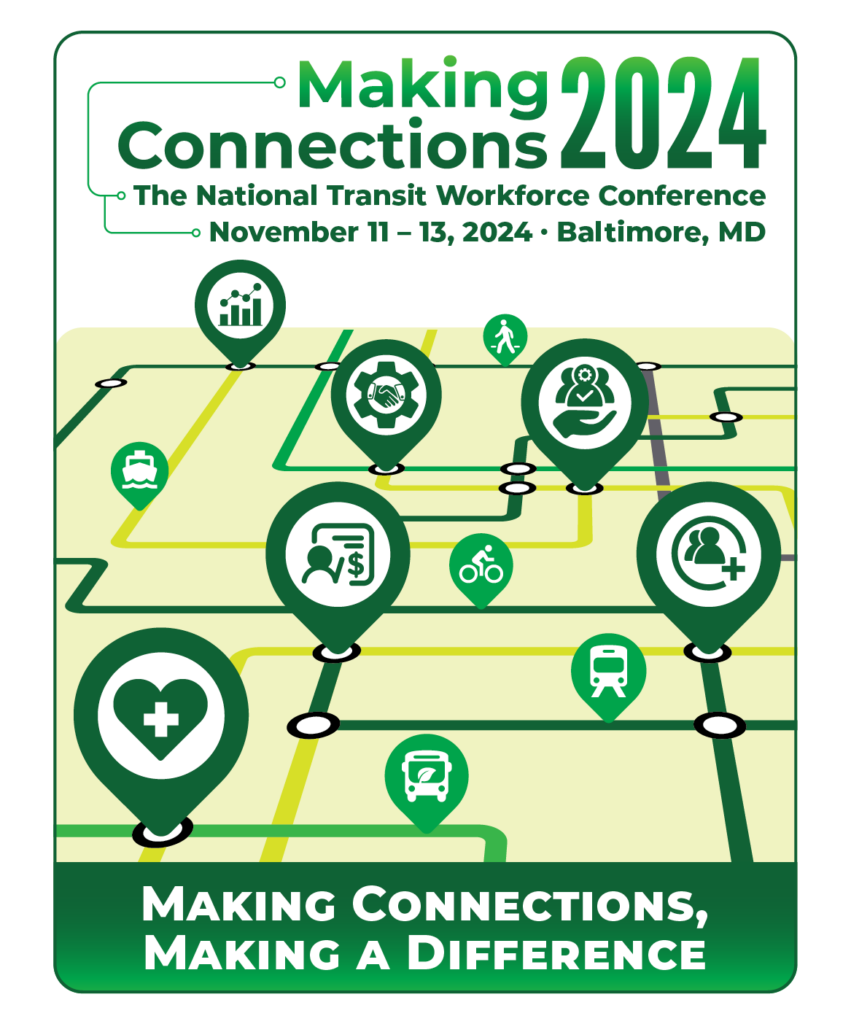
Making Connections 2024 – Conflict Resolution and De-escalation – Models for Operator Training
This session about conflict resolution and de-escalation was presented as part of TWC’s Making Connections 2024 transit workforce conference in November, 2024.
Transit Workforce Center
November 2024
TOPICS: Making Connections Conference , Safety and Health , Training
Session Description: De-escalation, conflict avoidance, and conflict resolution are integral to an operator’s job. Operators primarily work alone, and the driver’s seat is an extremely vulnerable position. In this session, we honestly and productively explored the ways in which operators can deal with all manner of attacks, physical and verbal, and analyzed approaches to address the range of challenges that come with this profession. Presenters discussed different training models used to support operators with their challenges and engaged with the audience in considering options that can make a positive impact.
Moderator:
- Maurice Beard: Senior Workforce Development Advisor – International Transportation Learning Center / Transit Workforce Center
Speakers:
- Jamaine “G” Gibson: Director of Apprenticeships and Workforce Development – Amalgamated Transit Union
- Tricia Prince: Safety and Training Manager – Chattanooga Area Regional Transportation Authority
- Lakecha Strickland: President – Amalgamated Transit Union Local 1212 (TN)
- Melissa Thomas: Transportation Training Manager – Central Ohio Transit Authority (COTA)
- Lisa Rae Vickery: Deputy Director of Operations Development – Santa Clara Valley Transportation Authority

Making Connections 2024 – Moving Toward Solutions for Transit Worker Safety
This session about transit worker safety was presented as part of TWC’s Making Connections 2024 transit workforce conference in November, 2024.
Transit Workforce Center
November 2024
Session Description: Transit workers operate in a challenging environment in close contact with the public. Recent years have seen an increase in assaults on transit vehicles and in transit facilities, making the protection of transit workers and riders a crucial goal for the industry. This presentation will feature perspectives from research, transit agency labor and management, and the federal government. Panelists shared updates on transit assault trends, examples of mitigation strategies identified through engagement with agency leaders and frontline workers, innovations in operator workspace design, and models of successful joint labor-management safety planning through FTA’s updated PTASP rule.
Moderator:
- Lisa Staes: Associate Director – Center for Urban Transportation Research
Speakers:
- Lisa Staes: Associate Director – Center for Urban Transportation Research
- Russell Bateman: Training and Education Administrator – Amalgamated Transit Union
- Andrew Falotico: Health and Safety Director – Amalgamated Transit Union
- Alexander Houck: Deputy Chief Safety Officer – Maryland Transit Administration
- Stewart Mader: Senior Program Analyst for Safety Policy – Federal Transit Administration
- Michael McMillan: President and Business Agent – Amalgamated Transit Union Local 1300 (MD)

Making Connections 2024 – Mental Health, Well-Being, and Resilience for Transit Workers: Current Research, Practical Applications, and Best Practice Guidelines for Workforce Development
This session about the importance of mental health resources for transit workers was presented as part of TWC’s Making Connections 2024 transit workforce conference in November, 2024.
Transit Workforce Center
November 2024
Session Description: This session explored mental health and wellness among frontline transit workers, offering actionable insights from the latest research, practical applications, and best practices. Presenters also highlighted the role and importance of workforce development strategies in promoting a healthier, more productive workforce, and its potential organizational impacts, such as reduced turnover and absenteeism.
Moderator:
- Karen Philbrick: Executive Director/CEO – Mineta Transportation Institute
Speakers:
- Janie Berry: Deputy Director of Human Resources –Santa Clara Valley Transportation Authority
- Sandy Brennan: Vice President and Project Manager – Foursquare Integrated Transportation Planning
- Michael Coplen: President & Founder – TrueSafety Evaluation, LLC
- John Courtney: Amalgamated Transportation Union Representative – Amalgamated Transit Union Local 265
- Ed Watt: Principal – WattADR

Making Connections 2024 – Zero In and Power Up: Resources for a Smooth Workforce Transition to LVehicles
This full-day intensive session about transitions the transit workforce to low-no vehicles was presented as part of TWC’s Making Connections 2024 transit workforce conference in November, 2024.
Transit Workforce Center
November 2024
TOPICS: Low-No , Making Connections Conference , Safety and Health , Training
Session Description: Currently managing or expecting to begin the process of transitioning part of your fleet towards electrification? Transitioning from work with the 12- and 24-volts electrical systems in traditional diesel and CNG buses to Low-No buses, with upwards of 800 volts, requires a significant commitment to additional skills training and development for new and incumbent transit technicians. As a central component of a nationally-coordinated effort to help prepare frontline technicians with the training needed to meet the challenges and demands of this new technology, TWC has developed a Low-No familiarization course, currently delivered in partnership with National Transit Institute. This full-day session combined an in-depth introduction to key elements of the course resources, freely available to all, followed by an afternoon technical tour of a nearby low-no maintenance facility.
Moderator:
- Jason Macumber: Senior Advisor of Workforce Development and Technology – International Transportation Learning Center / Transit Workforce Center
Speakers:
- Brandon Liu: Instructional Designer – International Transportation Learning Center / Transit Workforce Center
- Brian Markey: Chief Executive Officer – Custom Training Aids Inc.

FTA Safety Training Resources
This landing page features FTA safety training resources, including the 2024–2025 Virtual Safety Risk Management and Safety Assurance Workshop and De-Escalation Training Resource Directory, as well as FTA sponsored resources, such as the USDOT Transportation Safety Institute (TSI).
Federal Transit Administration
September 2024
TOPICS: Safety and Health , Training
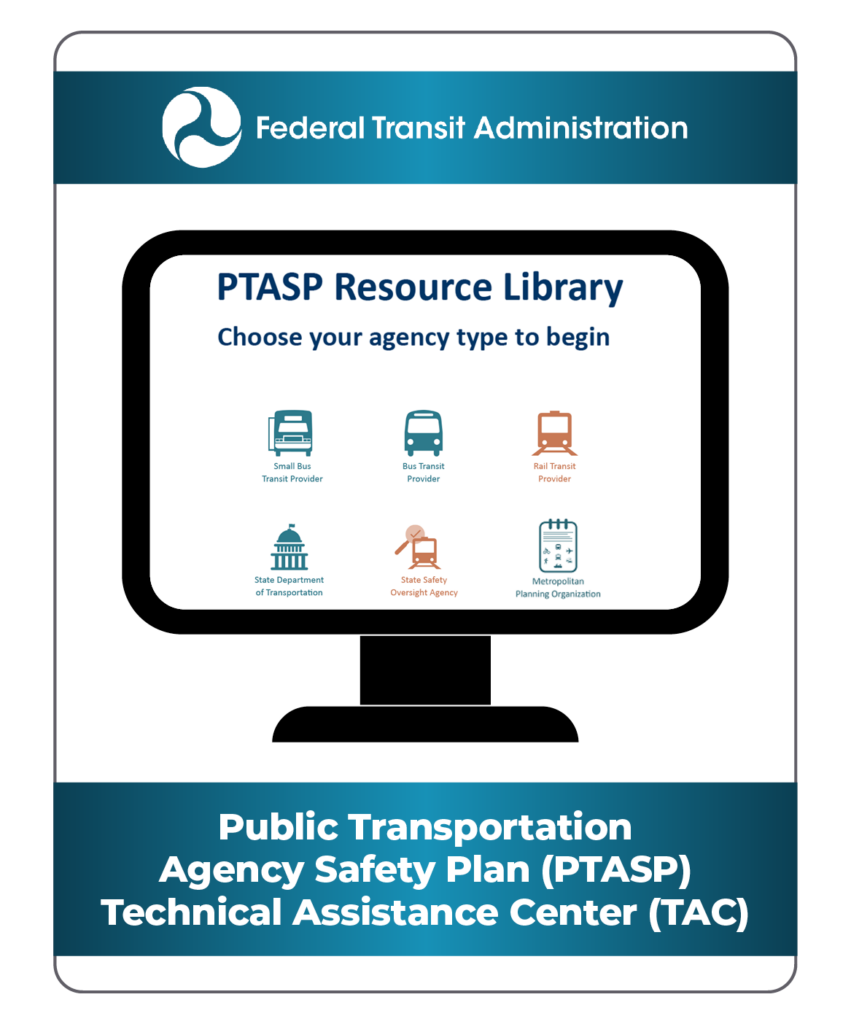
Public Transportation Agency Safety Plan (PTASP) Technical Assistance Center (TAC)
Federal Transit Administration
August 2024
TOPICS: Policy and Planning , Safety and Health
The Public Transportation Agency Safety Plans (PTASP) Technical Assistance Center (TAC) provides comprehensive technical assistance to help the transit industry meet PTASP regulation requirements, as outlined in 49 CFR part 673.
The TAC:
- Provides one-on-one technical assistance
- Facilitates training and peer-sharing via live webinars and roundtables
- Conducts voluntary technical reviews of draft Agency Safety Plans
- Maintains a resource library with technical assistance tools.
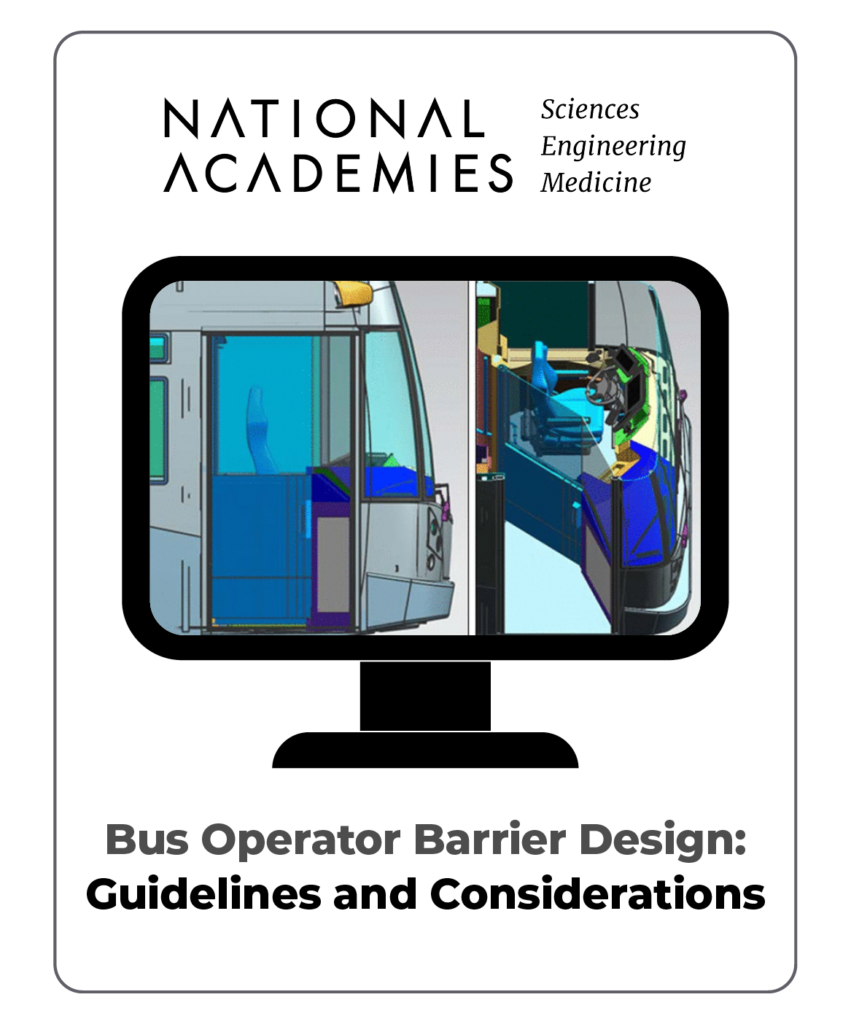
Bus Operator Barrier Design: Guidelines and Considerations
Transit Cooperative Research Program
July 2024
TOPICS: Policy and Planning , Procurement , Safety and Health
The importance of security barriers for transit bus operators became even clearer after the fatal attack on a Tampa, Florida, bus operator in 2019. The need for security barriers was reinforced by a serious attack on another operator for that same system later that year. While these are two extreme examples, they are likely not unique, as many assaults against transit workers have been underreported in the past. Another important but more pernicious risk to bus operator health is viral and bacterial infection.
TCRP Research Report 249: Bus Operator Barrier Design: Guidelines and Considerations, a pre-publication draft from TRB’s Transit Cooperative Research Program, provides information and guidance for North American public transportation agencies, standards committees, and government and non-government policymaking organizations on designing, procuring, and installing bus operator barriers to prioritize the health and safety of essential operators and the public they serve.
Contributor(s): National Academies of Sciences, Engineering, and Medicine; STYL&TECH; International Transportation Learning Center; Transportation Research Board; Transit Cooperative Research Program; Andrew Krum; Scott Tidwell; Joshua Skole; Erin Mabry; Aditi Manke; Tarah Crowder; Christy Campoll
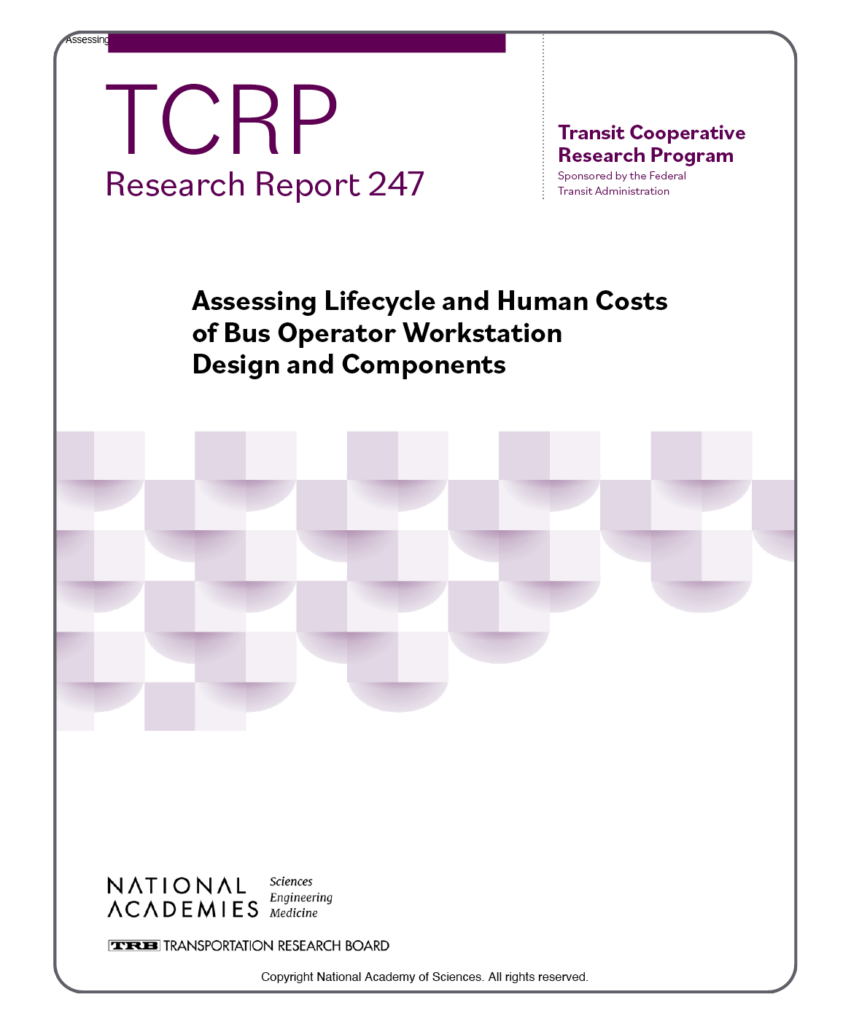
Assessing Lifecycle and Human Costs of Bus Operator Workstation Design and Components
Transit Cooperative Research Board
June 2024
TOPICS: Policy and Planning , Retention , Safety and Health
Driving trucks and buses is a physically demanding occupation that carries one of the highest injury rates of major occupational categories in the United States. Drivers often work in postures that increase risk of low back pain and other musculoskeletal disorders, slow their response time, and put them at increased risk for acute injuries due to crashes.
TCRP Research Report 247: Assessing Lifecycle and Human Costs of Bus Operator Workstation Design and Components, from TRB’s Transit Cooperative Research Program, creates an easy-to-use toolkit for predicting the long-term safety of and promoting a healthy environment in bus operator workstations.
Contributor(s): National Academies of Sciences, Engineering, and Medicine; Transportation Research Board; Transit Cooperative Research Program; Songlin Wu; Eunsik Kim; Andris Freivalds; Yiqi Zhang; Matthew Parkinson
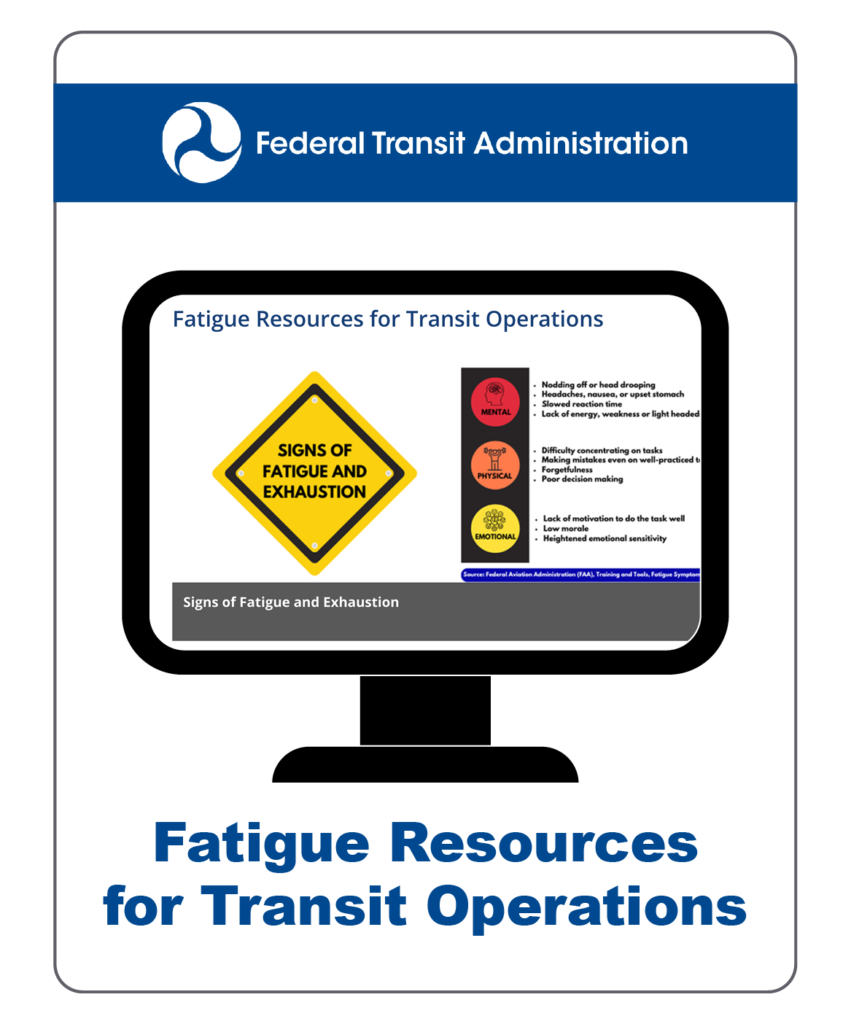
Fatigue Resources for Transit Operations
To support the transit industry, FTA has compiled resources that can be used to better understand fatigue and fatigue-related issues in the workplace. The site includes resources about understanding sleep, causes of fatigue, symptoms and warning signs, effects, relevance to transit workers and agencies, and fatigue risk management systems.
Federal Transit Administration
TOPICS: Policy and Planning , Safety and Health , Training
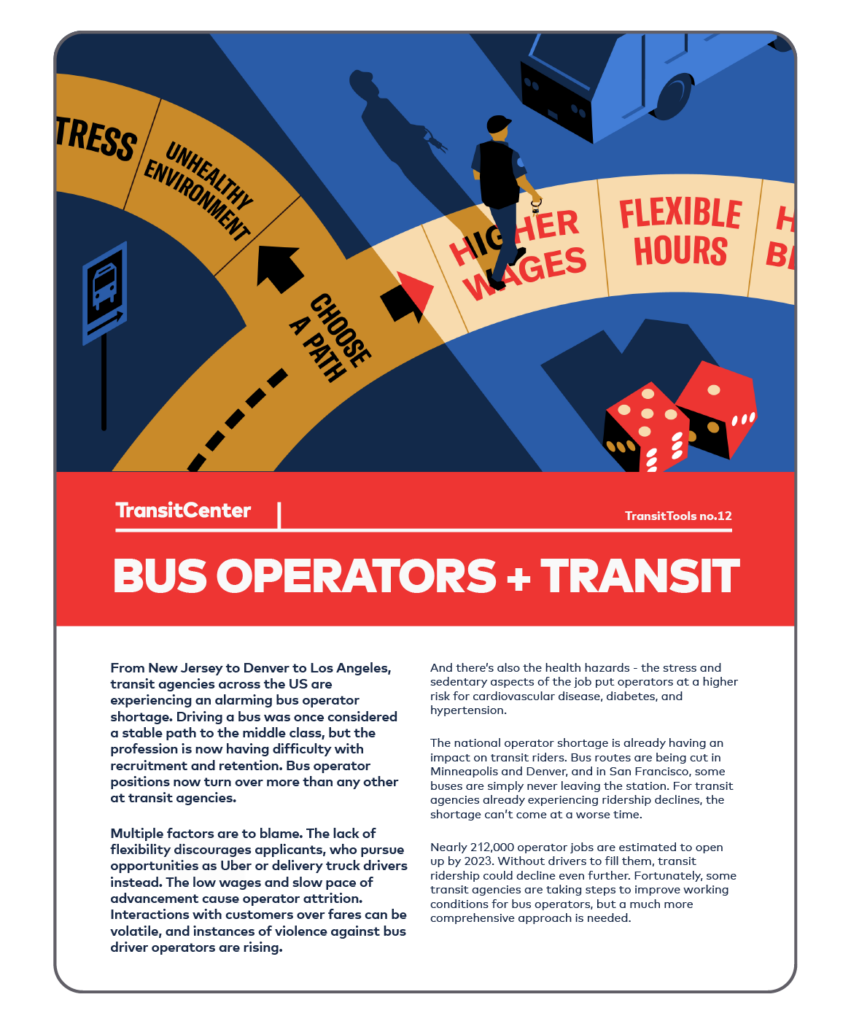
3 Ways to Make Bus Driving a Better Job
This report highlights ways that bus driving can be improved for workers to help increase retention and recruitment. The report explains three specific ways: redesigning the job for health and success, raising pay and creating opportunities for advancement, and making a more flexible schedule.
The National Campaign for Transit Justice
March 2024
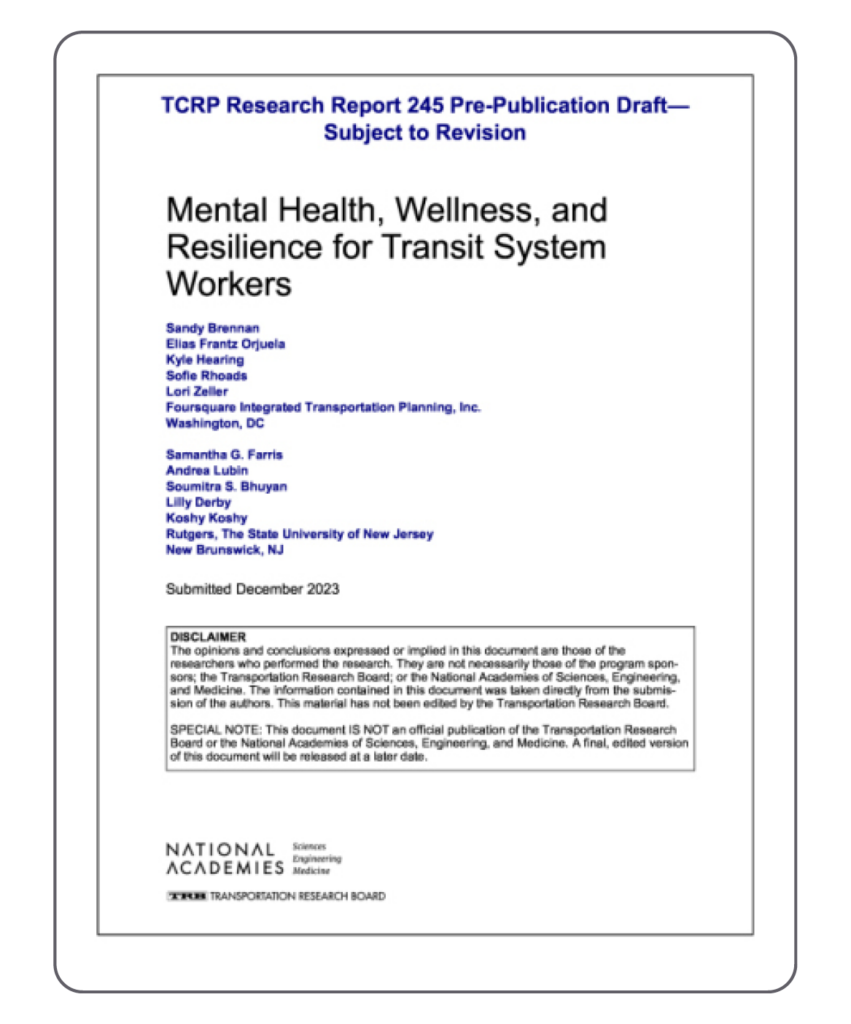
Mental Health, Wellness, and Resilience for Transit System Workers
TCRP Research Report 245: Mental Health, Wellness, and Resilience for Transit System Workers provides a detailed summary of common factors that influence the mental health, well-being, and resiliency of frontline transit workers and includes a range of solutions that transit agencies can implement to address them. Findings were determined using a mix of research methods, including multiple interviews and focus groups with frontline employees, transit agency management, and union leadership at two different points in the project.
Transit Cooperative Research Program
February 2024
TOPICS: Policy and Planning , Safety and Health
Contributor(s): Sandy Brennan, Elias Frantz Orjuela, Kyle Hearing, Sofie Rhoads, Lori Zeller, Samantha G. Farris, Andrea Lubin, Soumitra S. Bhuyan, Lilly Derby, Koshy Koshy; Transit Cooperative Research Program; Transportation Research Board; National Academies of Sciences, Engineering, and Medicine
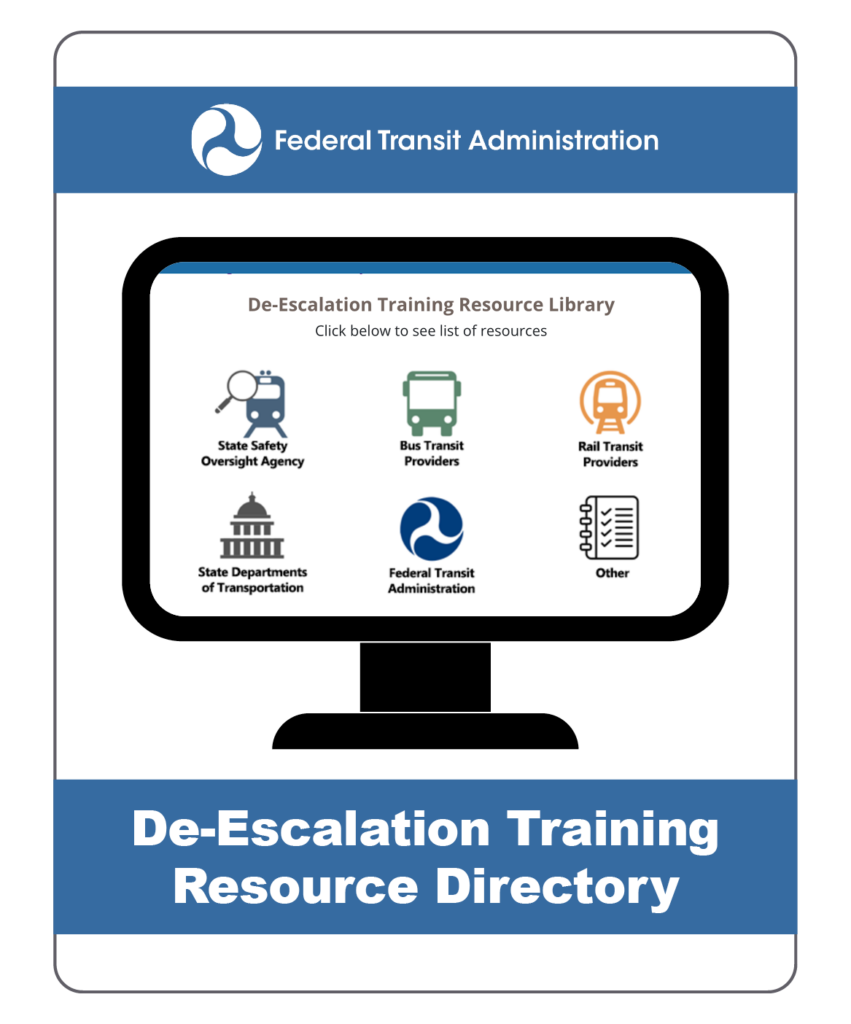
De-Escalation Training Resource Directory
The Federal Transit Administration (FTA) has gathered these resources to support the transit industry in developing, implementing, and updating their training programs. The resources illustrate ways agencies throughout the transit industry are implementing de-escalation training.
Federal Transit Administration
February 2024
TOPICS: Policy and Planning , Safety and Health , Training
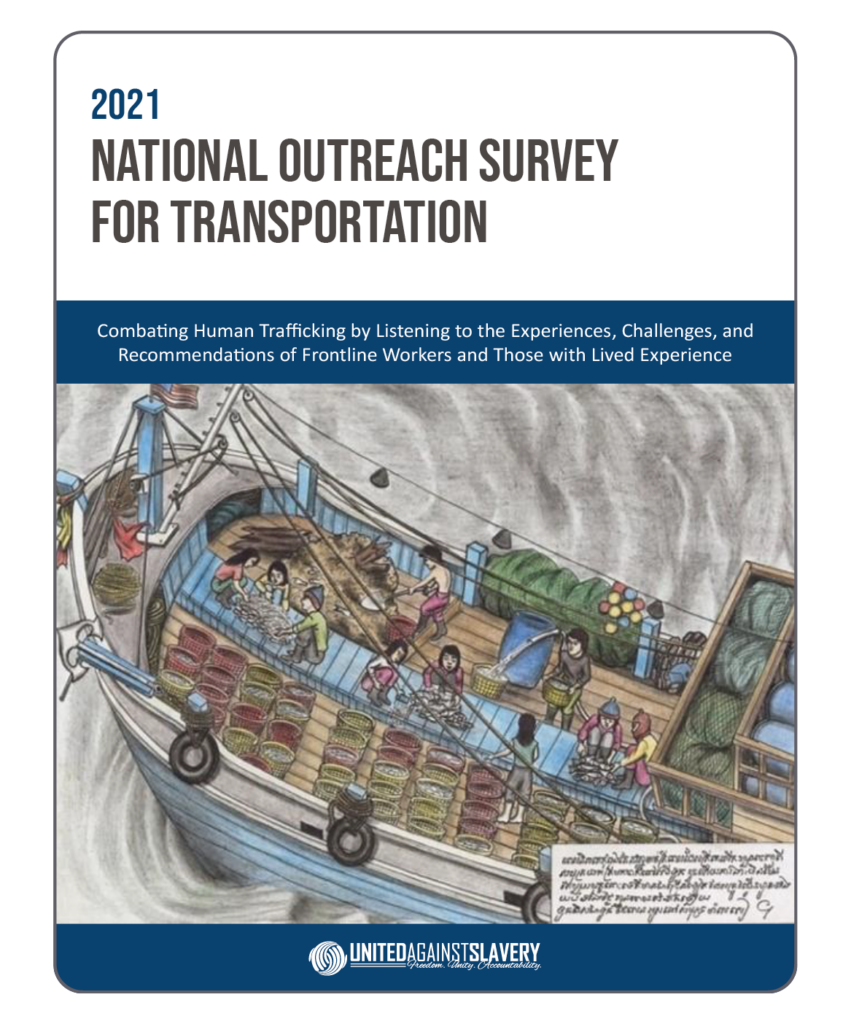
National Outreach Survey for Transportation (NOST)
This report explores the status of sex and labor trafficking in the transportation industry. It explains and highlights a survey of frontline data collected from across the transportation industry, as well as from sex and labor trafficking survivors and direct victim service providers. Data analysis includes information about the current knowledge base on sex trafficking among frontline transportation workers and suggestions for training.
United Against Slavery
January 2024
TOPICS: Policy and Planning , Safety and Health , Training
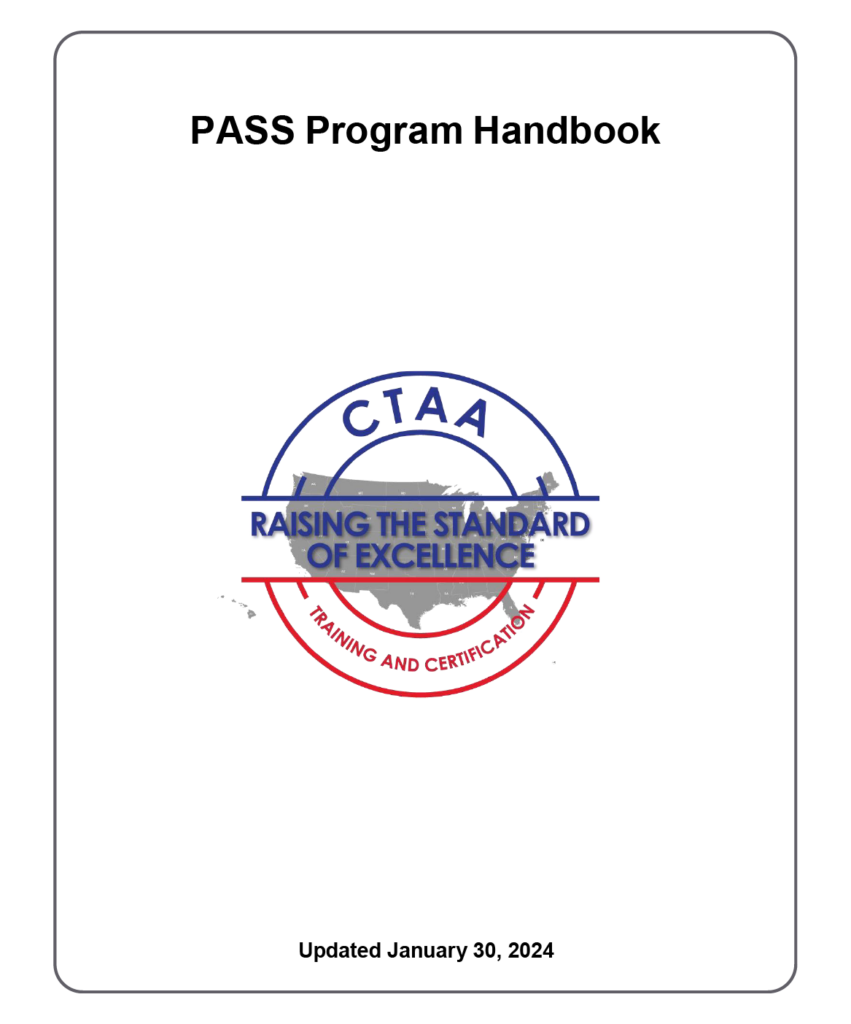
Passenger Assistance, Safety And Sensitivity (PASS) Program Handbook
CTAA’s Passenger Assistance, Safety and Sensitivity (PASS) driver training program provides resources and standards for operators to transport passengers in the most safe, sensitive and careful manner possible. PASS is ideal for non-emergency medical transportation (NEMT) trips, for ADA paratransit services, for specialized transit for older passengers, for human and social service riders — really any transportation operation where the passengers require extra care.
Community Transportation Association of America
January 2024
TOPICS: Community Engagement , Safety and Health , Training
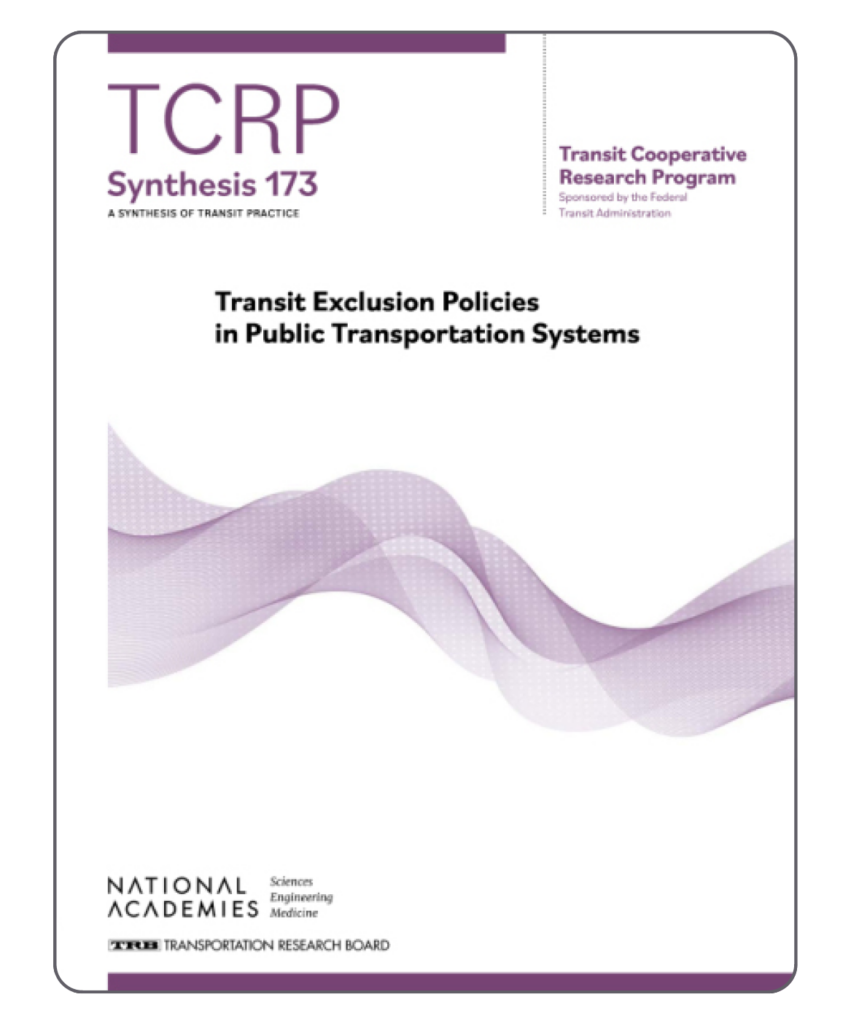
Transit Exclusion Policies in Public Transportation Systems
This report documents the practice of the use of transportation exclusion policies in North American transit systems. It is designed to help transit agencies in understanding the usefulness of such policies, as well as understanding the methods for creating, amending, or supplementing exclusion policies to maximize their effectiveness in reducing crime and disorder within their respective transit systems.
Transit Cooperative Research Program
January 2024
TOPICS: Policy and Planning , Safety and Health , Training
Contributor(s): National Academies of Sciences, Engineering, and Medicine; Transportation Research Board; Transit Cooperative Research Program; Patricia Bye; Deborah Matherly
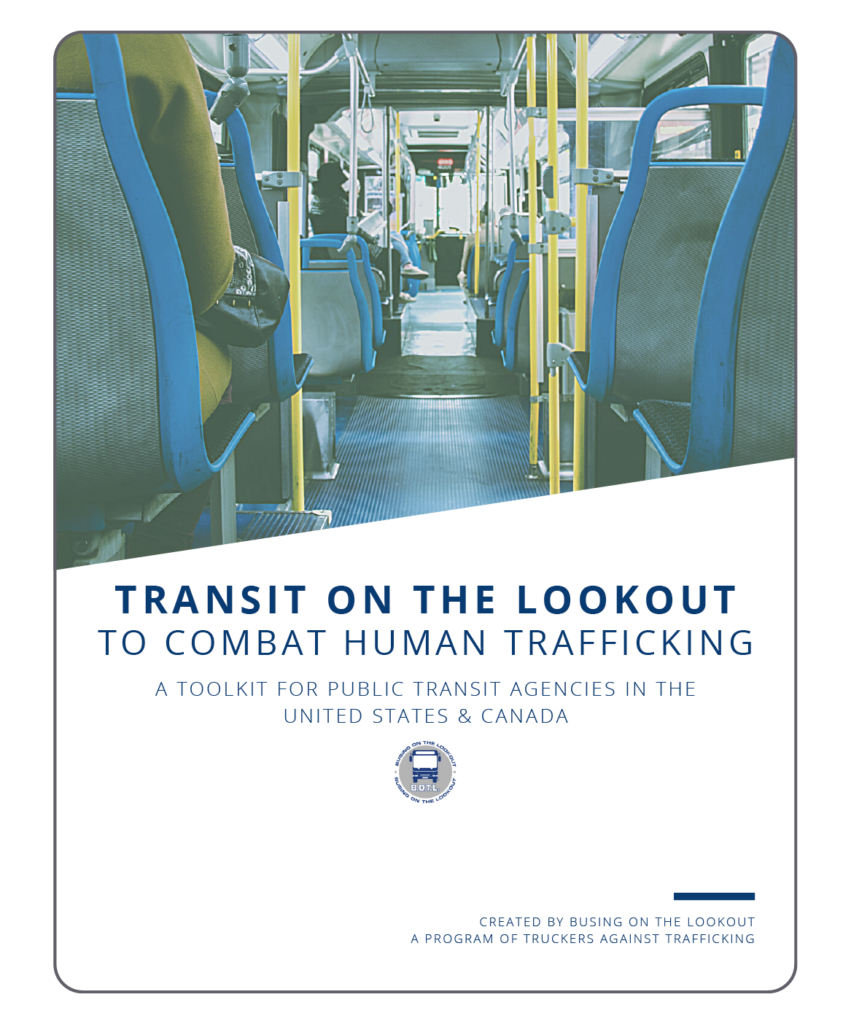
Human Trafficking: Awareness to Action
This webinar reviews the anti-trafficking resources available to transit agencies, shares success stories from the transit industry, and highlights a newly developed template for implementing human trafficking response protocols, which are vital to effective anti-trafficking initiatives. The accompanying toolkit guides transit agencies on steps they can take to help combat human trafficking, including how they can partner with Busing on the Lookout (BOTL) to implement anti-human trafficking training and policies in their operations.
Presenters:
- Jodi Godrey, Center For Urban Transportation Research
- Lexi Higgins, Busing on the Lookout (BOTL) at Truckers Against Trafficking
American Public Transportation Association
January 2024
TOPICS: Safety and Health
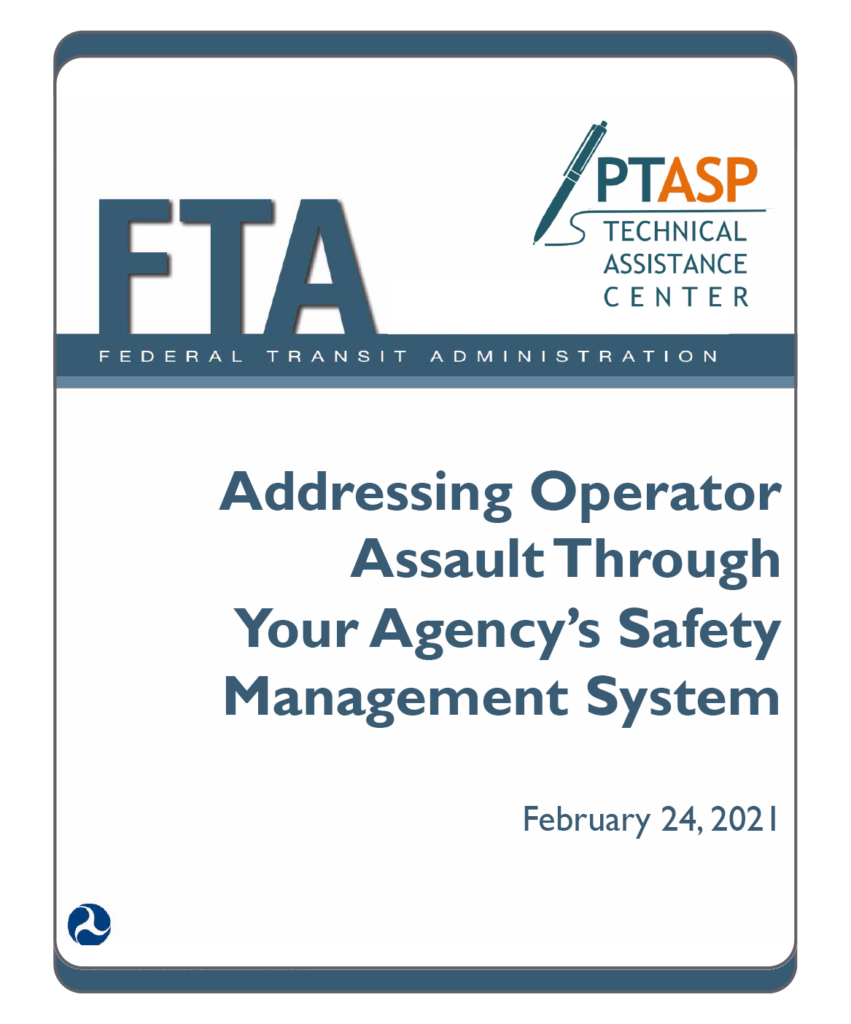
Using Your Safety Management System (SMS) to Protect Transit Workers from Assaults
FTA is working with transit agencies to address the ongoing risk of assaults on transit workers using Safety Management System principles and methods, which FTA adopted as the basis of its Public Transportation Safety Program and Public Transportation Agency Safety Plans (PTASP) regulation.
FTA has developed technical assistance resources to help transit agencies conduct safety risk assessments related to assaults on transit workers and develop safety risk mitigations.
Check out FTA’s full page of crime prevention assistance resources.
Federal Transit Administration
December 2023
TOPICS: Policy and Planning , Safety and Health
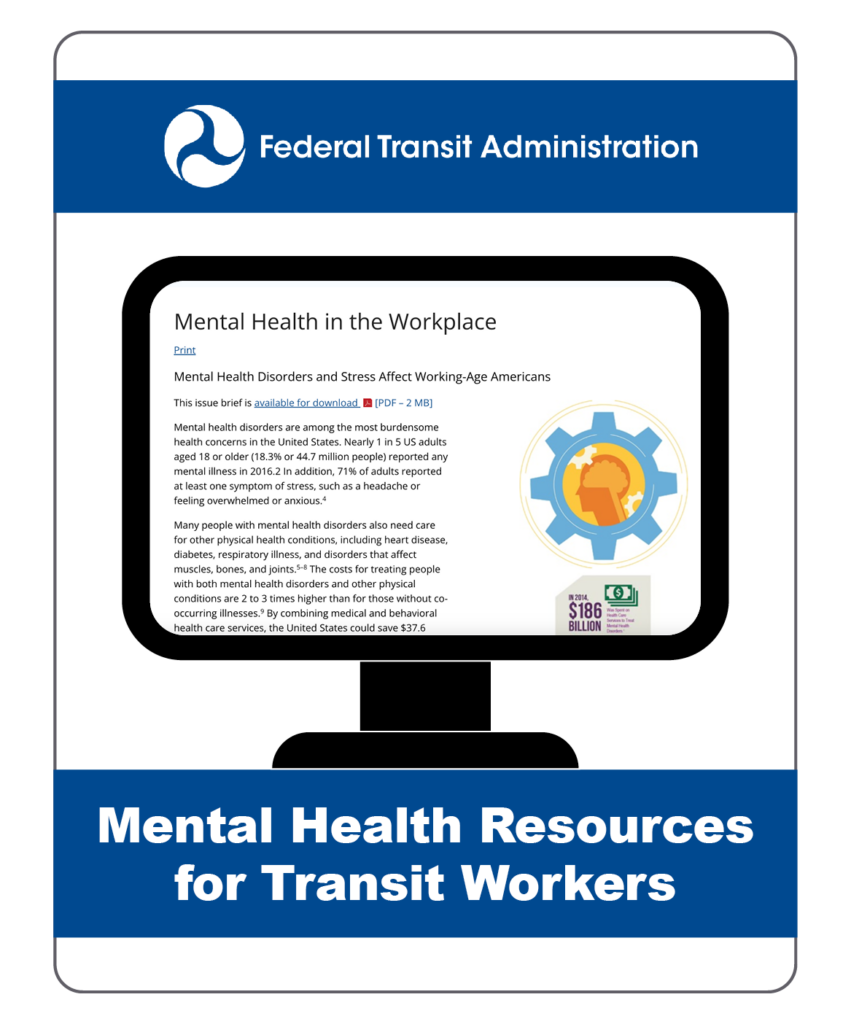
Mental Health Resources for Transit Workers
The Federal Transit Administration has aggregated the mental health resources to support transit industry workers during challenging times. Topics include suicide prevention, active shooter preparedness, mental health first aid, and more.
U.S. Department of Tranportation, Federal Transit Administration
December 2023
TOPICS: Safety and Health
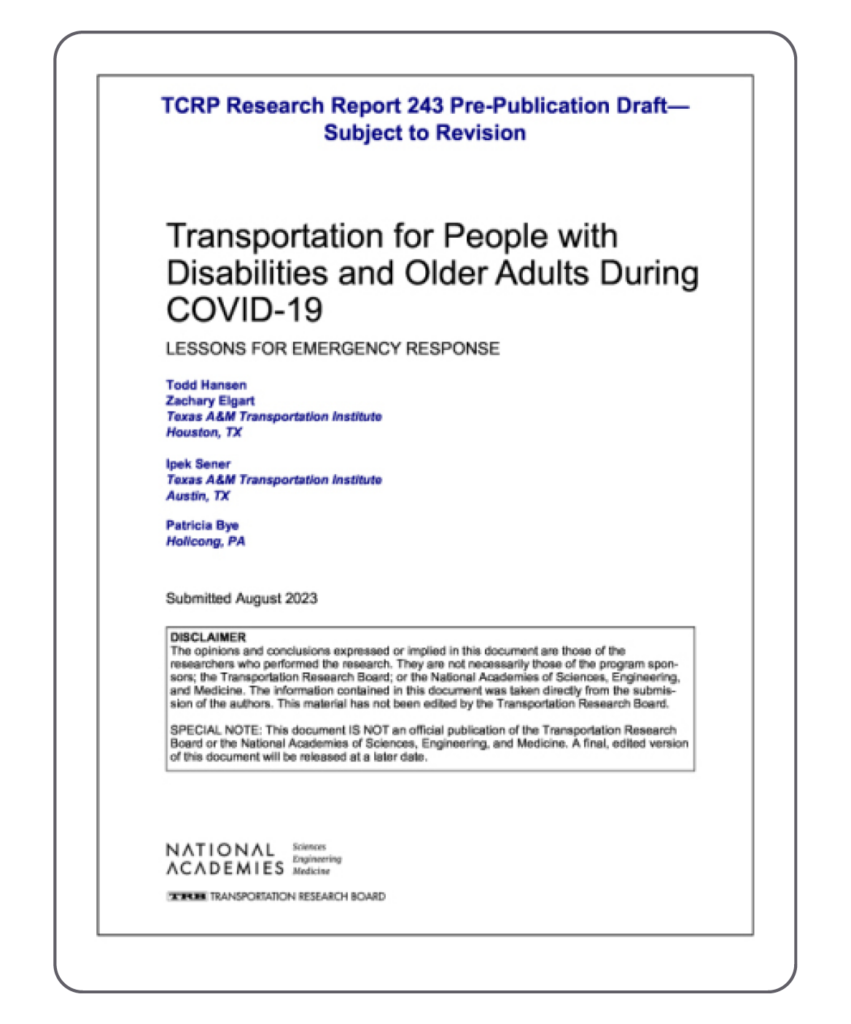
Transportation for People with Disabilities and Older Adults During COVID-19: Lessons for Emergency Response
This pre-publication report aims to provide transportation organizations (including transit agencies, specialized transportation providers, and other local government agencies and stakeholders) with helpful information and strategies on providing service for persons with disabilities and older adults in emergency situations.
Transportation Cooperative Research Program
October 2023
TOPICS: Community Engagement , Policy and Planning , Safety and Health
Contributor(s): National Academies of Sciences, Engineering, and Medicine; Transportation Research Board; Transit Cooperative Research Program; Todd Hansen; Zachary Elgart; Ipek Sener; Patricia Bye
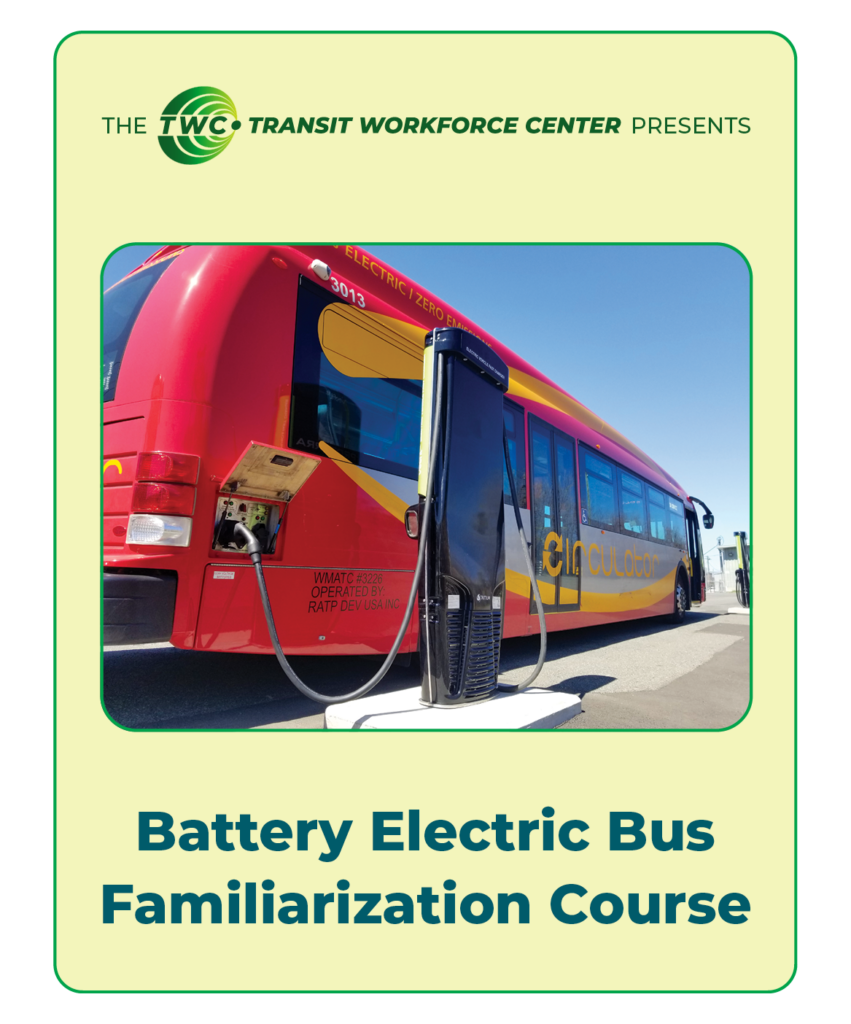
Low-No Bus Familiarization Course
Transit Workforce Center
September 2023
TOPICS: Low-No , Safety and Health , Trainer and Mentor Development , Training
This course provides participants with an overview and familiarization to battery electric bus (BEB) basics. This will include an overview of what a BEB is, and what makes it both similar and different from its standard transit counterparts. The course will include sections on BEB components and systems, details on its internal functions (CAN, High Voltage systems, battery packs, etc.), the management systems, and a quick glance at preventive maintenance tasks. The course will follow up with a module on some electrical fundamentals, safety features, considerations, risk and hazard assessment, PPE, and comes with demonstrations of actual technicians performing de-energization (LOTO) of a Proterra and New Flyer model bus, and concludes with the third module introducing details involved with BEB charging, including the details of current BEB charging technologies, emerging charging technologies and opportunities, electric vehicle charging standards, and common considerations in charging maintenance and charger safety precautions.
Disclaimer : This course is intended only as informal guidance on the matters addressed, and should not be relied upon as the sole method or manner for performing the tasks or work outlined in the materials.
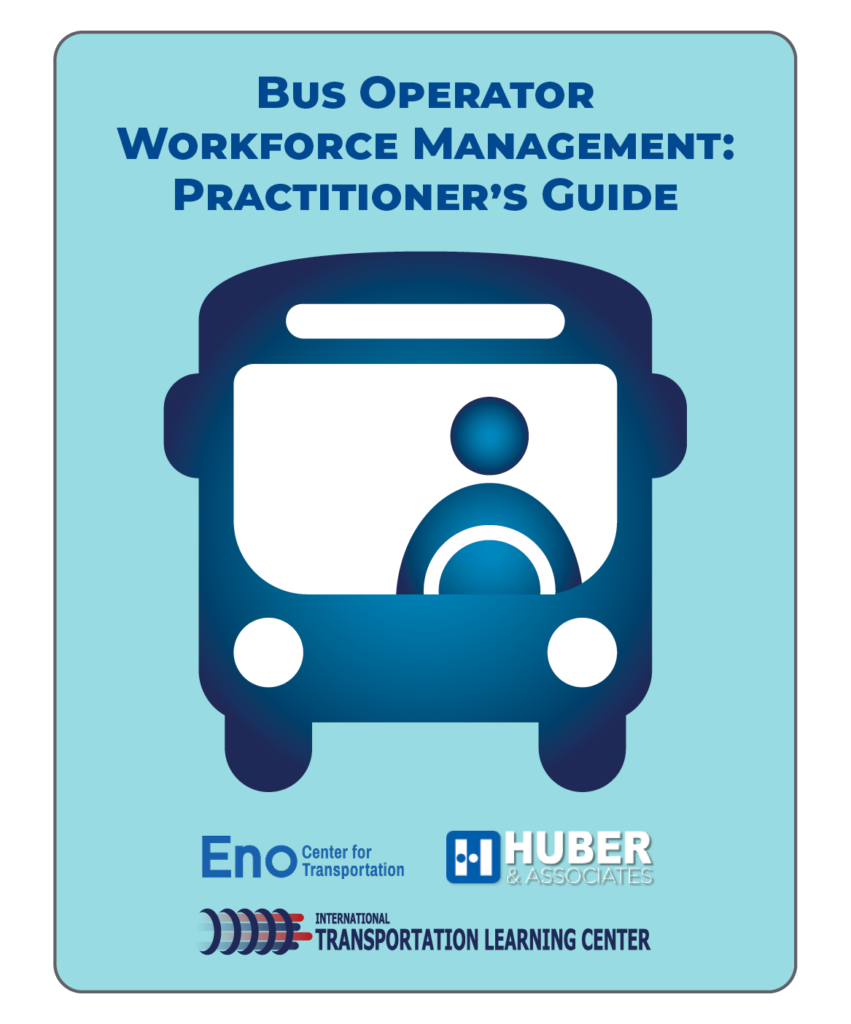
Bus Operator Workforce Management: Practitioner’s Guide
This report, produced by the Eno Center for Transportation, International Transportation Learning Center (ITLC), and Huber & Associates, is a practitioner’s guide that provides recommendations and resources enabling transit agencies to better assess, plan, and implement their operator workforce management programs. A link to a related TRB webinar is also included.
Transit Cooperative Research Program
August 2023
Contributor(s): National Academies of Sciences, Engineering, and Medicine; Transportation Research Board; Transit Cooperative Research Program; Robert Puentes; Philip Plotch; Brianne Eby; Paul Lewis; Karitsa Holdzkom; Xinge Wang; Douglas Nevins; Kenyon Corbett; Melissa Huber
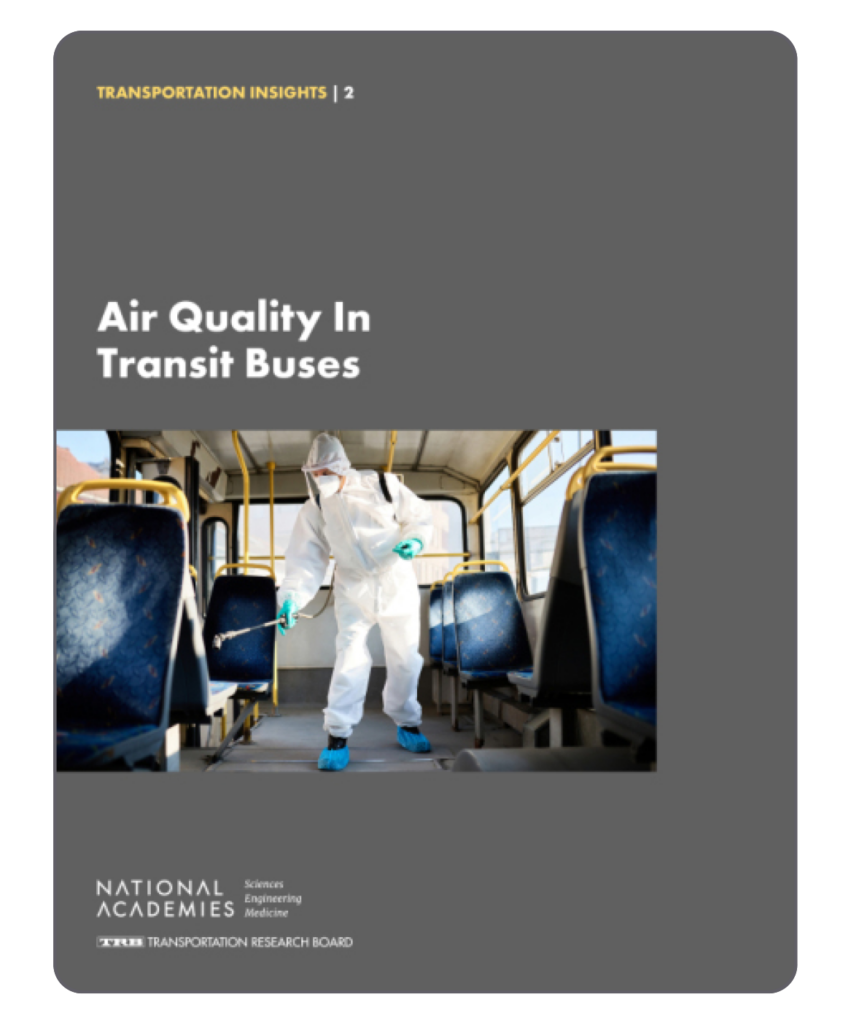
Air Quality in Transit Buses
This report provides a summary from a TRB Transit Cooperative Research Program (TCRP) Insight Event about the air quality in transit buses, particularly since the start of the pandemic. Since then, an increased understanding of infectious disease in confined spaces and the role of droplets and particles in transmission has been increasingly important to the bus industry. At this event, senior transportation executives; representatives from federal, state, and local government; and representatives from technology, consulting, academia, and engineering to discuss opportunities and the challenges of implementing air quality control in buses.
Transportation Research Board
May 2023
TOPICS: Policy and Planning , Safety and Health
Contributor(s): National Academies of Sciences, Engineering, and Medicine; Transportation Research Board; Transit Cooperative Research Program; Laura Williams
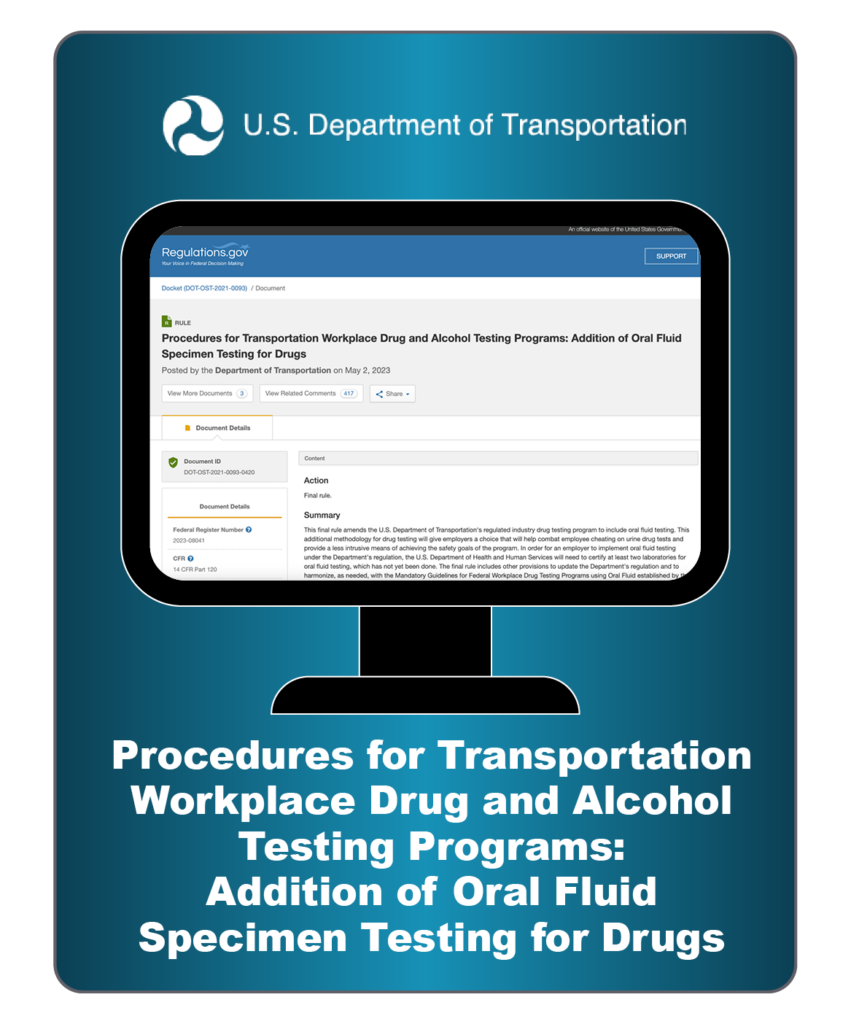
Procedures for Transportation Workplace Drug and Alcohol Testing Programs: Addition of Oral Fluid Specimen Testing for Drugs
This rule amends the U.S. Department of Transportation’s regulated industry drug testing program to include oral fluid testing. This additional methodology for drug testing will give employers a choice that will help combat employee cheating on urine drug tests and provide a less intrusive means of achieving the safety goals of the program.
Department of Transportation
May 2023
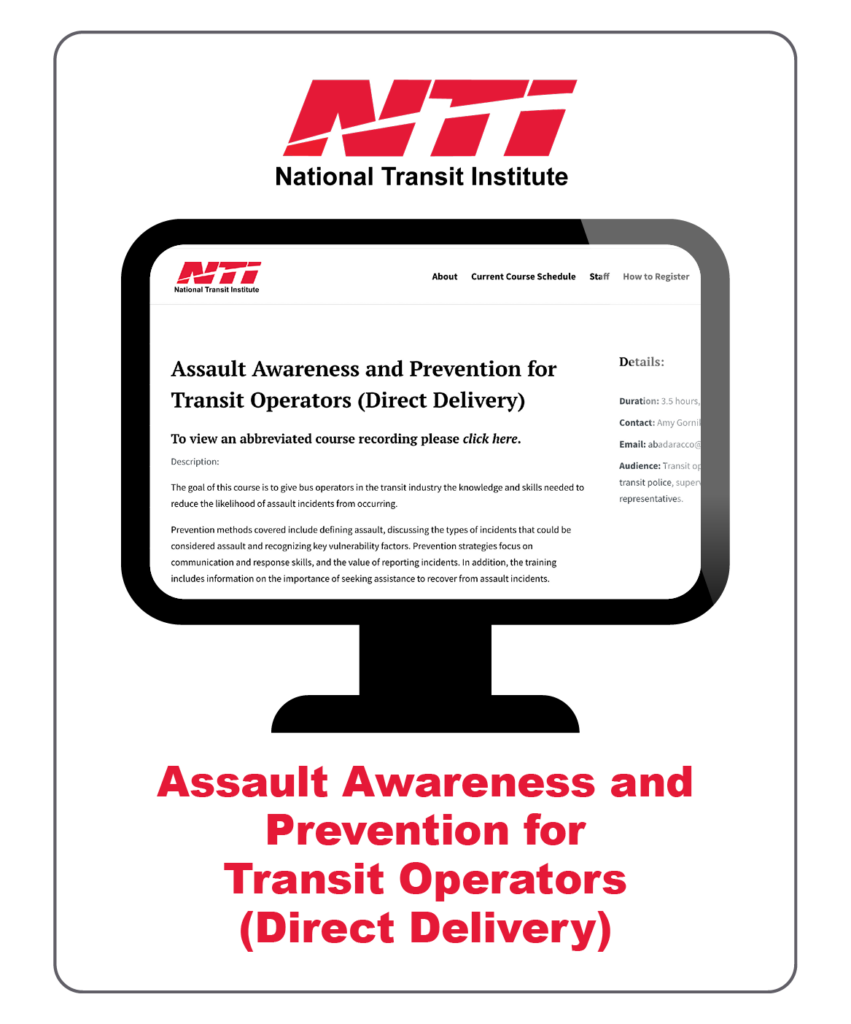
Assault Awareness and Prevention for Transit Operators (Direct Delivery)
This course provides transit bus operators with knowledge and skills to reduce the likelihood of assault incidents, including defining assault and types of incidents that could be considered assault, covering prevention strategies such as communication and response skills, and emphasizing the importance of reporting assault incidents and seeking recovery assistance.
National Transit Institute
TOPICS: Safety and Health , Training
You can register for the course with the Rutgers University Noncredit Course Catalog & Registration System.
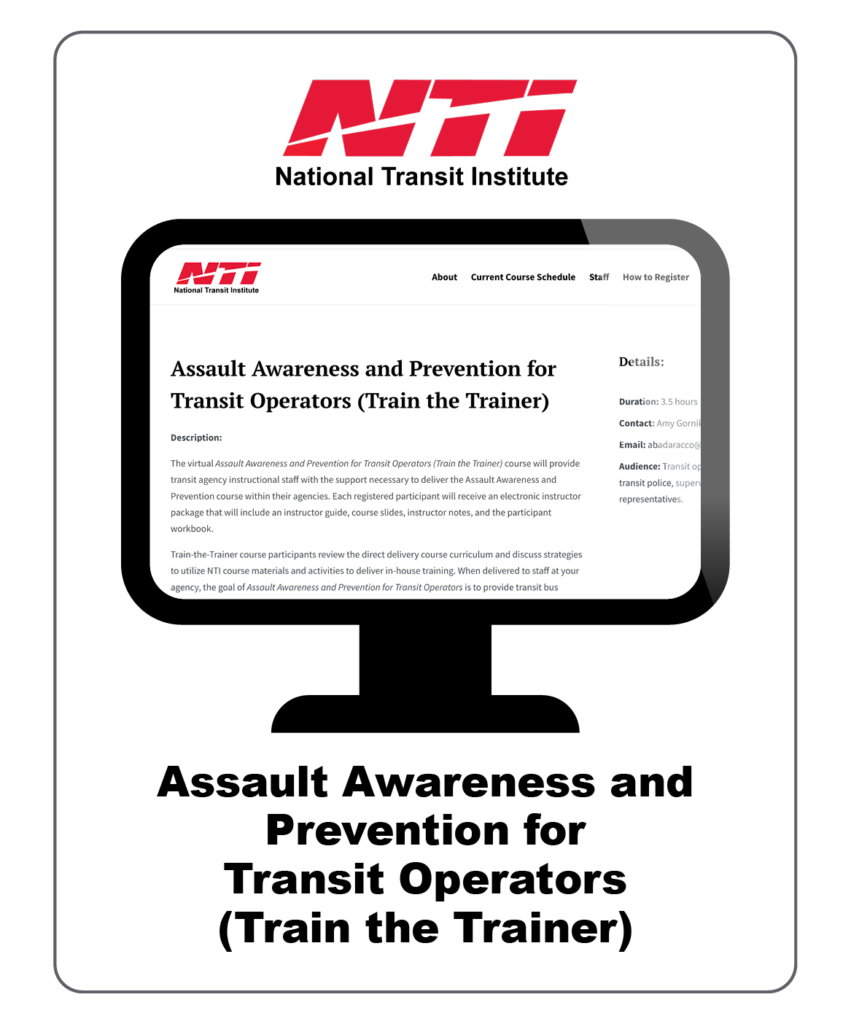
Assault Awareness and Prevention for Transit Operators (Train the Trainer)
This virtual course will provide transit agency instructional staff with the support necessary to deliver the Assault Awareness and Prevention course within their agencies. Each registered participant will receive an electronic instructor package that will include an instructor guide, course slides, instructor notes, and the participant workbook. Participants will be able to deliver the training to provide transit bus operators with knowledge and skills to reduce the likelihood of assault incidents.
National Transit Institute
January 2023
You can register for the course with the Rutgers University Noncredit Course Catalog & Registration System. The direct delivery course for operators can be found here.
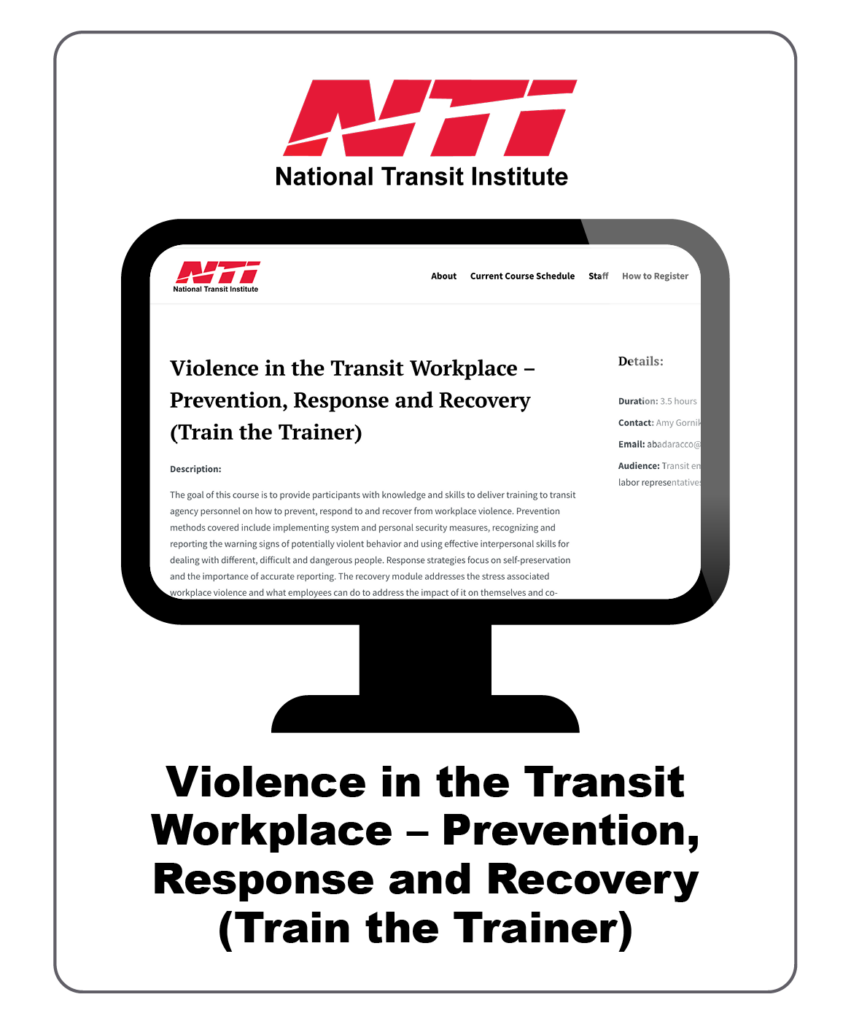
Violence in the Transit Workplace – Prevention, Response and Recovery (Train the Trainer)
The goal of this course is to provide participants with knowledge and skills to deliver training to transit agency personnel on how to prevent, respond to, and recover from workplace violence. Prevention methods covered include implementing system and personal security measures, recognizing and reporting the warning signs of potentially violent behavior and using effective interpersonal skills for dealing with different, difficult and dangerous people.
National Transit Institute
You can register for the course with the Rutgers University Noncredit Course Catalog & Registration System.
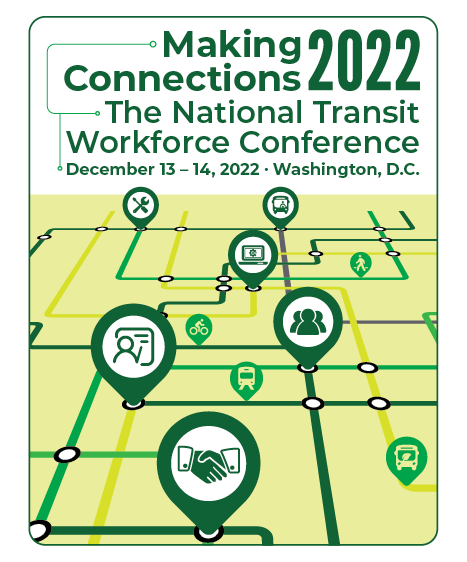
Making Connections 2022 – Conference Overview and Videos
The Transit Workforce Center hosted Making Connections 2022: The National Transit Workforce Conference in Washington, D.C. on December 13-14, 2022. This conference brought together participants from urban, suburban, rural, and tribal public transportation and industry stakeholders in plenaries, workshops, networking, and ongoing dialogue. Discussions and sessions featured topics including recruitment and retention, training, mentoring and apprenticeships, new technologies, and preparing today’s and tomorrow’s workforce.
Transit Workforce Center
December 2022
Session materials from Making Connections 2022 are hosted on the TWC Resource Center. Please click here to view all related materials. A PDF copy of the conference schedule is linked below.
Opening Video:
Recap Video:
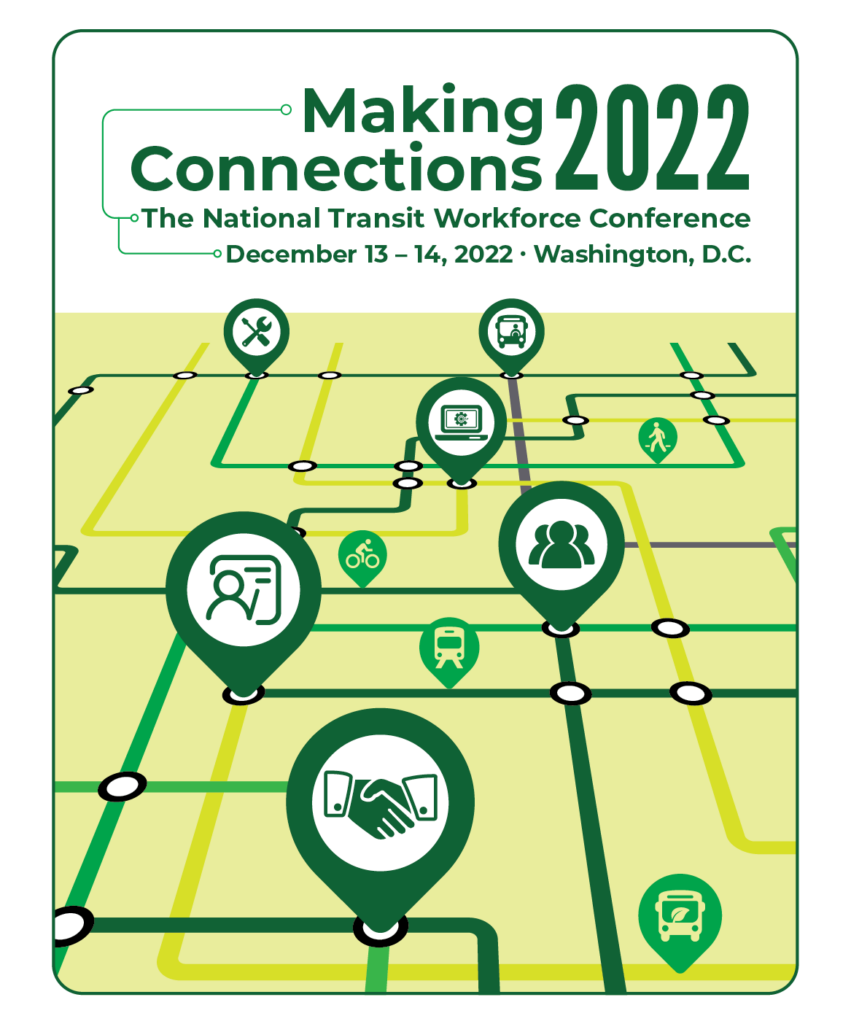
Making Connections 2022 – Engines to Inverters: Preparing Technicians for ZEB Deployment
This session about working with ZEB technologies was presented as part of TWC’s Making Connections 2022 transit workforce conference in December, 2022.
Transit Workforce Center
December 2022
Session Summary: As transit agencies integrate zero-emission technologies into their fleet, many are experiencing difficulties in preparing their frontline workforce to properly maintain and operate the equipment. In this workshop, panelists explored lessons learned, best practices, and available resources to upskill their technician and maintenance workforce and prepare the future frontline workers to safely and effectively work with ZEB technologies. Presentations by industry experts, early-adopters, and successful rollouts offered insight for an audience seeking guidance on first steps and follow-through.
Moderators
- James Hall: Program Manager, Technical Training – International Transportation Learning Center/Transit Workforce Center
- Lisa Jerram: Director of Bus Operations and New Vehicle Technologies – American Public Transportation Association
Speakers
- Joseph Gamez: Assistant Chief Maintenance Officer Maintenance Training – New York City Transit, Department of Buses
- Walter Kirkland: Service Manager – StarMetro Tallahassee
- Obed Mejia: Senior Bus Equipment Instructor – Los Angeles County Metropolitan Transportation Authority

Making Connections 2022 – Designing Safety: Bus of the Future and Beyond
This session about bus operator safety was presented as part of TWC’s Making Connections 2022 transit workforce conference in December, 2022.
Transit Workforce Center
December 2022
Session Summary: In the hierarchy of health and safety protections, engineering controls are at the top. This session addressed the critical issues of operator assaults and operator safety through the lens of safety by design, with a major focus on the significant planning work that has been done to create an effective operator barrier against assault and respiratory hazards. Other advances in safety-related design, such as blind-spot elimination for protection of pedestrians, ergonomics and accessibility, were also reviewed.
Moderators
- Jack Clark: Executive Director – International Transportation Learning Center/Transit Workforce Center
Speakers
- Christy Campoll: Senior Associate – RLS & Associates Inc.
- Brian Sherlock: Safety Specialist – Amalgamated Transit Union
- Mohammed Yousuf: Director, Office of Infrastructure, Safety and Asset Innovation – Federal Transit Administration

Making Connections 2022 – Drive to Revive: Preparing Operators for ZEB Deployment
This session about working with ZEB technologies was presented as part of TWC’s Making Connections 2022 transit workforce conference in December, 2022.
Transit Workforce Center
December 2022
Session Summary: As transit agencies integrate zero-emission technologies into their fleet, many are experiencing difficulties in preparing their frontline workforce to properly maintain and operate the equipment. In this workshop, panelists explored lessons learned, best practices, and available resources to upskill their operator workforce and prepare the future frontline workers to safely and effectively work with ZEB technologies. Presentations by industry experts, early-adopters, and examination of successful rollouts offered insight for an audience seeking guidance on first steps and follow-through.
Moderator
- Maurice Beard: Technical Training Supervisor [retired] – Santa Clara Valley Transportation Authority
Speakers
- Dinero Washington: President/Chief Executive Officer – Shreveport Transit Management (SporTran)
- Richard Gwin: Training Specialist – Sacramento Regional Transit District
- Alphonza Clements: Executive Board Member – DASH/ATU Local 689
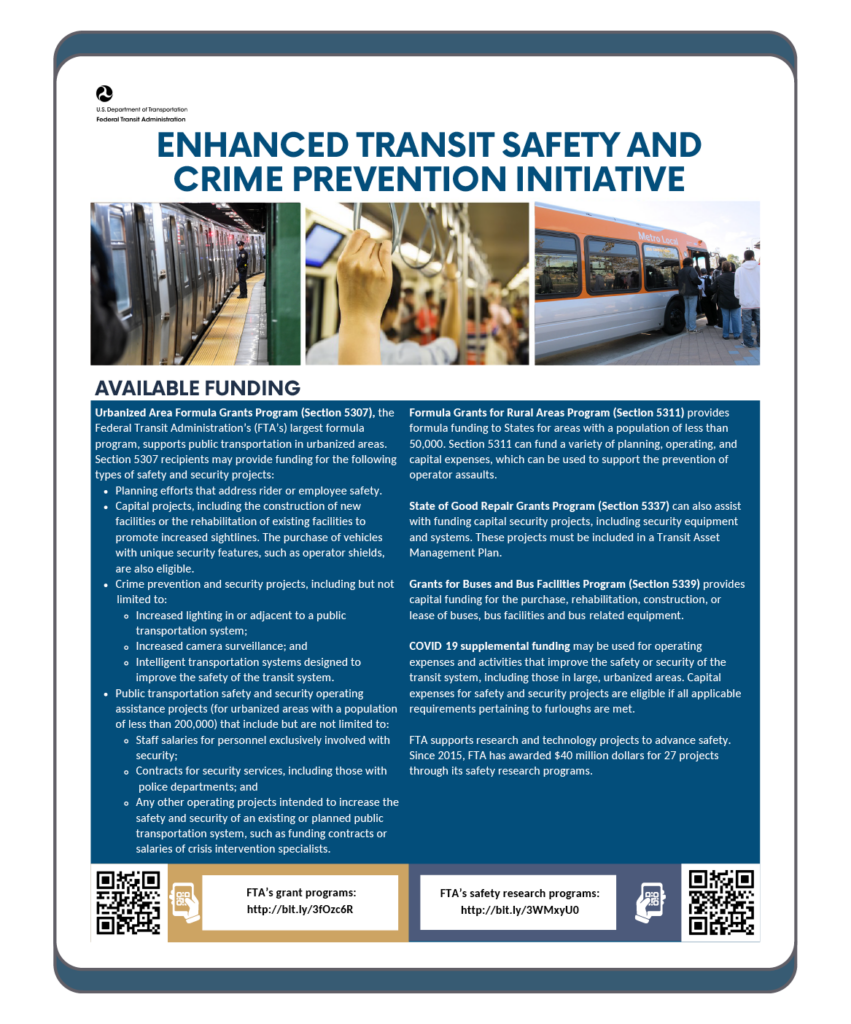
Enhanced Transit Safety and Crime Prevention Initiative FTA Funding Sources Factsheet
To help ensure the continued safety of our nation’s public transit systems, FTA launched the Enhanced Transit Safety and Crime Prevention Initiative to provide information and resources to help transit agencies address and prevent crime on their systems and protect transit workers and riders.
Federal Transit Administration
November 2022
TOPICS: Funding Opportunities , Safety and Health
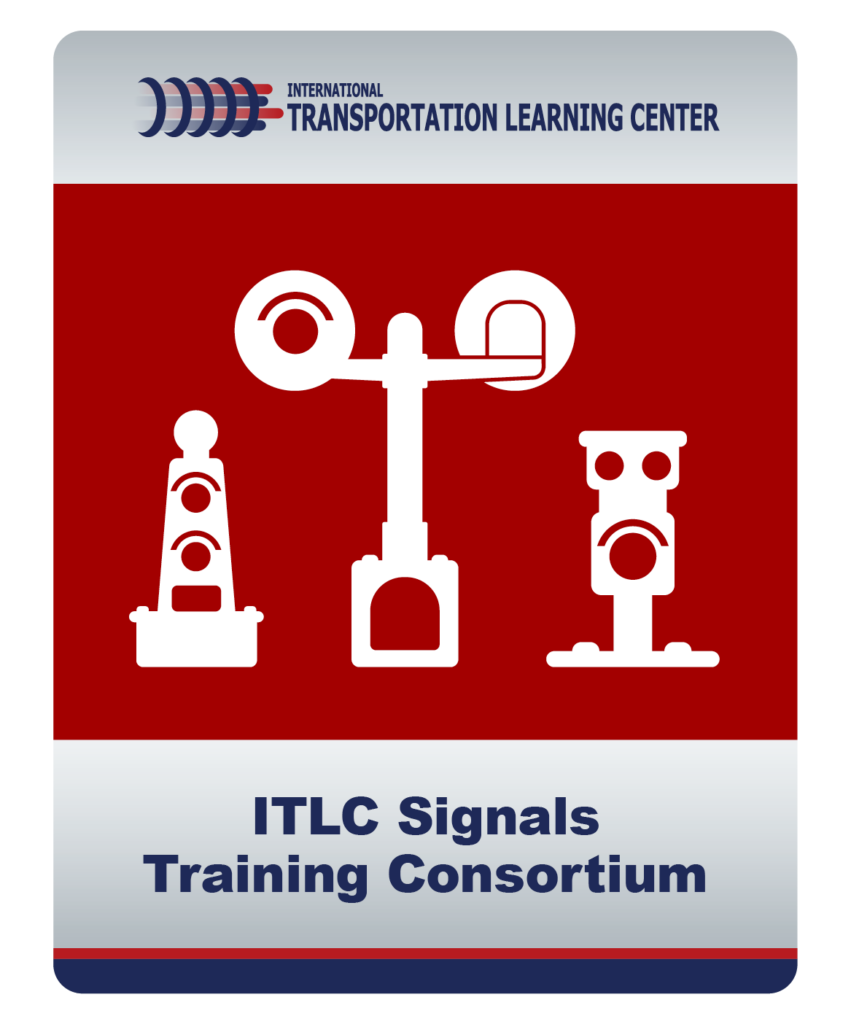
ITLC Signals Training Consortium
The International Transportation Learning Center (ITLC) organizes multiple national training consortia to develop standards-based national training courseware for frontline occupations in public transportation organizations.
In 2013, public transportation agencies and unions across the country came together to form the National Signals Maintenance Training Consortium. They were driven to create a full set of standardized national courseware to support training and apprenticeship programs for signal maintainers. Since then, over 70 signals maintenance subject matter experts from 26 member agencies and unions have worked with instructional systems designers from the ITLC to create a comprehensive training program for signal maintainers.
International Transportation Learning Center
November 2022
TOPICS: Safety and Health , Training
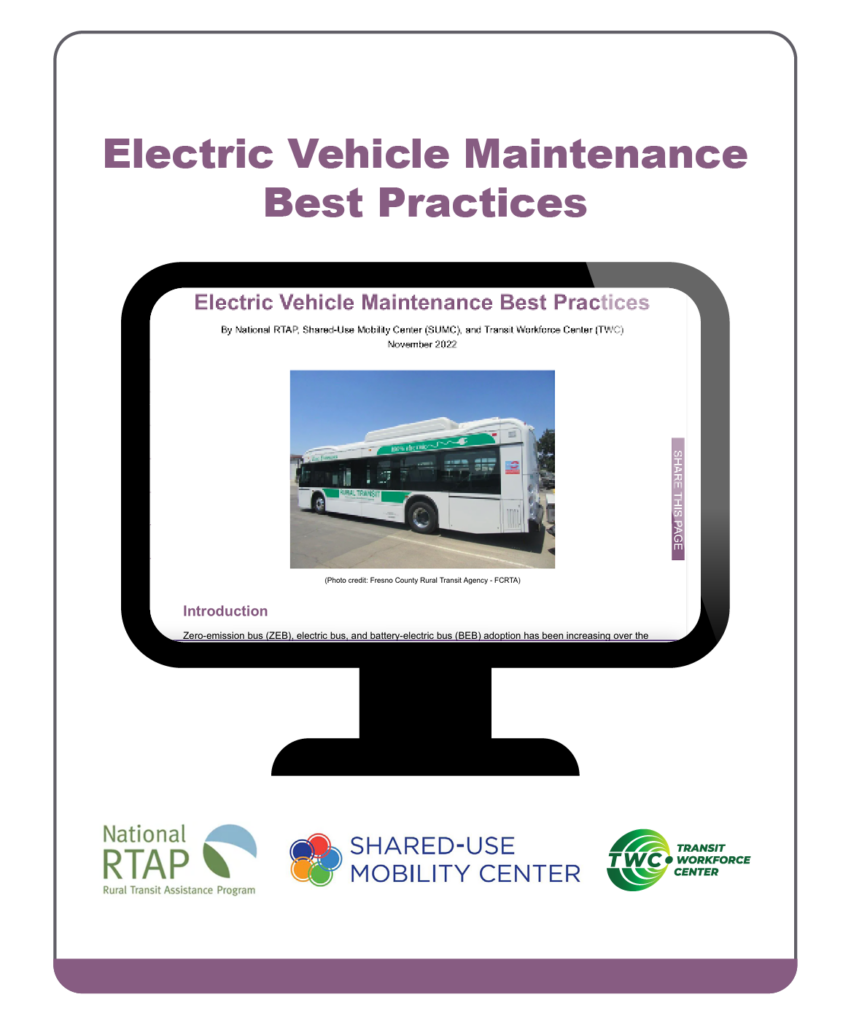
Electric Vehicle Maintenance Best Practices
This best practice spotlight article on electric vehicle maintenance provides recommended practices and case studies from transit agencies that have successfully implemented these vehicles into their fleets.
National RTAP, Shared-Use Mobility Center (SUMC), and Transit Workforce Center (TWC)
November 2022
TOPICS: Low- or No-Emission , Safety and Health , Training
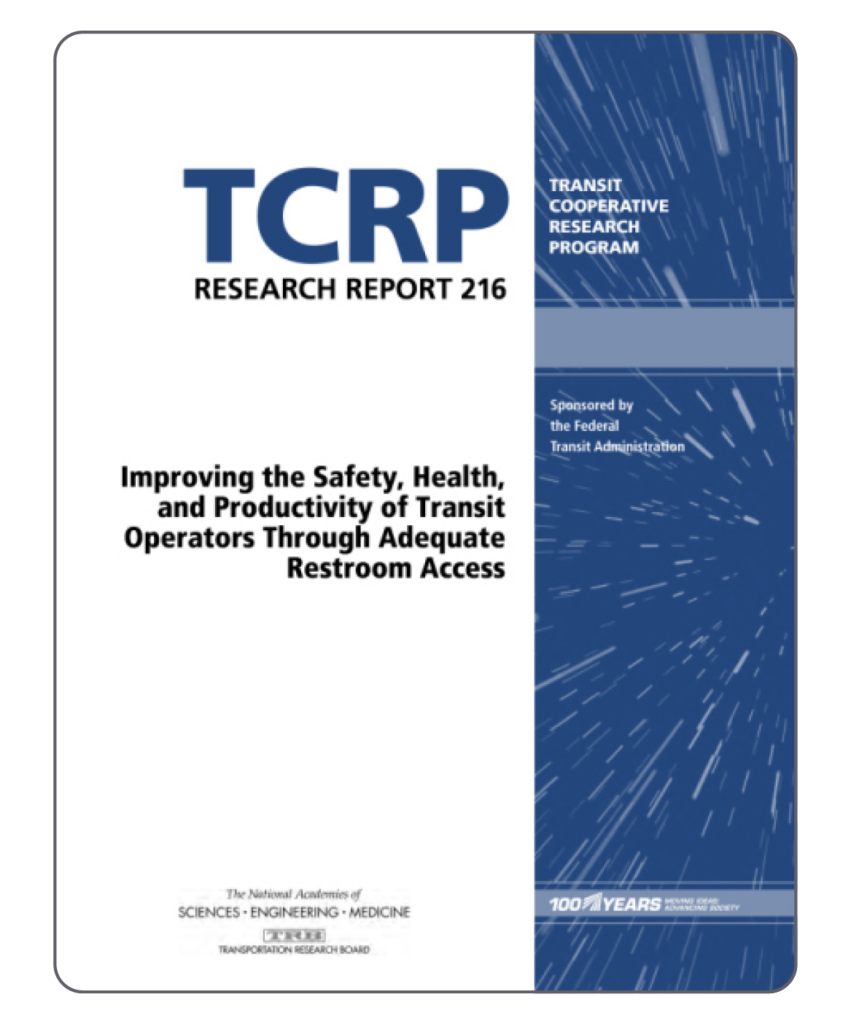
Improving the Safety, Health, and Productivity of Transit Operators Through Adequate Restroom Access
This report presents a catalog of good practices, tools, and resources that provide a foundation for implementable strategies to improve restroom access, primarily for transit vehicle operators. The report compiles research from 100 transit agencies on current and best practices; the impact of restroom access on health, safety, and operations, and lessons learned.
Transit Cooperative Research Program
October 2022
TOPICS: Policy and Planning , Safety and Health
A toolbox accompanying the report includes helpful resources such as restroom inventory, planning, and cost estimation tools, as well as templates for restroom access policies and contract language.
Contributor(s): National Academies of Sciences, Engineering, and Medicine; Transportation Research Board; Transit Cooperative Research Program; Robin Mary Gillespie, City University of New York; RLS & Associates Robbie Sarles
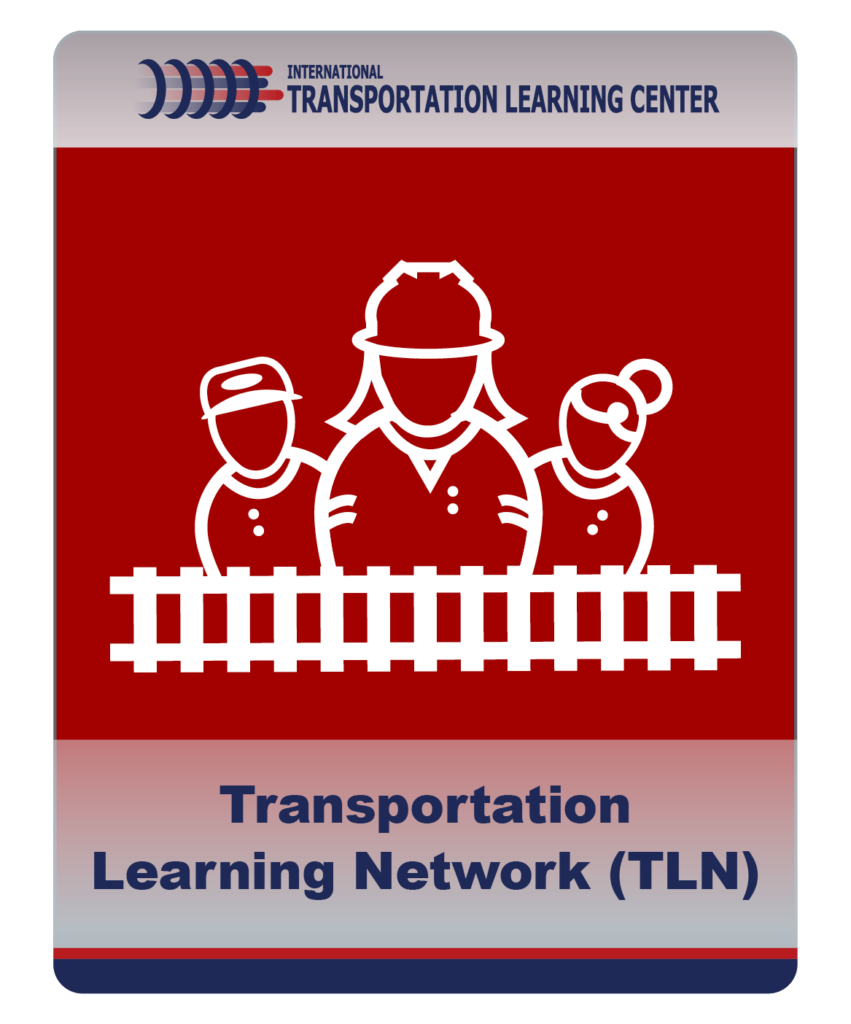
Transportation Learning Network (TLN)
The Transportation Learning Network (TLN) is part of an industry-wide effort aimed at strengthening transit training programs. It is designed and maintained by the International Transportation Learning Center, and provides a platform for accessing industry specific training materials – both for direct self-led online learning and also for download by trainers to use in a classroom or field settings. Topics covered include maintenance of transit elevators and escalators, signals, railcar and traction power.
International Transportation Learning Center
September 2022
TOPICS: Apprenticeship , Safety and Health , Training
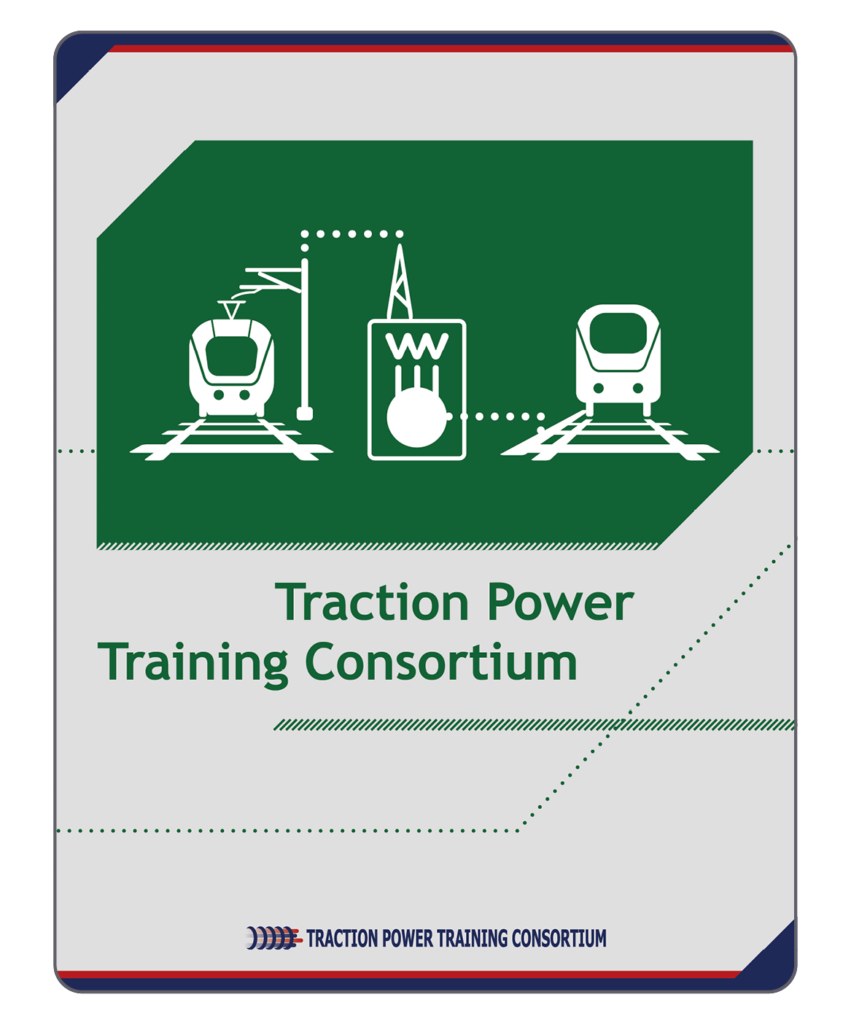
Traction Power Training Consortium
The International Transportation Learning Center (ITLC) organizes multiple national training consortia to develop standards-based national training courseware for frontline occupations in public transportation organizations.
Launched by the ITLC in March 2020, the Traction Power Training develops introductory and advanced instruction-ready and interactive courses on traction power maintenance that build on APTA-approved and industry-recognized training standards. Course topics include: worker safety, troubleshooting traction power systems, power distribution, substations, overhead and third rail power distribution, and lifting and rigging operations.
International Transportation Learning Center
TOPICS: Safety and Health , Training
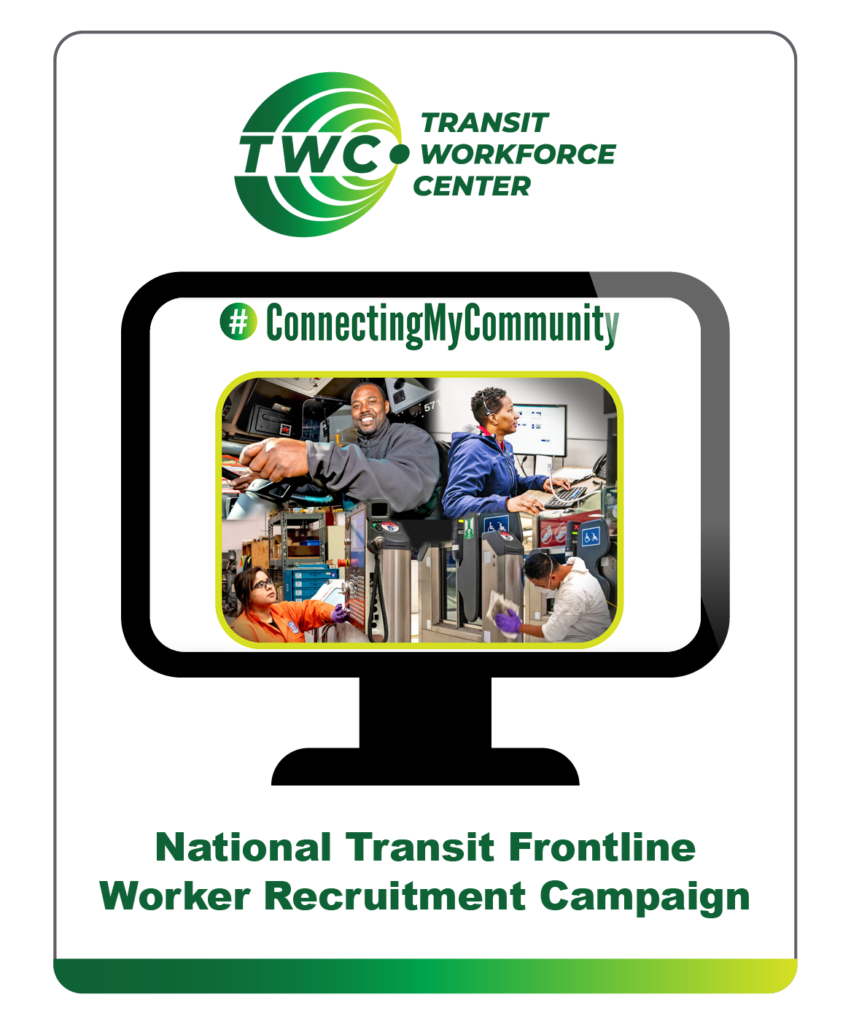
National Transit Frontline Worker Recruitment Campaign
Across the United States, whether large, small, urban, rural, or tribal, transit agencies are facing the challenge of recruiting and retaining drivers, mechanics, and technicians who can operate and maintain the buses of our public transit systems. To help support local transit efforts, TWC is developing the #ConnectingMyCommunity national frontline worker recruitment campaign, coordinated with the Federal Transit Administration (FTA) and industry, labor, and community partners from around the country.
Transit Workforce Center
July 2022
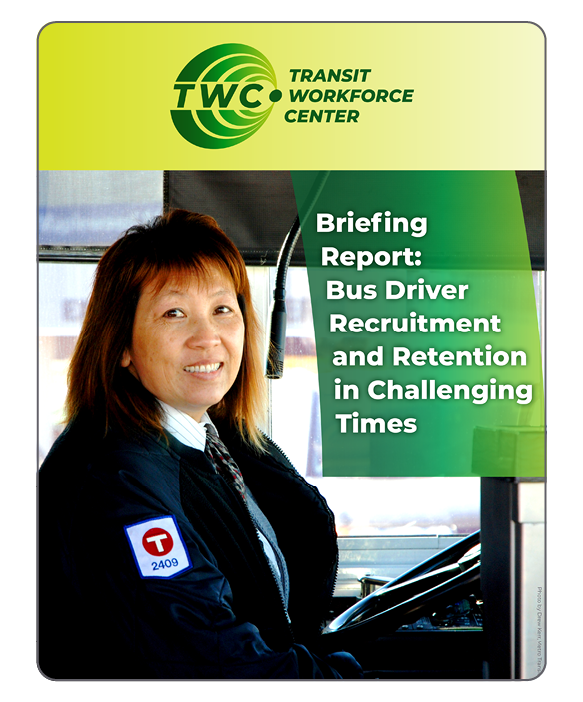
Bus Driver Recruitment and Retention in Challenging Times
Transit Workforce Center
April 2022
TOPICS: Hiring and Recruitment , Retention , Safety and Health , Workforce Shortage
While the U.S. public transportation industry has long had a significant bus operator shortage, it has been magnified by the COVID-19 pandemic. COVID-19 has not only exacerbated existing trends, but also introduced new labor market dynamics. This brief describes overall workforce trends for bus operators, obstacles to recruitment, and challenges for workforce retention, to help inform efforts to recruit more drivers nationwide.
Overall workforce trends
According to 2020 Bureau of Labor Statistics (BLS) data, there are 162,850 bus operators nationally. Federal government projections indicate strong growth for bus operators; BLS estimates the occupation will grow “much faster than average (15 percent or higher).”[1] To keep up with growth and make up for retirements and turnover, the industry will need to recruit scores of new workers. BLS reported an annual average of 24,600 projected bus operator job openings for 2020 to 2030.[2]
According to BLS, annual wages for the occupation were $45,900 in 2020, which was higher than the national median of $41,950.[3] Despite having a reputation for paying relatively well and providing robust benefits,[4], [5] transit agencies have faced significant challenges to recruit workers in sufficient numbers to meet the growing demand. The rise of COVID and the omicron variant have created a “labor crisis” in transit, leading Houston Metro to offer bonuses of $4,000 for new drivers, and NYC to try to lure workers out of retirement, for example.[6]
Demographic challenges
One major demographic challenge contributing to the current operator shortage is the disproportionately older bus operator workforce. As Figure 1 on the next page shows, the median age of U.S. workers was 42.2 years in 2021, and 42.8 years in transportation and warehousing. For the bus service and urban transit industry, it was 52.7, which is substantially higher than both the nationwide median age for workers and the median age for other subsectors within transportation and warehousing, such as air or rail transportation.[7] The higher median age of urban transit workers is largely attributable to the older age of bus drivers (median 53.3 years)[8], who constitute 60 percent of the workforce[9]. A large percentage of workers are expected to retire in the coming years.[10], [11]
COVID-related health and safety issues
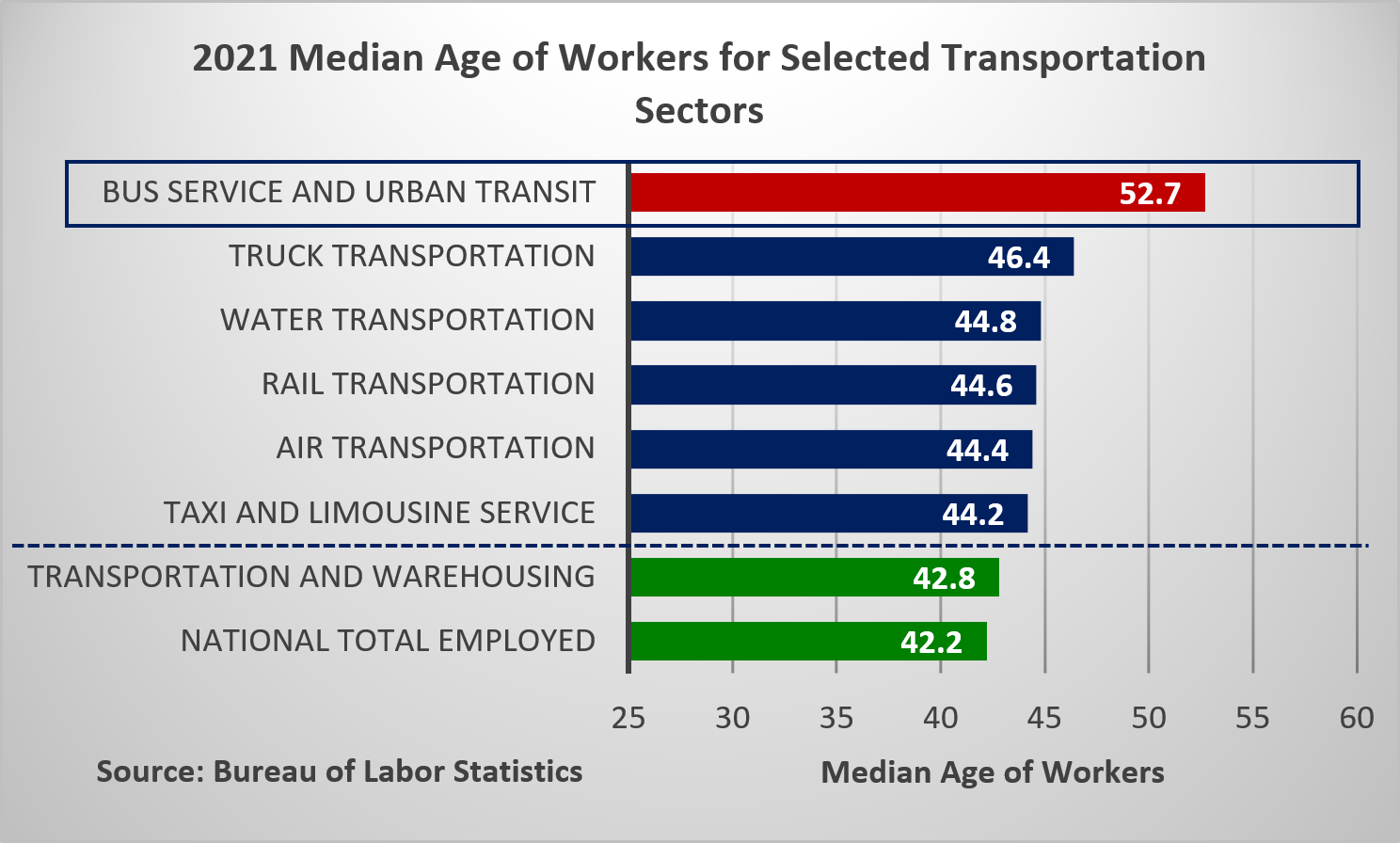
Figure 1. 2021 Median Age of Workers for Selected Transportation Sectors
As frontline workers, bus operators risk exposure to COVID-19, and serious health consequences, even death. For example, in New York City, 136 MTA operators died around the start of the pandemic.[12] As of December 2021, more than 2,000 COVID cases have been reported among WMATA workers since the pandemic began; seven of the workers died. According to CTAA, some member agencies have experienced as many as 40 percent of their operators absent from work due to sickness.[13] COVID-related factors have resulted in bus operator shortages and service cuts,[14] a trend which has occurred in transit systems nationwide. In addition, some drivers have quit due to fears about the virus or been terminated due to failure to comply with vaccination and testing policies.[15]
Pre-existing labor market dynamics
The pandemic has also exacerbated existing workforce challenges, such as competition for pay. Stakeholders interviewed for a GAO study reported that other industries which hire workers with similar levels of education, including fast food, may attract workers instead of transit, especially in rural areas or areas with low unemployment.[16] When the economy is strong, construction also tends to attract workers who might otherwise work in transit. Furthermore, some workers leave the transit industry once they have earned their CDL.[17]
CDL and new requirements
Transit bus drivers are generally required to hold Class B Commercial Drivers’ Licenses and passenger (P) endorsements. Due to the high cost of self-funding CDL training, employer-sponsored training programs in which costs are covered, such as those run by transit agencies, are an attractive option for job seekers. However, the potential exists for trainees to pursue employment in commercial driving or another sector after completing a transit-oriented training program.[18] This dynamic is particularly challenging given concurrent shortages of truck and school bus drivers.[19]
Individuals are required to hold a standard driver’s license to qualify for a commercial learners’ permit, which in turn is needed to pursue CDL training.[20] These requirements may impact recruitment of young people, as rates of driver’s license attainment for 18–24 year-olds have decreased slightly in recent decades and may be lower during recessionary periods and among residents of cities.[21]
Regulatory changes impacting entry level driver training (ELDT) may also affect agencies’ ability to fill positions. As of February 7, 2022, the FMCSA has started enforcing universal training standards for entry level driver training and maintaining a database of qualified providers (the Training Provider Registry).[22] Professional organizations representing transit agencies such as APTA and CTAA have expressed concern about these additional regulatory requirements. Agency contacts have also identified challenges related to requirements around license renewal, medical fitness testing, the availability of training during the pandemic and delays with local DMVs processing CDL application due to pandemic staff shortages. FMCSA has granted waivers around certain other CDL requirements during the pandemic, and recently announced a grant to support state capacity for CDL licensing, though the emphasis appears to be on commercial trucking. [23], [24]
Assaults against drivers
Driver safety has been a persistent problem. Assaults against drivers and altercations with passengers have been well-publicized in communities that transit serves.[25], [26]A 2015 Monthly Labor Review article identified violence as a key challenge facing drivers, with examples including a 2012 attack with rocks in Washington, DC and a 2013 shooting in Seattle.[27] More recently, drivers have reported increased stress during the pandemic and face threats including violence related to passenger non-compliance with mask mandates, among other issues. Such incidents have deterred potential applicants from considering a transit driving career and contributed to early retirements.[28]
Lack of interest from younger generations
Younger workers have different expectations about the workplace, which has made it challenging for agencies to recruit them. Younger workers tend to value flexible schedules, yet operators must often work on holidays and weekends, especially when they first start in the field. New hires in general may not find this attractive.[29]
Advances in technology
Advances in technology present challenges to recruitment and retention. The rise of automation and apps requires drivers to possess technical knowledge to operate newer buses and assist customers; this means there is a relatively small pool of qualified workers. Additional and new types of training are needed for both incumbent and new workers to adapt. Furthermore, drivers report feeling stress from being monitored more often by cameras and tracking technology.[30], [31]
Stress and burn-out
Finally, being a bus operator is a highly stressful occupation. Drivers must operate large vehicles on congested city streets on tight time schedules.[32] They work relatively long hours with infrequent breaks.[33] As discussed earlier, technological advances have contributed to worker stress as well. Operators also experience burn-out due to the stress of dealing with passengers, who may ignore COVID safety rules,[34] or be unruly or violent.
Conclusion
Bus operators have been in short supply for years, and this problem has been magnified by COVID-19. An aging workforce and labor exits related to COVID have largely contributed to the shortage. Top obstacles to recruitment and retention include pandemic-related health and safety issues, pre-existing labor market dynamics including competition over pay, CDL requirements, assaults against drivers, and lack of interest from younger generations. Other contributing factors include advances in technology, perceptions of inflexibility, and stress. To address these workforce recruitment and retention issues for bus operators, key stakeholders from management and labor should keep these data and trends in mind.
Bus Operator Recruitment Campaign
The Transit Workforce Center (TWC) is currently developing a national campaign in coordination with the FTA, along with key labor and industry partners, to effectively address the national bus operator shortage. The TWC is preparing to create a toolkit of materials designed to be adapted by agencies and labor union locals that will consist of templates for commercial scripts, postcard mailers, exhibit banners, talking points for public meetings, social media postings, informational video scripts, and letters of introduction. If any organization has existing models that should be incorporated into these plans, please contact Senior Communications Specialist David Stephen at dstephen@transportcenter.org.
Contributing Authors: Benjamin Kreider (Consultant); Xinge Wang; Douglas Nevins
[1] Bureau of Labor Statistics. Occupational Employment and Wages, May 2020. 53-3052 Bus Drivers, Transit and Intercity. https://www.bls.gov/oes/current/oes533052.htm
[2] Bureau of Labor Statistics. Table 1.7: Occupational projections, 2020–30, and worker characteristics, 2020. https://www.bls.gov/emp/tables/occupational-projections-and-characteristics.htm.
[3] Summary Report for: 53-3052.00 – Bus Drivers, Transit and Intercity. O*Net Online. https://www.onetonline.org/link/summary/53-3052.00?redir=53-3021.00.
[4] Shared-Use Mobility Center. “Case Study: Managing the Labor Shortage at Transit Agencies.” November 5, 2021. https://learn.sharedusemobilitycenter.org/casestudy/managing-the-labor-shortage-at-transit-agencies/.
[5] Laura Bliss. “There’s a Bus Driver Shortage. And No Wonder.” Bloomberg City Lab. June 28, 2018. https://www.bloomberg.com/news/articles/2018-06-28/there-s-a-bus-driver-shortage-and-no-wonder.
[6] Eli Rosenberg. “Labor shortages are hampering public transportation systems, challenging the recovery of city life.” Washington Post. December 28, 2021. https://www.washingtonpost.com/business/2021/12/28/worker-shortages-public-transportation/.
[7]Bureau of Labor Statistics. Table18b: Employed persons by detailed industry and age. https://www.bls.gov/cps/cpsaat18b.htm.
[8] Bureau of Labor Statistics, Table 11b: Employed persons by detailed occupation and age, 2020. https://www.bls.gov/cps/cpsaat11b.htm.
[9] Bureau of Labor Statistics, National Employment Matrix. https://data.bls.gov/projections/nationalMatrix?queryParams=485100&ioType=i.
[10] Jack Clark. Testimony before the House Transportation Infrastructure Subcommittee on Highways. March 13, 2019. https://transportation.house.gov/imo/media/doc/Testimony-%20Clark.pdf.
[11] Robert Puentes et al. “Practitioner’s Guide to Bus Operator Workforce Management.” Transportation Research Board of The National Academies of Sciences, Engineering, and Medicine. November, 2021. Unpublished interim report.
[12] Benito Perez. “After COVID, who’s driving the bus?” Transportation For America. Nov 2, 2021. https://t4america.org/2021/11/02/bus-operator-shortage/.
[13] Justin George. “Omicron deepens bus driver shortage, frustrating passengers as transit agencies pare back service.” Washington Post. January 15, 2022. https://www.washingtonpost.com/transportation/2022/01/15/covid-omicron-bus-transit/
[14] Justin George. “Bus operator shortage due to covid prompts Metro to reduce bus service.” Washington Post. December 23, 2021. https://www.washingtonpost.com/transportation/2021/12/23/dc-metro-bus-shortage-covid/.
[15] “MARTA Making Temporary Service Modifications to Address Bus Operator Shortage.” Metro Magazine. https://www.metro-magazine.com/10155945/marta-making-temporary-service-modifications-to-address-bus-operator-shortage. November 12, 2021.
[16] US Government Accountability Office. “Transit Workforce Development – Improved Strategic Planning Practices Could Enhance FTA Efforts.” GAO-19-2090. March 2019. https://www.gao.gov/assets/700/697562.pdf. P. 15.
[17] Puentes et al., 2021.
[18] Puentes et al., 2021. P. 37.
[19] Bliss, 2021.
[20] FMCSA. “Commercial Driver’s License: States.” December, 2019. https://www.fmcsa.dot.gov/registration/commercial-drivers-license/states
[21] Tefft, B. C. & Foss, R. D. “Prevalence and Timing of Driver Licensing Among Young Adults, United States, 2019.” October, 2019. AAA Foundation for Traffic Safety. https://aaafoundation.org/wp-content/uploads/2019/10/19-0500_AAAFTS_Teen-Driver-Safety-Week-Brief_r1.pdf
[22] FMCSA. “Commercial Driver’s License: Entry-Level Driver Training (ELDT). February, 2022. https://www.fmcsa.dot.gov/registration/commercial-drivers-license/entry-level-driver-training-eldt
[23] FMCSA. “Waiver in Response to the COVID-19 National Emergency –For States, CDL Holders, CLP Holders, and Interstate Drivers.” December 15, 2020. https://www.fmcsa.dot.gov/emergency/waiver-response-covid-19-national-emergency-states-cdl-holders-clp-holders-and-1
[24] U.S. DOT. “DOT, DOL Announce Expansion of Trucking Apprenticeships, New Truck Driver Boards and Studies to Improve the Working Conditions of Truck Drivers.” January 13, 2022. https://www.transportation.gov/briefing-room/dot-dol-announce-expansion-trucking-apprenticeships-new-truck-driver-boards-and
[25] Puentes et al., 2021. P. 36.
[26] Luz Lazo. “Citing attacks directed at buses, Metro weighs service cuts in Anacostia.” Washington Post.
[27] Bureau of Labor Statistics. “When the wheels on the bus stop going round and round: occupational injuries, illnesses, and fatalities in public transportation.” 2015. https://www.bls.gov/opub/mlr/2015/article/when-the-wheels-on-the-bus-stop-going-round-and-round.htm#_edn1..
[28] Chris Teale. “Transit workers face growing rate of assaults: ‘There’s not much we can do.’” Smart Cities Dive. February 17, 2021. https://www.smartcitiesdive.com/news/transit-workers-face-growing-rate-of-assaults-theres-not-much-we-can-do/594959/
[29] Puentes et al., 2021.
[30] Puentes et al., 2021.
[31] GAO, p. 16.
[32] Bliss, 2018.
[33] GAO, 2019; Puentes et al., p. 14.
[34] Justin George. “Omicron deepens bus driver shortage, frustrating passengers as transit agencies pare back service.” Washington Post. January 15, 2022. https://www.washingtonpost.com/transportation/2022/01/15/covid-omicron-bus-transit/.
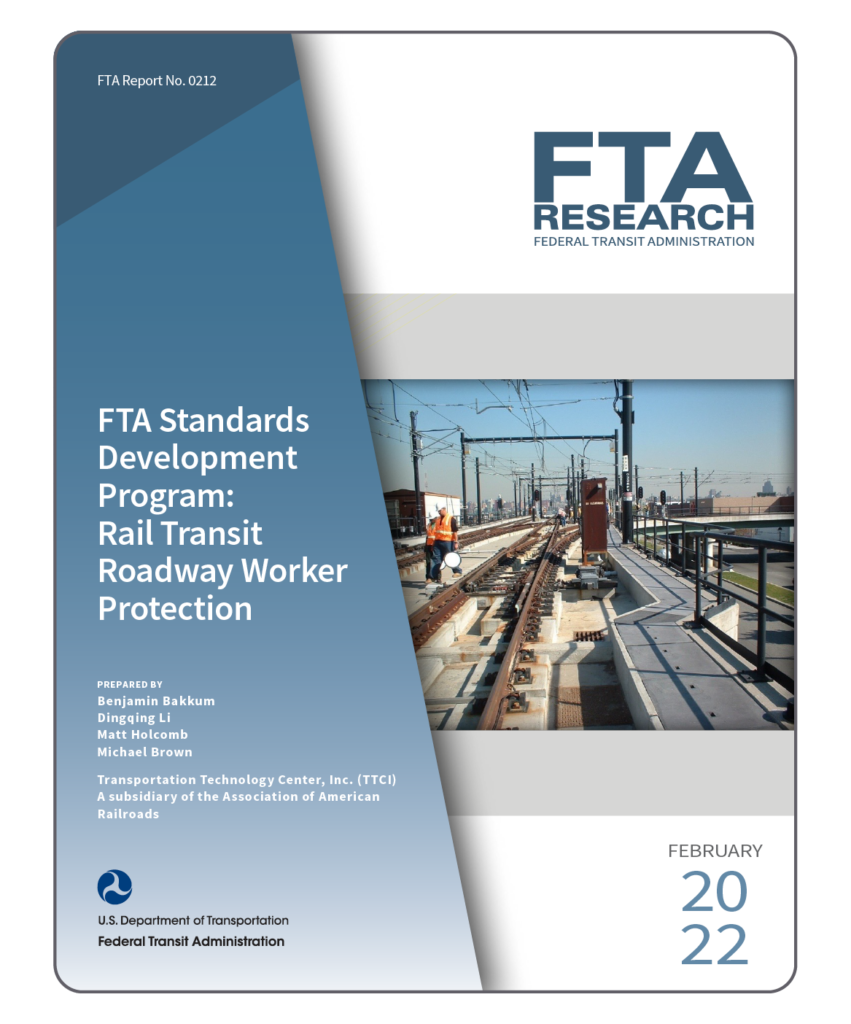
FTA Standards Development Program: Rail Transit Roadway Worker Protection
This report reviews existing standards and best practices and develops use cases, a risk assessment matrix, and high-level concepts of operations (CONOPS) for Rail Transit Roadway Worker Protection (RWP). The project evaluates current industry practices and technologies in use for roadway worker protection and conducts a risk/hazard analysis of current practices using an industry-representative survey.
Federal Transit Administration
February 2022
TOPICS: Policy and Planning , Safety and Health
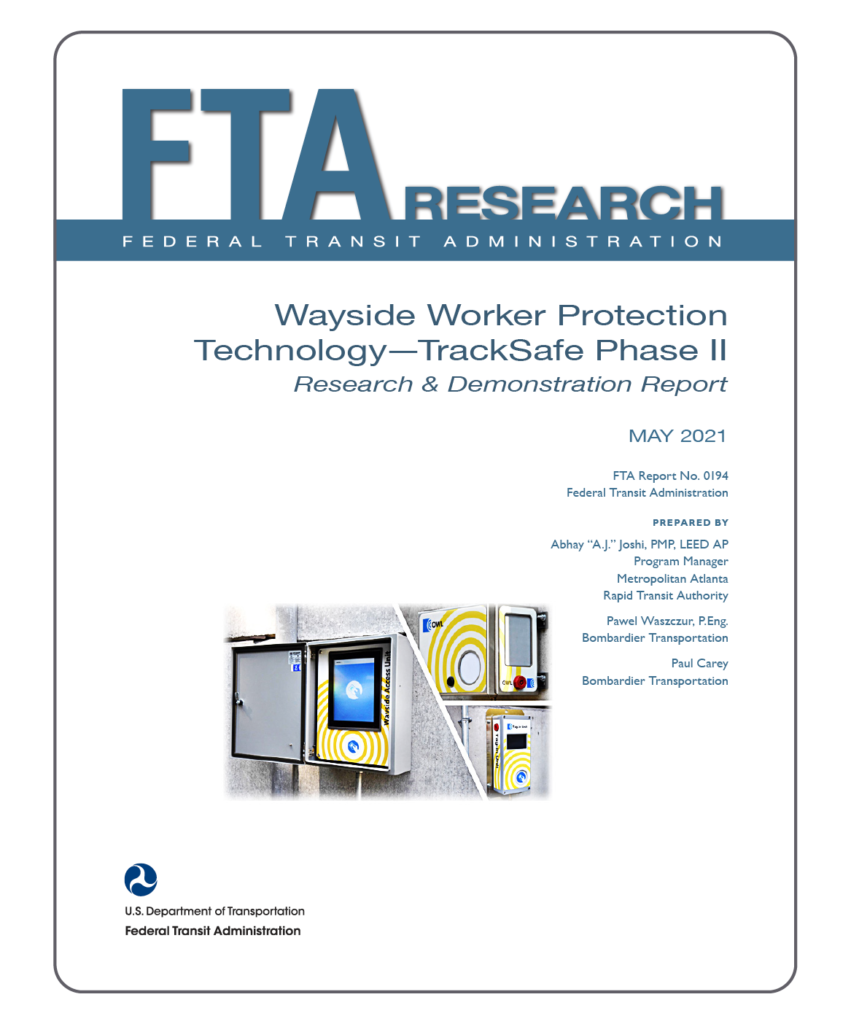
Wayside Worker Protection Technology—TrackSafe Phase II Research & Demonstration (Report 0194)
This report outlines research and demonstration of a roadway worker protection (RWP) warning technology developed by Bombardier Rail called TrackSafe. The system was installed at the Metropolitan Atlanta Rapid Transit Authority (MARTA) and was designed to reduce the hazards of working within a transit rail right-of-way (ROW).
Federal Transit Administration
May 2021
TOPICS: Policy and Planning , Safety and Health
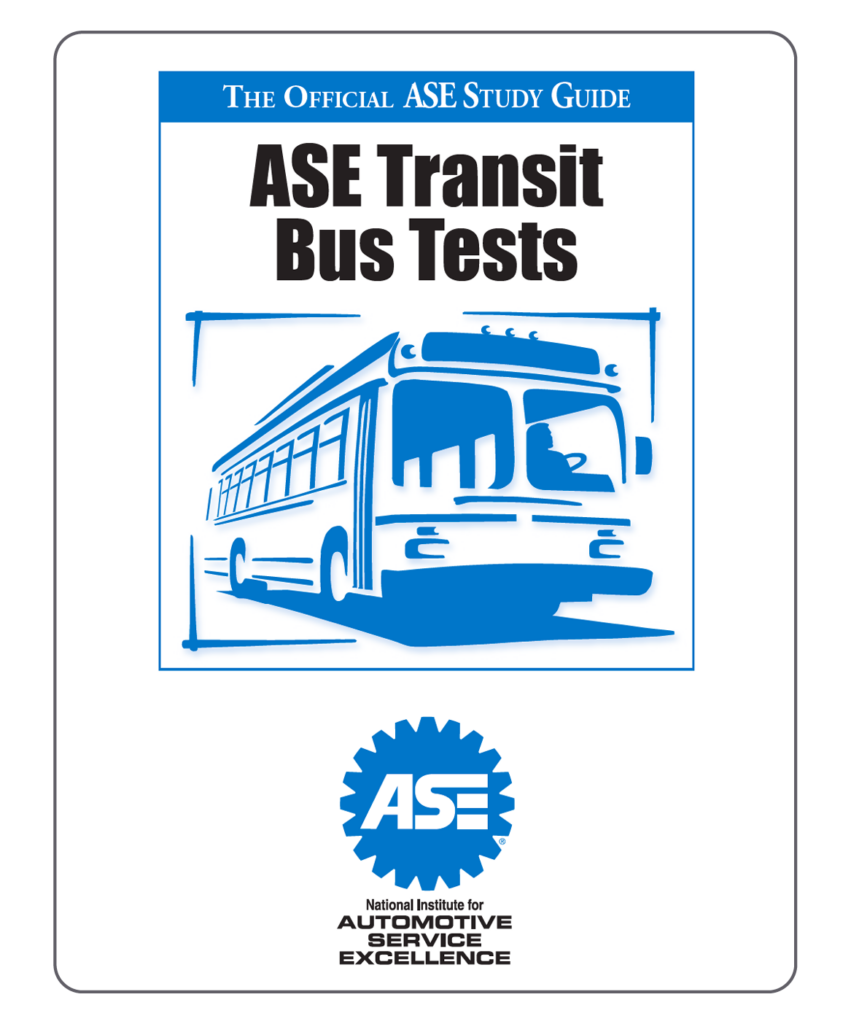
ASE Transit Bus Test Study Guide
The Official ASE Study Guide for Transit Bus Tests is designed to help technicians prepare for the ASE certification tests, which identify and recognize those Transit Bus Technicians who demonstrate knowledge of the skills necessary to diagnose, service, and repair various systems on transit buses.
Automotive Service Excellence (ASE)
January 2021
TOPICS: Low- or No-Emission , Safety and Health , Training
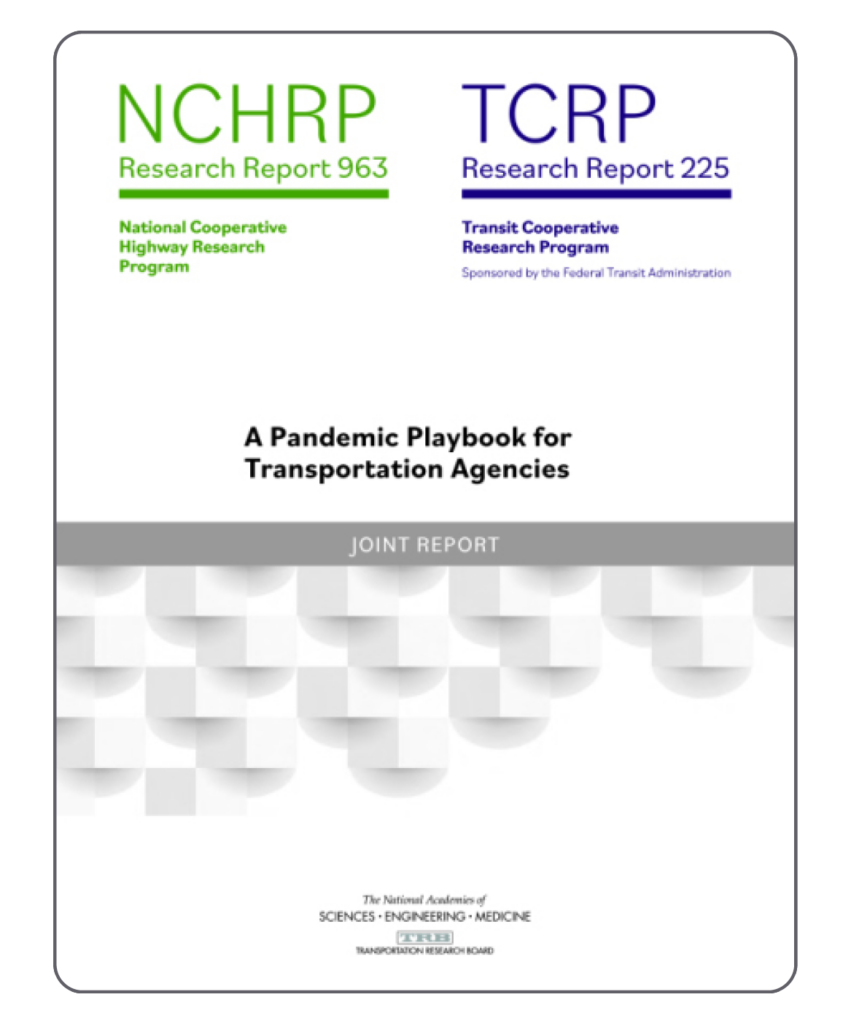
A Pandemic Playbook for Transportation Agencies
TRB’s National Cooperative Highway Research Program and Transit Cooperative Research Program have jointly issued NCHRP Research Report 963/TCRP Research Report 225: A Pandemic Playbook for Transportation Agencies, which was created to improve transportation agency responses to a pandemic.
The Playbook concentrates on what needs to be done, when and by whom. It briefly addresses planning for a pandemic, a topic addressed in greater depth in NCHRP Report 769: A Guide for Public Transportation Pandemic Planning and Response. It summarizes effective practices currently used by transportation agencies based on interviews with state departments of transportation and transit agency leaders and operational personnel, supplemented with national and international research results.
National Cooperative Highway Research Program and Transit Cooperative Research Program
January 2021
TOPICS: Policy and Planning , Safety and Health , Training
Contributor(s): National Academies of Sciences, Engineering, and Medicine; Transportation Research Board; National Cooperative Highway Research Program; Transit Cooperative Research Program; WSP USA Solutions – Deborah Matherly; Patricia Bye; Janet Benini
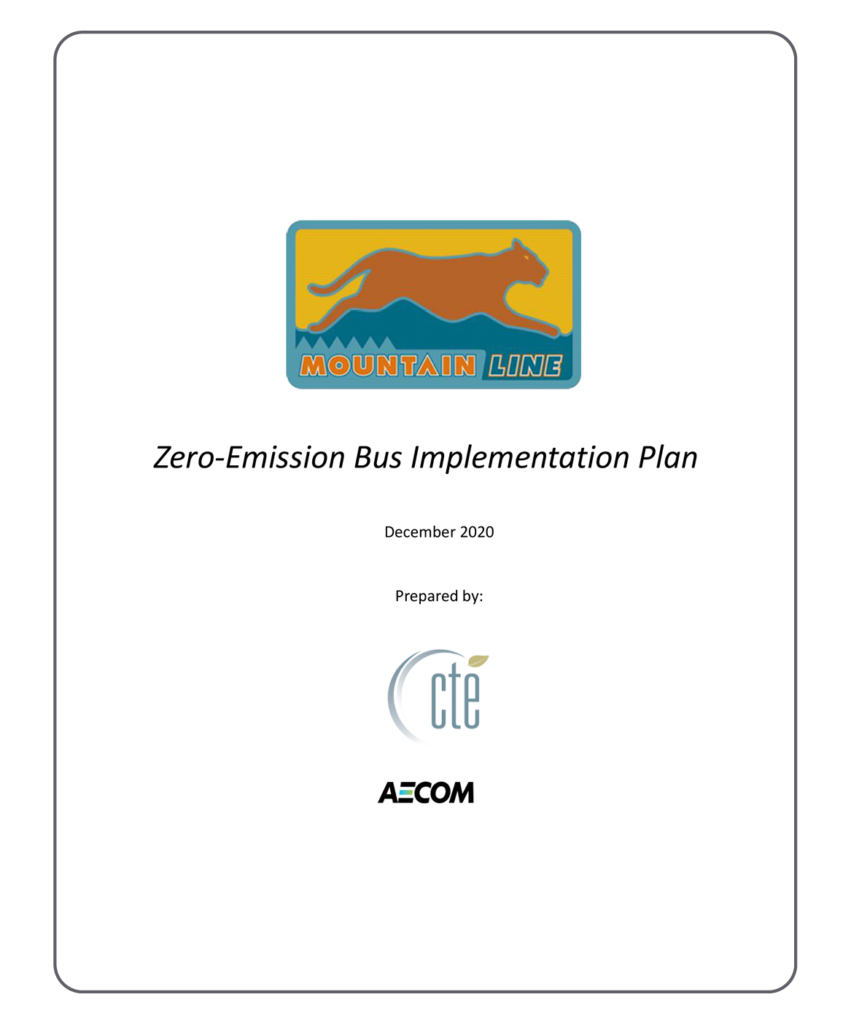
Mountain Line Zero-Emission Bus Implementation Plan
This is the Zero Emission Bus (ZEB) Implementation Plan prepared by the Northern Arizona intergovernmental Public Transportation Authority (referred to as Mountain Line) in contract with the Center for Transportation and the Environment (CTE) with the aim of identifying a zero-emission roadmap for full-scale deployment.
Center for Transportation and the Environment; AECOM
December 2020
TOPICS: Low- or No-Emission , Procurement , Safety and Health , Training

Improving the Health and Safety of Transit Workers with Corresponding Impacts on the Bottom Line
Transit Cooperative Research Board
December 2020
TOPICS: Safety and Health
Transit workers experience more health and safety problems than the general workforce, primarily as a result of a combination of physical demands, environmental factors, and stresses related to their jobs. In response, TCRP Research Report 217 focuses on the prevalence of these conditions, costs associated with these conditions, and statistical analysis of data on participation in and the results of health and wellness promotion programs.
Contributor(s): National Academies of Sciences, Engineering, and Medicine; Transportation Research Board; Transit Cooperative Research Program; Jennifer Stoloff, Frankie Clogston, Fred Bellemore, Cynthia Khan, Jeff Pongsiri, Timothy Beggs, Econometrica, Inc.; Xinge Wang, Karitsa Holdzkom, Transportation Learning Center
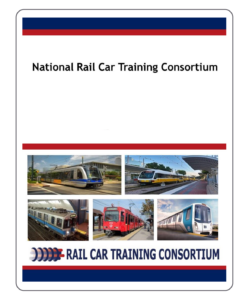
ITLC Rail Car Training Consortium
The International Transportation Learning Center (ITLC) organizes multiple national training consortia to develop standards-based national training courseware for frontline occupations in public transportation organizations.
Started in late 2015, the National Rail Car Training Consortium has moved forward with its mission to create standardized national training courseware for rail car technicians. The development team composed of over 40 rail car maintenance subject matter experts (SMEs) from 18 member agencies and unions from across the country, along with instructional systems designers from the ITLC, design curriculum and courseware for the rail and transit industry.
The attached catalog contains a summary of Consortium courseware.
International Transportation Learning Center
July 2020
TOPICS: Safety and Health , Training
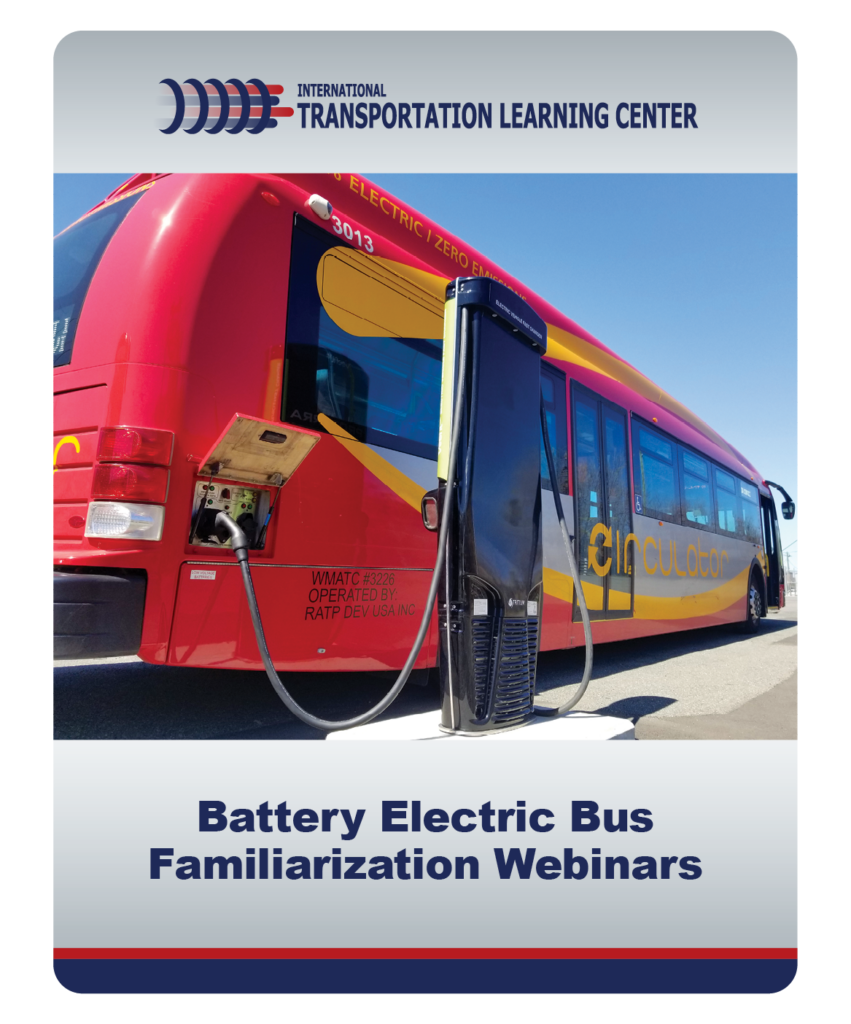
Battery Electric Bus Familiarization Webinars
The International Transportation Learning Center presents three distance-based courses to help transit bus technicians gain fundamental understanding of battery electric bus (BEB) technology. These courses are recorded from live online sessions.
International Transportation Learning Center
June 2020
TOPICS: Low- or No-Emission , Safety and Health , Training
In each session, experts from various BEB manufacturers presented on specific topics, with over 400 participants attending. Each session is introduced by John Schiavone, who moderated many questions from participants. Please click through the drop-down options below to view the recorded sessions, slides and presenters’ notes, and sample tests and test answers.
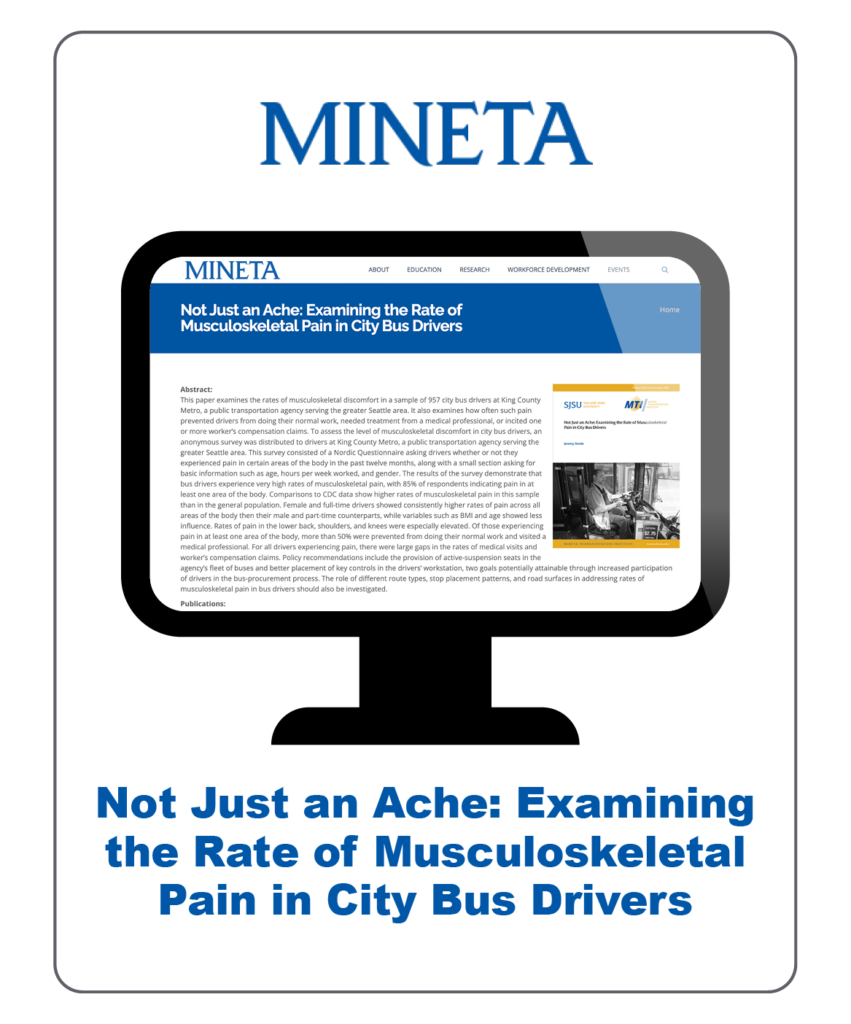
Not Just an Ache: Examining the Rate of Musculoskeletal Pain in City Bus Drivers
This paper examines the rates of musculoskeletal discomfort in a sample of 957 city bus drivers at King County Metro. The researchers conducted a survey demonstrate that city bus drivers experience very high rates of musculoskeletal pain in at least one area of the body. The paper includes policy recommendations, such as the provision of active-suspension seats in the agency’s fleet of buses and better placement of key controls in the drivers’ workstation, as well as considerations for further investigation.
Mineta Transportation Institute
November 2018
TOPICS: Policy and Planning , Safety and Health
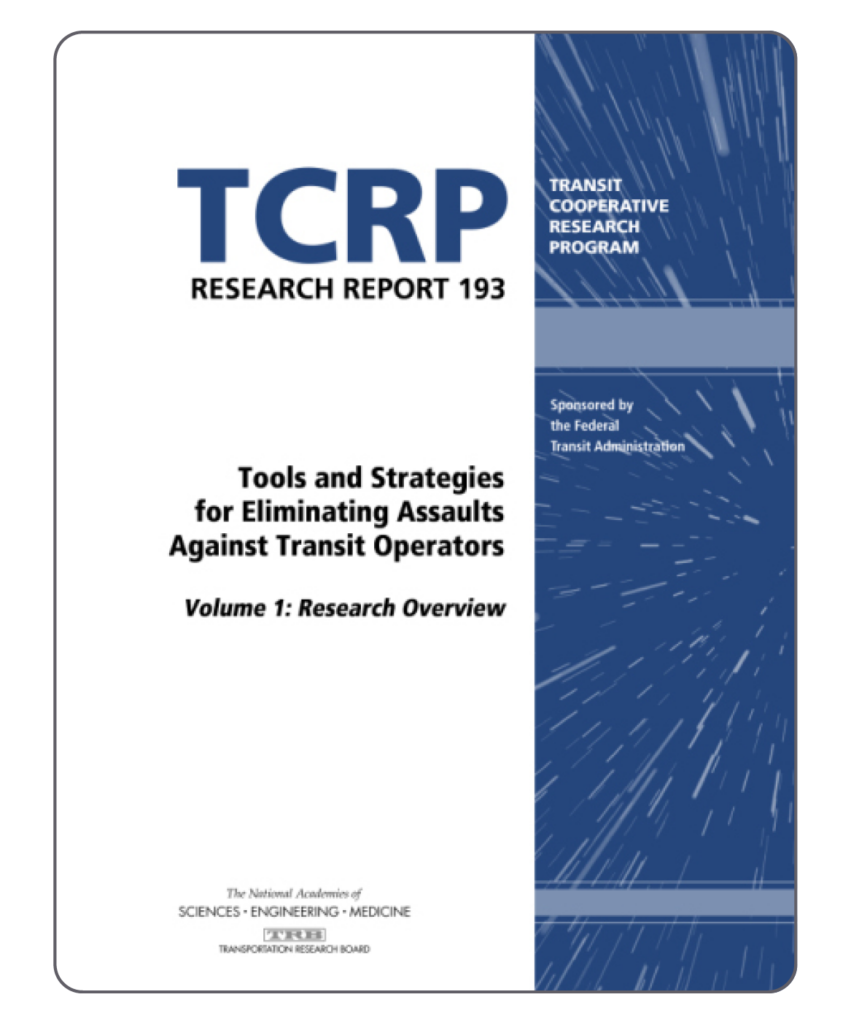
Tools and Strategies for Eliminating Assaults Against Transit Operators
This TCRP report documents policies, practices, and operating procedures related to preventing, mitigating, and responding to operator assaults. The varied format, scale, and implementation of policies and procedures set by transit agencies can shape mitigation approaches. Relevant skills and training required by transit operators to address this issue vary as well.
Transit Cooperative Research Program
May 2018
TOPICS: Policy and Planning , Safety and Health
Volume 1 documents the materials used to develop the report and Volume 2, the user guide, provides potential countermeasures and strategies to prevent or mitigate assaults against transit operators, including an operator assault risk management toolbox, vulnerability self-assessment tool, route-based risk calculator, as well as supportive checklists, guidelines, and methodologies.
Contributor(s): National Academies of Sciences, Engineering, and Medicine; Transportation Research Board; Transit Cooperative Research Program; Countermeasures Assessment and Security Experts, LLC and Transportation Resource Associates, Inc.
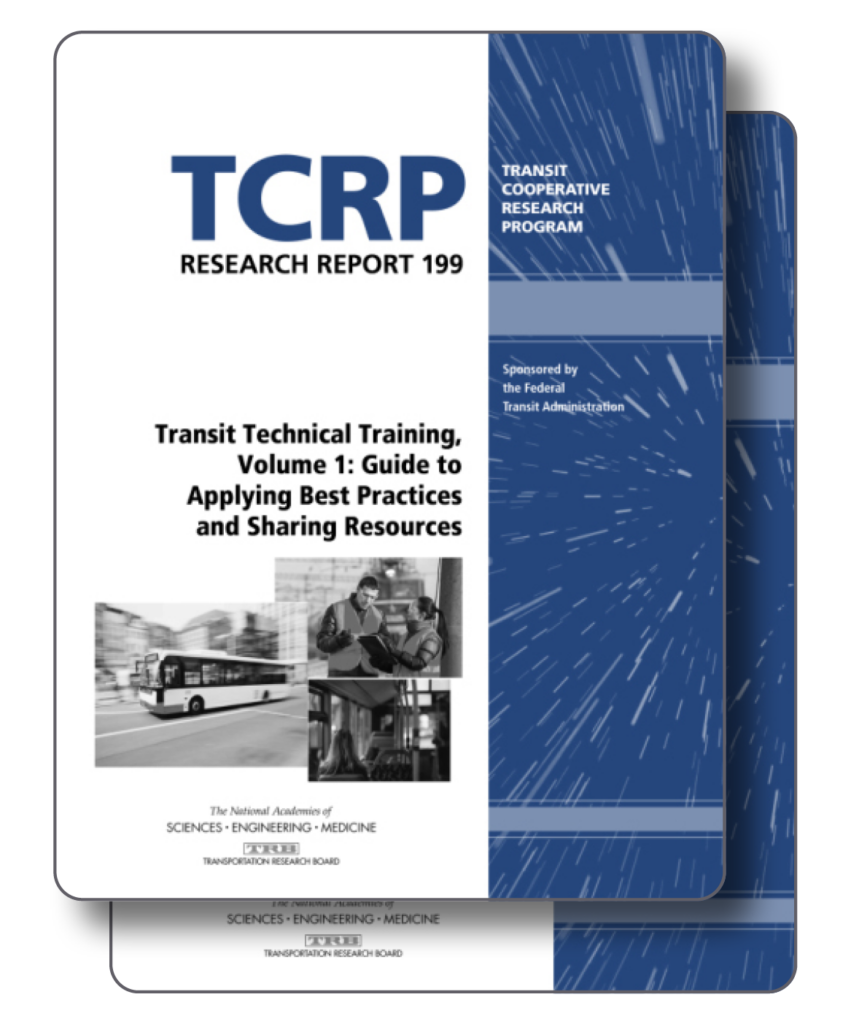
TCRP Research Report 199: Transit Technical Training (Volumes 1 & 2)
TCRP Research Report 199: Transit Technical Training is a two-volume set that presents guidance on technical training programs and the implementation of those for transportation agencies.
The report’s first volume, Guide to Applying Best Practices and Sharing Resources, documents the best models of technical training programs serving U.S. and international transportation agencies and related industries.
The second volume, Guide to Overcoming Barriers to Implementing Best and Innovative Training, provides public transportation agencies with best practices, strategies, and resources to assist with the implementation of effective and innovative training programs and techniques for frontline employees.
Transit Cooperative Research Program (TCRP)
January 2018
TOPICS: Apprenticeship , Safety and Health , Training
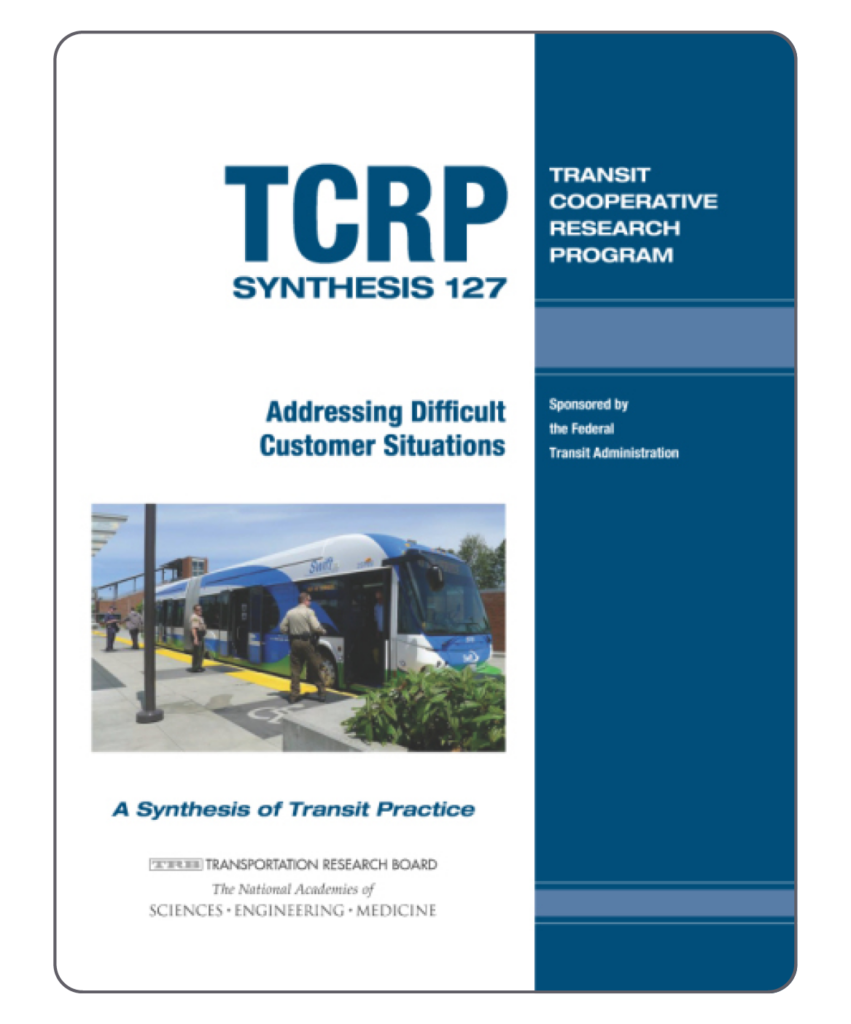
Addressing Difficult Customer Situations
This report considers issues surrounding difficult customers or passengers and the variety of circumstances that can arise when they utilize transit system facilities or vehicles. It identifies current practices used by transit agencies to prevent, prepare for, and deal with these incidents, including training programs for operators and other staff.
Transit Cooperative Research Program
March 2017
TOPICS: Policy and Planning , Safety and Health , Training
Contributor(s): National Academies of Sciences, Engineering, and Medicine; Transportation Research Board; Transit Cooperative Research Program Synthesis Program; Synthesis Program; Transit Cooperative Research Program; Joel M. Volinski
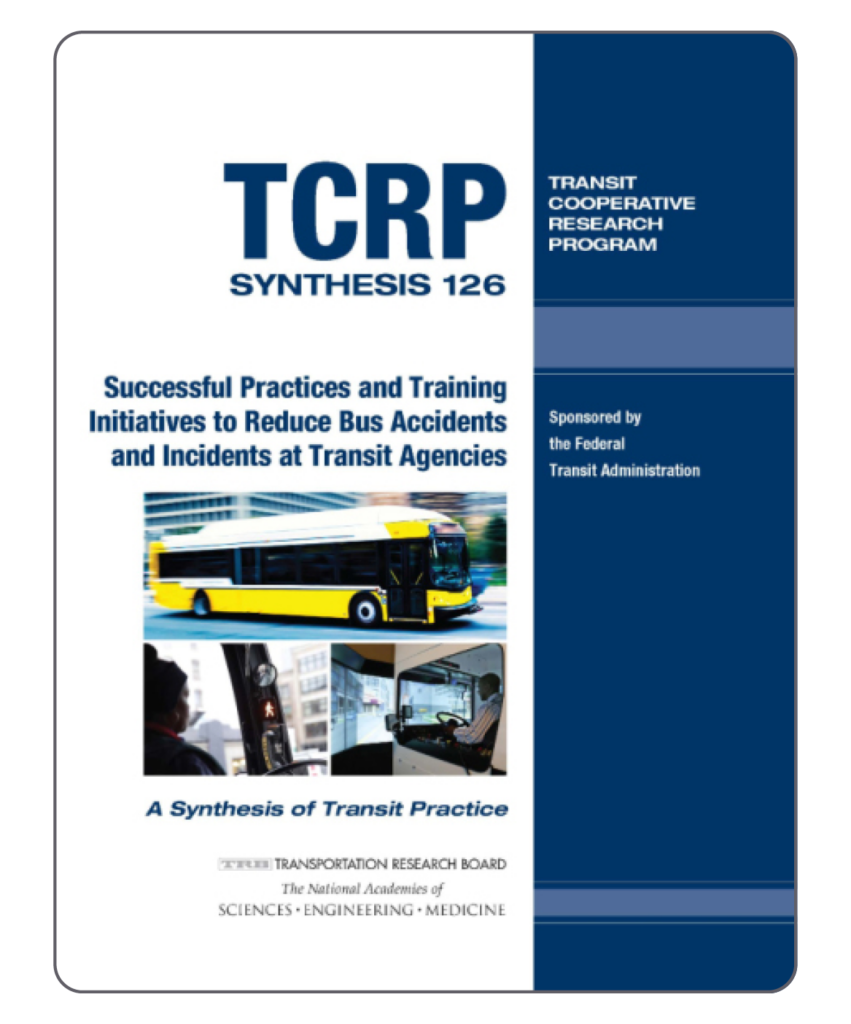
Successful Practices and Training Initiatives to Reduce Accidents and Incidents at Transit Agencies
TRB’s Transit Cooperative Research Program (TCRP) Synthesis 126: Successful Practices and Training Initiatives to Reduce Accidents and Incidents at Transit Agencies documents current practices and training initiatives, including bus operator training and retraining programs that have been effective in reducing accidents and incidents at transit agencies. The study also focuses on other system approaches that have been implemented to address safety hazards. These approaches include various technology applications, infrastructure modifications, and programs and initiatives such as driver incentive programs and close call/near miss reporting.
Transit Cooperative Research Program (TCRP) & CUTR
January 2017
TOPICS: Safety and Health , Training
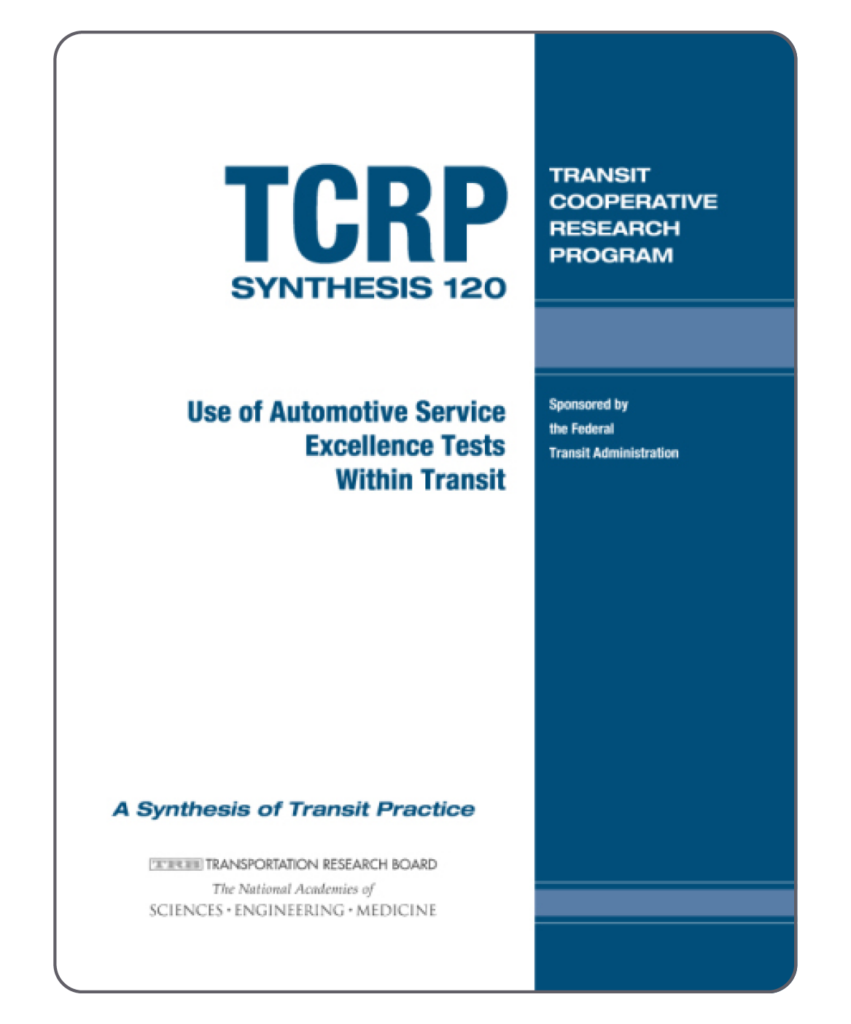
Use of Automotive Service Excellence Tests Within Transit
TRB’s Transit Cooperative Research Program (TCRP) Synthesis 120: Use of Automotive Service Excellence Tests Within Transit documents how the Automotive Service Excellence (ASE) program is accepted and used within the transit bus maintenance community. The ASE program is nationally recognized as the standard industry credential provider for automotive professionals. The report explores how a cross section of transit bus maintenance personnel view the ASE certification program and summarizes their perspectives to improve ASE certification acceptance and participation.
Transit Cooperative Research Program (TCRP)
January 2016
TOPICS: Safety and Health , Training
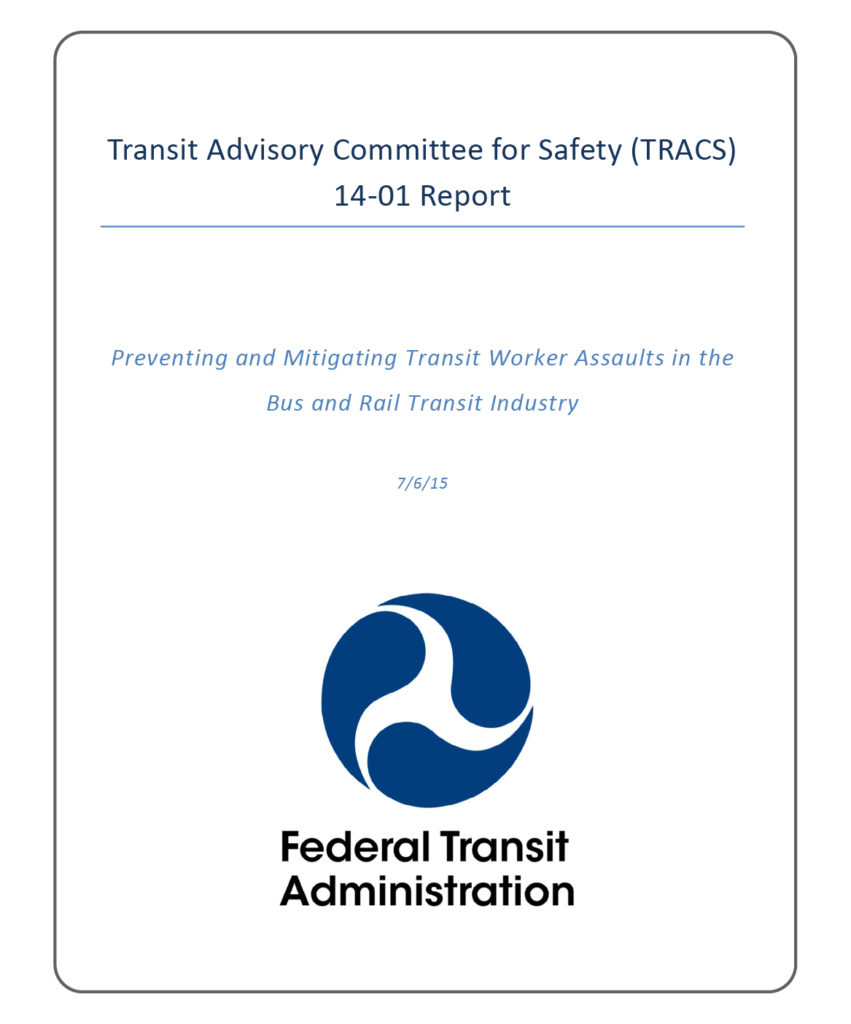
Preventing and Mitigating Transit Worker Assaults in the Bus and Rail Transit Industry
This report provides recommendations from state and local transportation agencies, labor unions, research organizations, and national transportation associations to address the elements of a safety management system (SMS) approach to preventing and mitigating transit worker assaults, including policy, risk management, safety promotion, and safety assurance.
Transit Advisory Committee for Safety
July 2015
TOPICS: Retention , Safety and Health
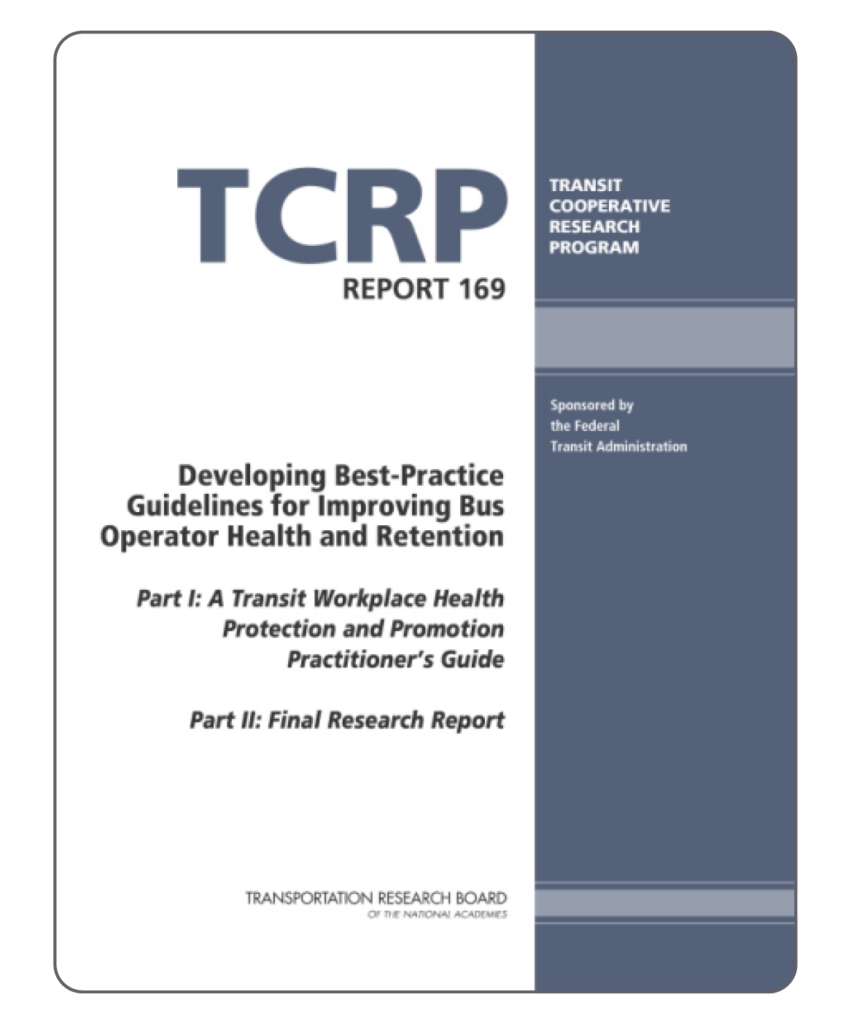
Developing Best-Practice Guidelines for Improving Bus Operator Health and Retention
This TCRP report addresses some of the health and safety issues common throughout the transit industry, and describes approaches that transit organizations in the United States and Canada have taken to address health problems faced by transit employees. The report is supplemented by a presentation, Making the Case for Transit Workplace Health Protection and Promotion, and an Excel worksheet, Transit Operator Workplace Health Protection and Promotion Planning, Evaluation, and ROI Template, that may assist transit agencies with implementing and carrying out transit-specific programs to protect the health of bus operators and other employees.
Transit Cooperative Research Program
August 2014
TOPICS: Policy and Planning , Retention , Safety and Health
Contributor(s): National Academies of Sciences, Engineering, and Medicine; Transportation Research Board; Transit Cooperative Research Program; Robin Mary Gillespie; Xinge Wang; Tia Brown
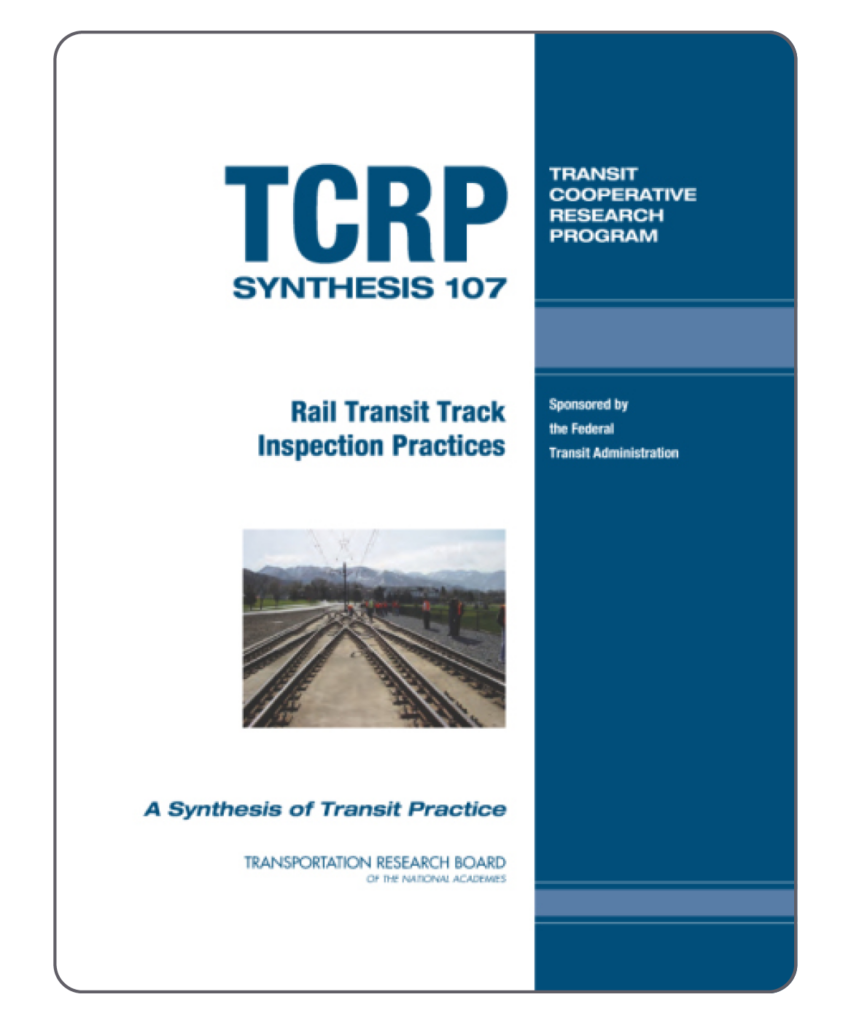
Rail Transit Track Inspection Practices
TRBs Transit Cooperative Research Program (TCRP) Synthesis 107: Rail Transit Track Inspection Practices offers information across a range of older and newer U.S. rail transit agencies on track inspection practices and policies.
Issues addressed in the report include agency staffing, agency organization and characteristics, track inspection program criteria, training and certification, procurement, and track safety practices.
Transit Cooperative Research Program (TCRP)
January 2013
TOPICS: Policy and Planning , Procurement , Safety and Health , Training
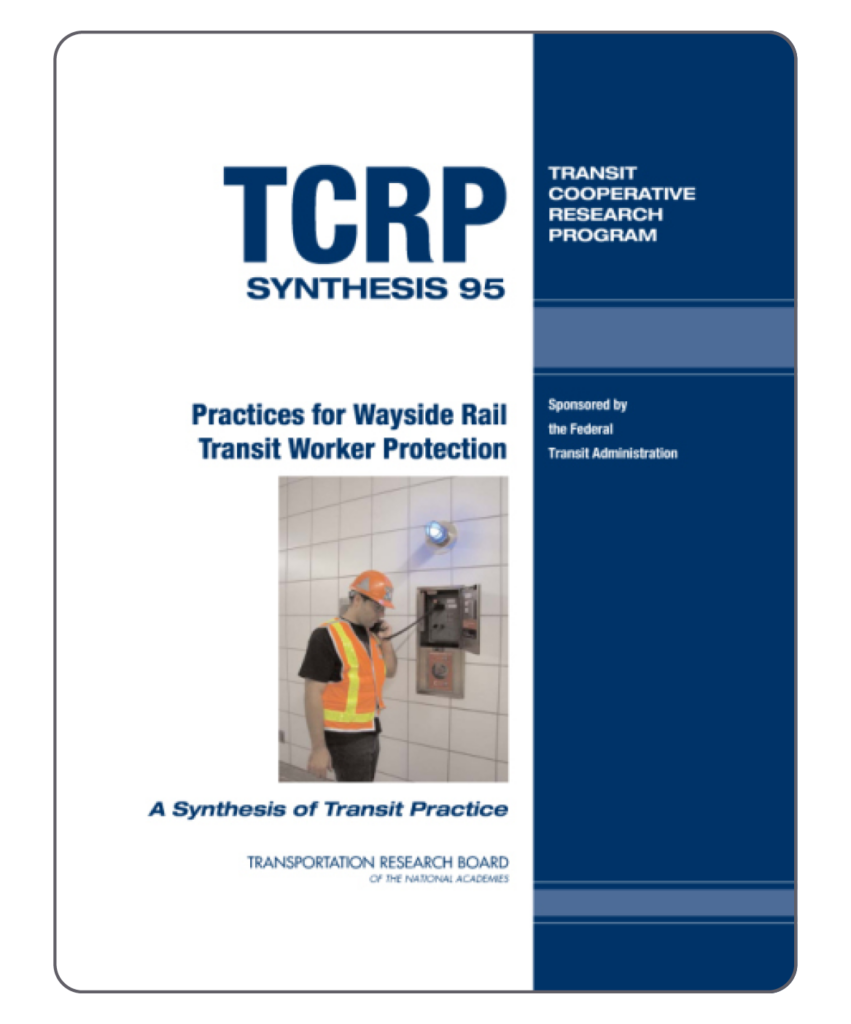
Practices for Wayside Rail Transit Worker Protection
TRB’s Transit Cooperative Research Program (TCRP) Synthesis 95: Practices for Wayside Rail Transit Worker Protection is designed to highlight knowledge, practice, lessons learned, and gaps in information related to wayside rail transit worker protection programs.
Transit Cooperative Research Program (TCRP)
January 2012
TOPICS: Safety and Health , Training
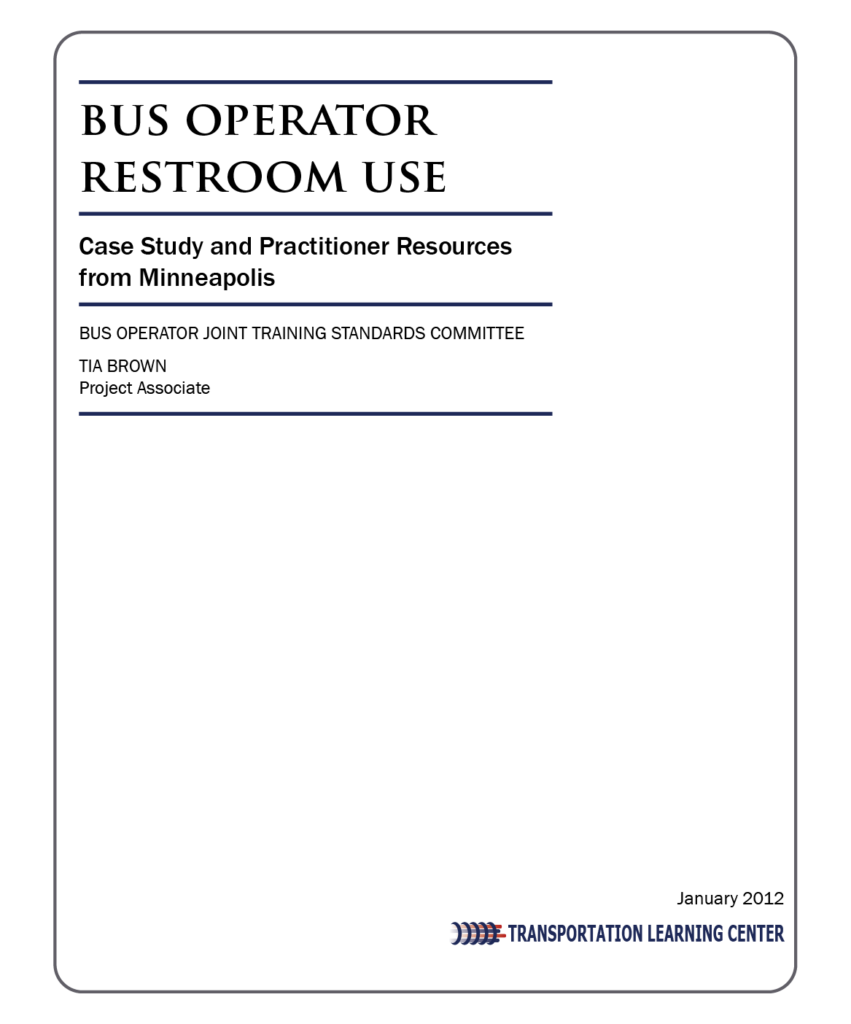
Bus Operator Restroom Use Case Study
In collaboration with the Bus Operator National Joint Training Standards Committee, the International Transportation Learning Center developed this Bus Operator Restroom Use report, a case study and compendium of practitioner resources on restroom use, including a history of restroom use policy at Minneapolis Metro Transit. The resources in this report also include a model community restroom licensing agreement, route-specific restroom locations chart, and example collective bargaining language.
International Transportation Learning Center
January 2012
TOPICS: Retention , Safety and Health , Training
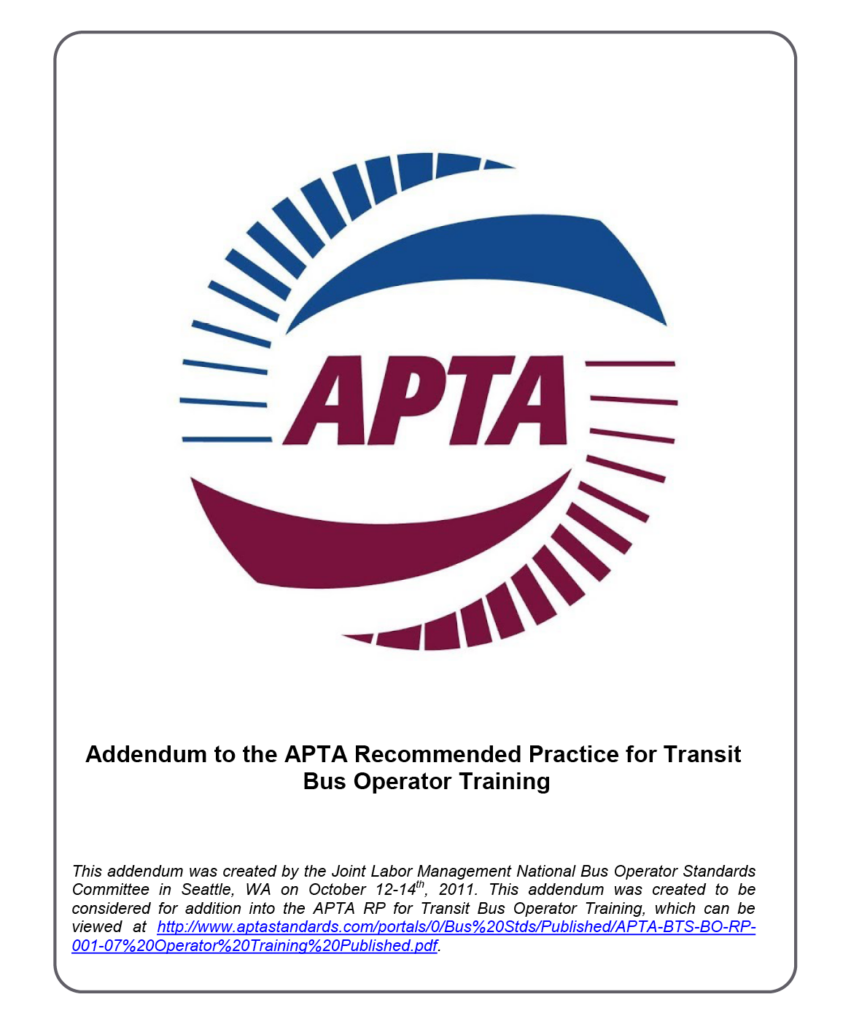
Addendum to the APTA Recommended Practice for Transit Bus Operator Training
This addendum was created by the Joint Labor Management National Bus Operator Standards Committee in Seattle, WA on October 12-14th 2011. This addendum was created to be considered for addition into the APTA RP for Transit Bus Operator Training.
Joint Labor Management National Bus Operator Standards Committee
October 2011
TOPICS: Safety and Health , Training
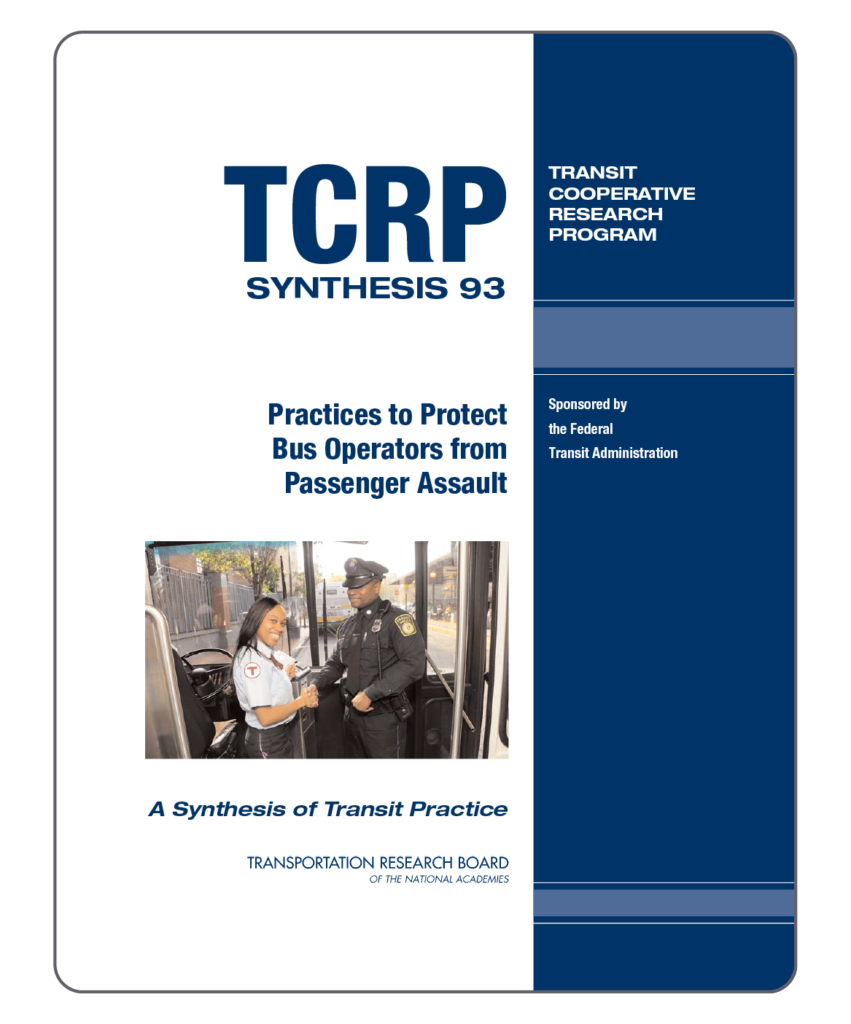
Practices to Protect Bus Operators from Passenger Assault: A Synthesis of Transit Practice
The TCRP Synthesis 93 highlights practices and policies implemented by transit agencies to deter and mitigate assaults on bus operators.
Transit Cooperative Research Program
January 2011
TOPICS: Retention , Safety and Health
Contributor(s): National Academies of Sciences, Engineering, and Medicine; Transportation Research Board; Transit Cooperative Research Program Synthesis Program; Transit Cooperative Research Program
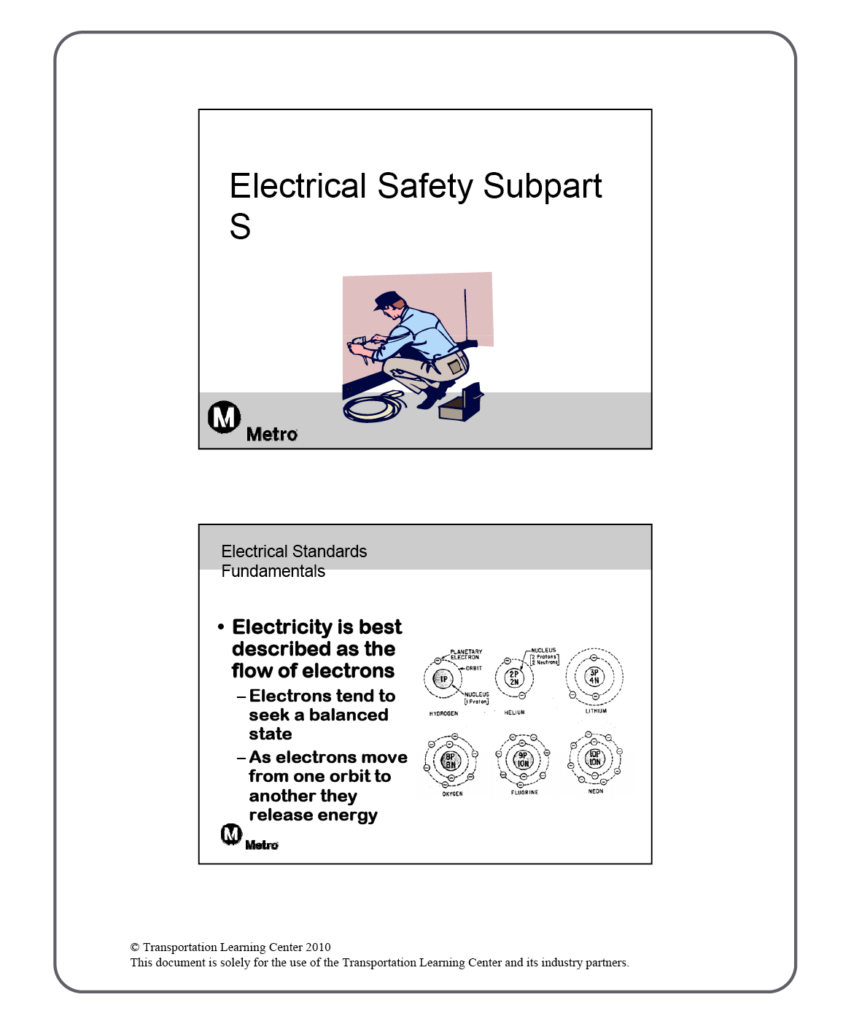
Electrical Standards Fundamentals
A document of electrical safety standards and fundamentals. The fundamentals include Electrons, Static Electricity, and Magnetic fields. It also covers how power is transmitted to buildings through the power grid and how grounding is built into delivery systems. This resource is intended only to provide an overview of fundamental principles – please see Terms & Conditions.
International Transportation Learning Center
January 2010
TOPICS: Safety and Health , Trainer and Mentor Development , Training
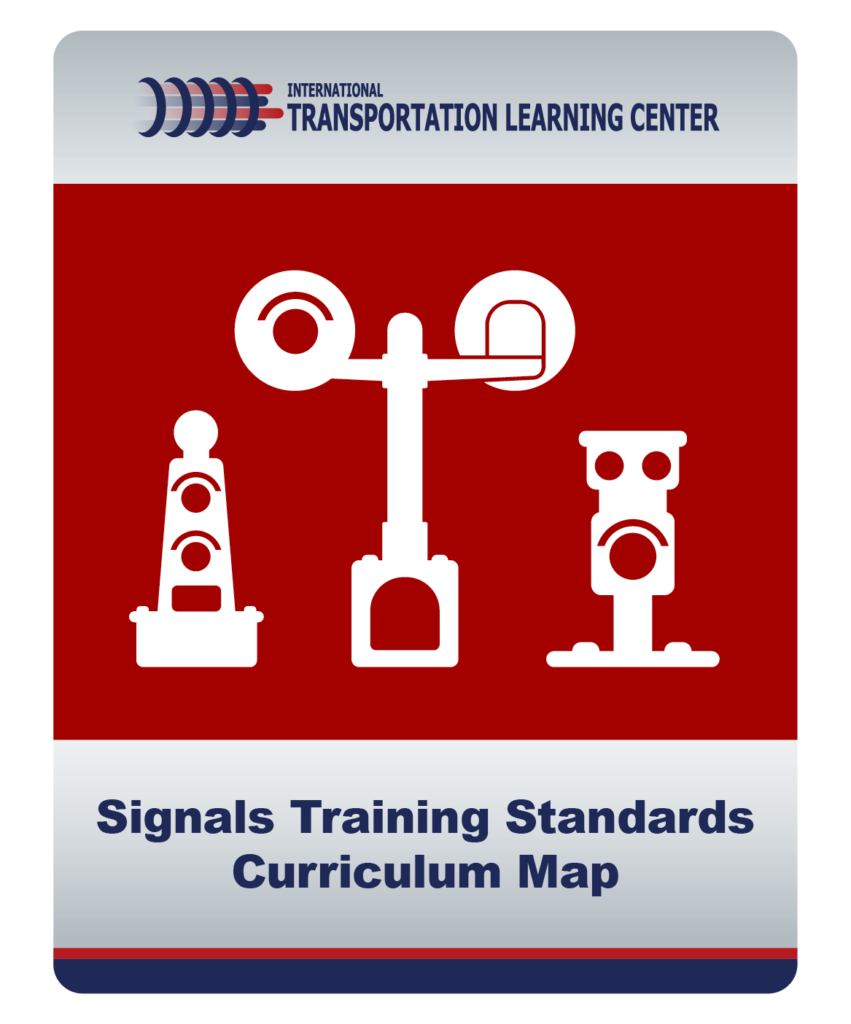
Signals Training Standards Curriculum Map
A curriculum map of the Signals Training Standards released on January 22, 2008.
International Transportation Learning Center
January 2008
TOPICS: Safety and Health , Trainer and Mentor Development , Training
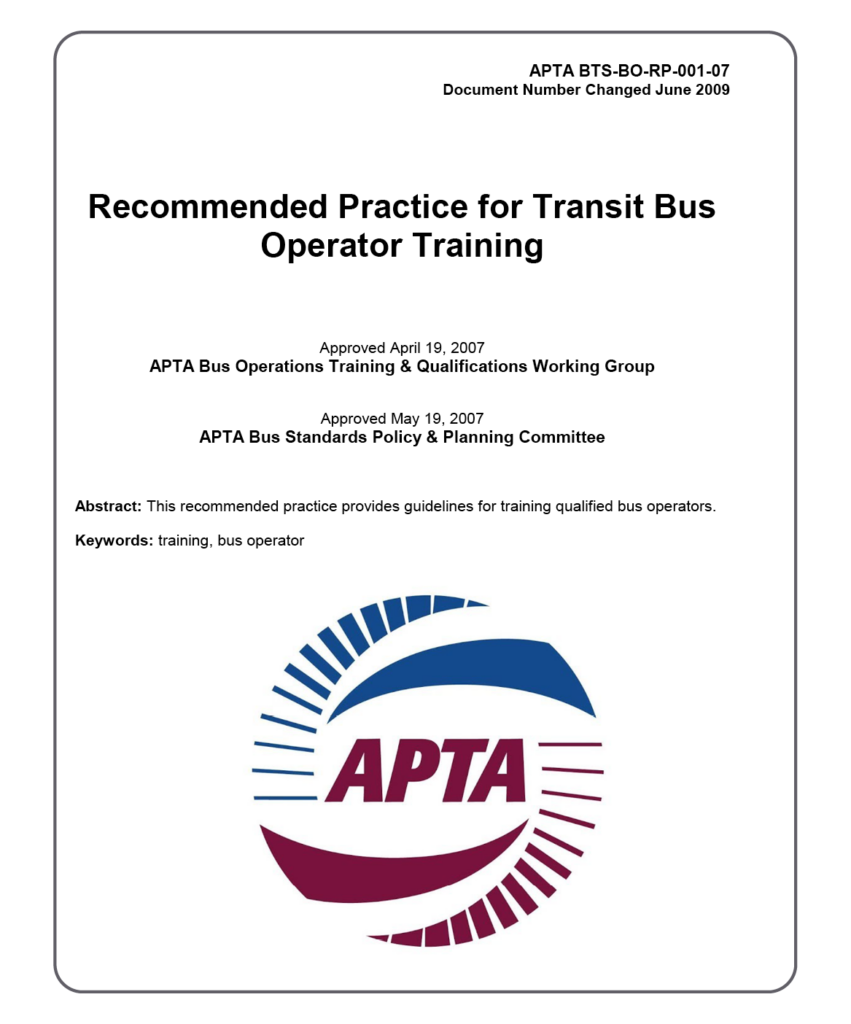
APTA Recommended Practice for Transit Bus Operator Training
This recommended practice provides guidance for standardized transit operator training to assist in the development of professional bus operators resulting in quality service. Individual operating agencies can modify these guidelines to accommodate their specific training goals and operating modes.
American Public Transportation Association (APTA)
May 2007
TOPICS: Safety and Health , Trainer and Mentor Development , Training
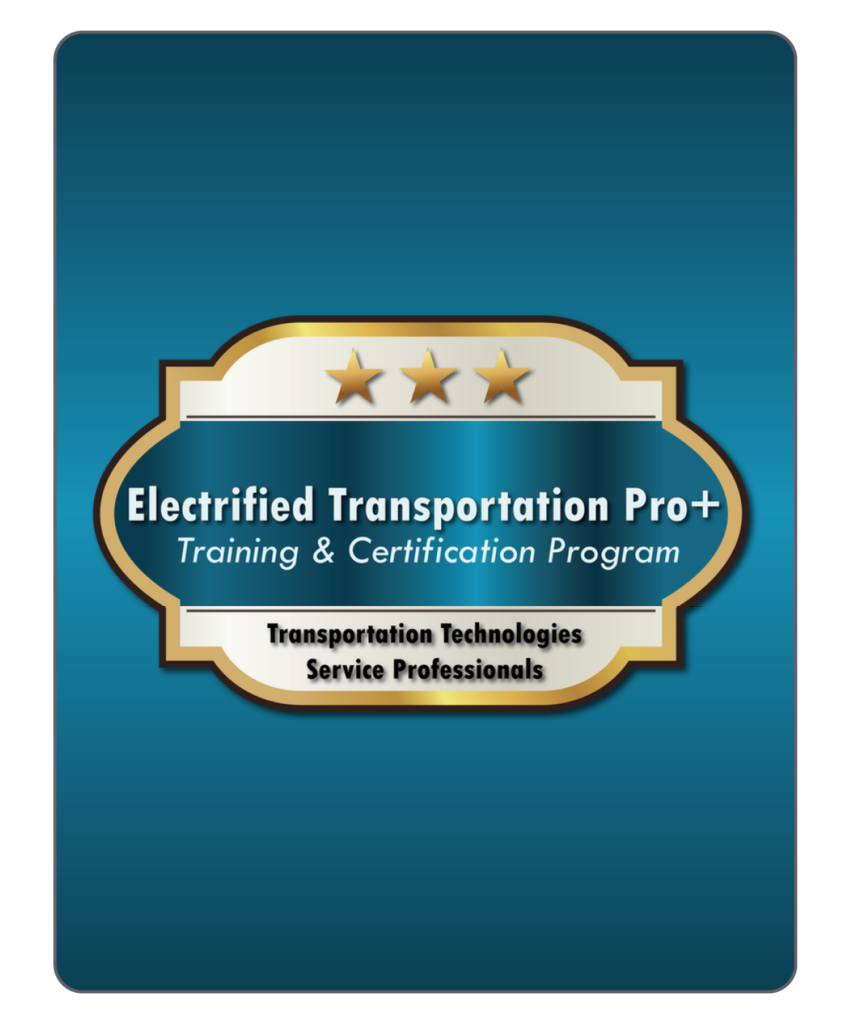
Electrified Transportation Pro+ Training and Certification Program
The objective of the Electrified Transportation Pro+ program is to ensure that all individuals across all transportation industries are trained in Electrified Vehicle Systems and Technologies consistently to one standard. The training is completed in preparation to perform the practical and written exams for earning the corresponding Level 1, Level 2, and Level 3 Certifications.
Electrified Transportation Pro+
TOPICS: Low- or No-Emission , Safety and Health , Training
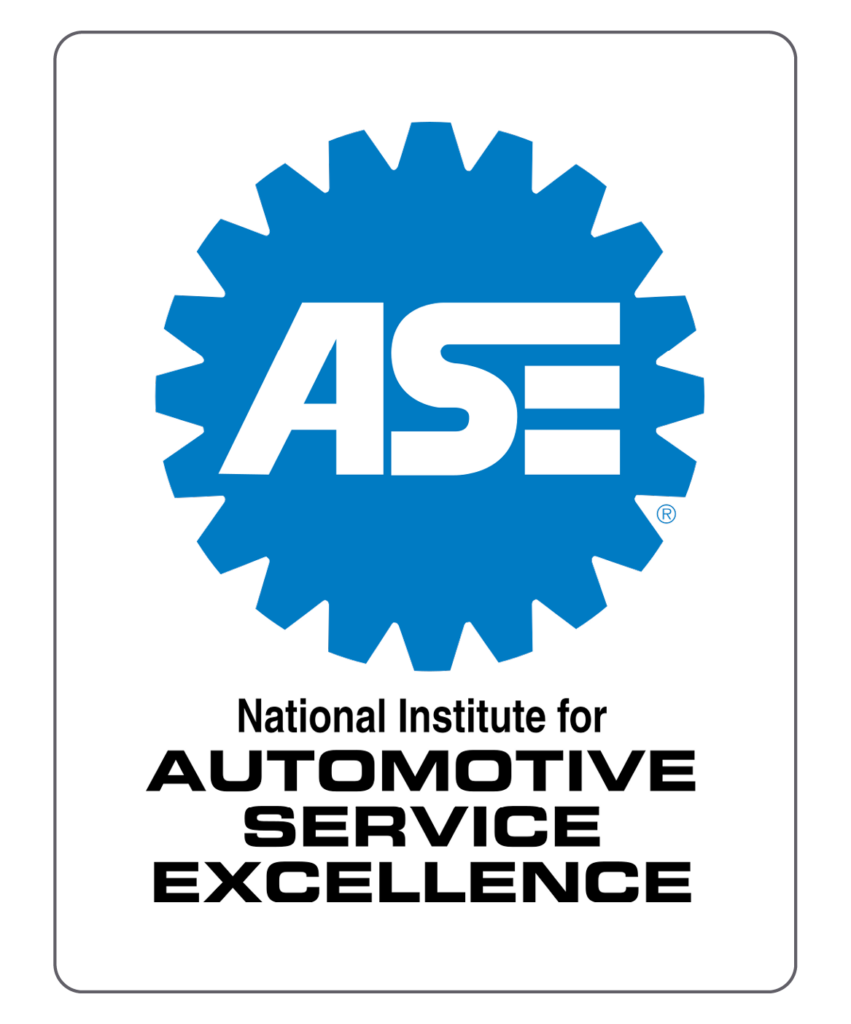
Transit Bus Certification Tests
This Test Series identifies and recognizes Transit Bus Technicians who demonstrate knowledge of the skills necessary to diagnose, service, and repair various systems on transit buses. Technicians can use the Official ASE Study Guide for Transit Bus Tests to prepare.
Automotive Service Excellence
TOPICS: Low- or No-Emission , Safety and Health , Training
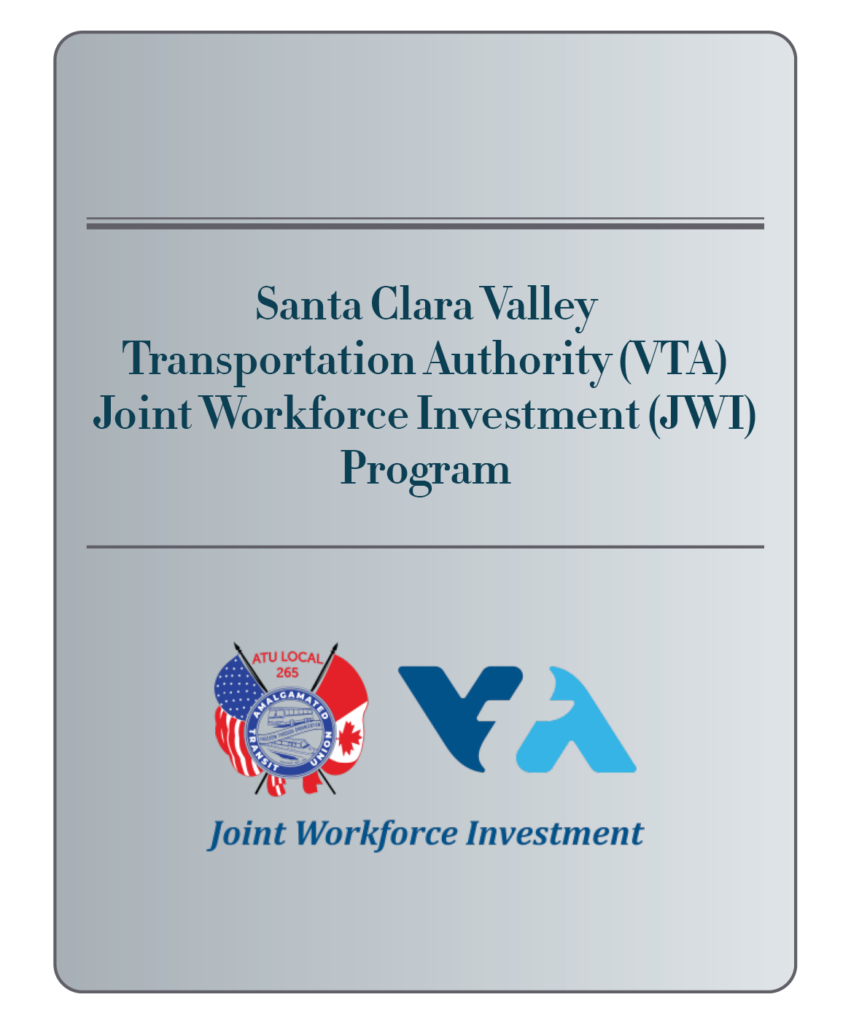
Santa Clara Valley Transportation Authority (VTA) Joint Workforce Investment Program
This case study examines the Joint Workforce Investment (JWI), established in 2006, which is a joint labor management partnership between the Santa Clara Valley Transportation Authority (VTA) and the Amalgamated Transit Union Local 265 (ATU). It includes discussion of three primary programs brought together under the JWI initiative: the Maintenance Career Ladders Training Project (MCLTP), New Operator/Mentor Pilot Project, and Health and Wellness Project.







